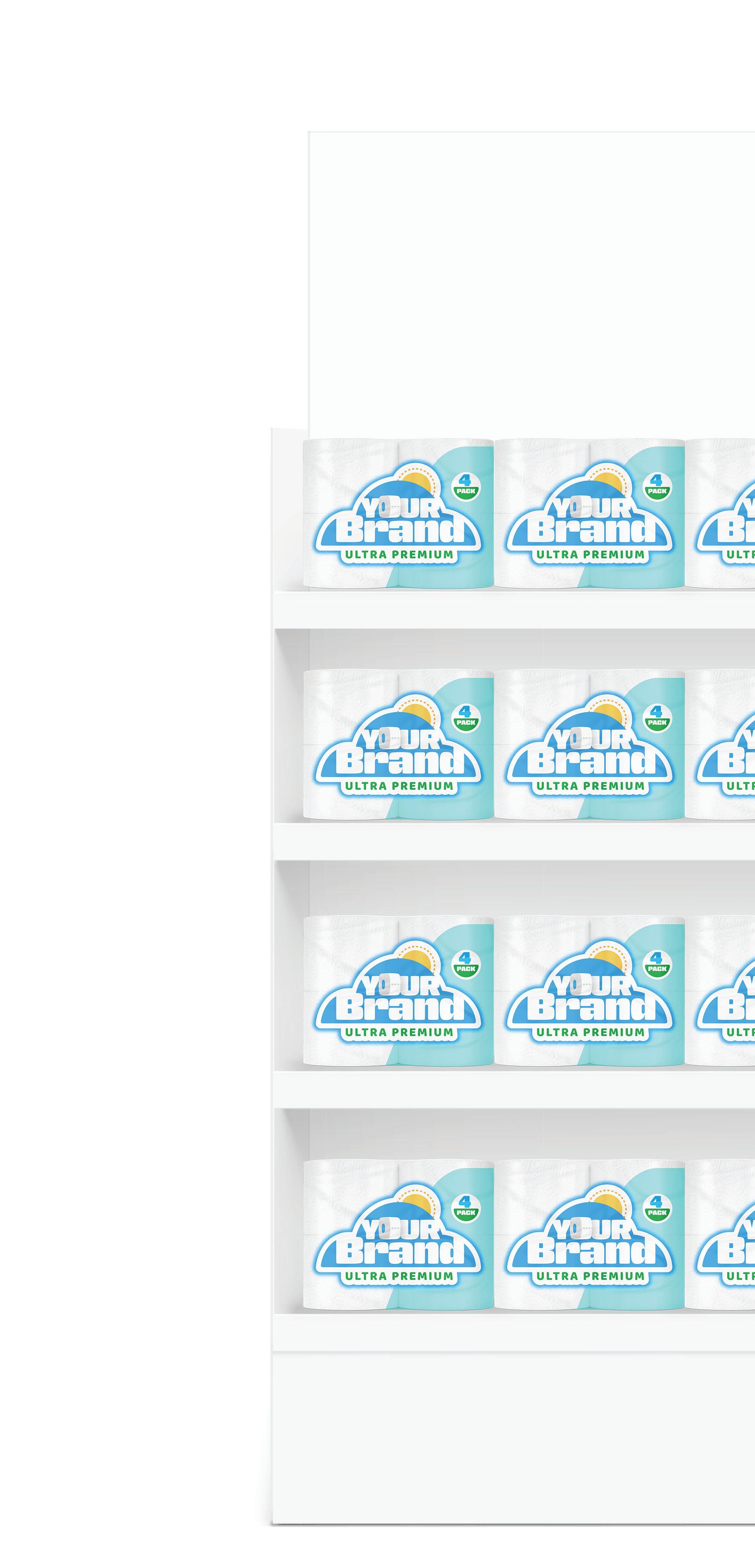





Stock smarter with America’s most trusted partner for premium household paper goods.
Managing supply chains in today’s unpredictable landscape isn’t easy— but with the right partner, it can be. Global Tissue Group has spent decades perfecting our processes, scaling our production, and delivering high-quality bath tissue, paper towels, facial tissue, and napkins that retailers trust.

Scan to see why top retailers trust GTG for household paper essentials:
Our commitment to reliability, flexibility, and seamless fulfillment means you can focus on growing your business while we ensure your shelves stay stocked with the premium products your customers expect.
This has been a very challenging issue to produce. In 2012, we envisioned this magazine as a source of global learning, inspiration and sharing. We still do. The beauty of this approach has had a benefit I never imagined and will always be grateful for. It’s the people I’ve met and how much I’ve learned from them not only from a business perspective, but from a personal one. Some of my best friends and many of my favorite people I’ve met have been through this magazine and the industry it serves.
So it literally pains me to see the amount of chaos in the world today. I end my day hoping it will cease and I wake up realizing it hasn’t. The world order I’ve known my entire life, the one my father and his 5 brothers fought for in WW2 is being upended by a world leader who is at best, myopic.
So let me emphatically say this. No one person represents the thoughts, hopes and dreams of the American people. Please believe me when I tell you there’s still a lot of good in the United States and a millions of really good people who just go about the business of caring for others (nurses, fire-fighters, teachers, etc.) and making the world a better place. When you think about the US, think of these people first…it will help us all get through the madness.
Speaking of the US, some recent news from PLMA is very encouraging:
“As
Over the first two months of 2025 store brands continued to dominate national brands by outperforming their counterparts in both dollar and unit sales across all U.S. outlets, per Circana Unify+.
Store brand dollar sales gained 5.6% and unit sales rose 1.7%, compared to national brands, which were up only 1% in dollars and down 0.8% in units, as of February 23, 2025, vs the same two-month period a year ago. For 2025, store brand market shares have moved up to 21.7% for dollars and to 23.9% for units, both all-time highs that reflect private label’s superior, multiyear performance vs brands at checkout.”
None of these results would be possible without the innovation, quality and service provided by the suppliers serving our industry, especially those whose capabilities are showcased in this Supplier Guide Issue. We thank them profusely.
Phillip Russo Founder / Editor phillip@globalretailmag.com

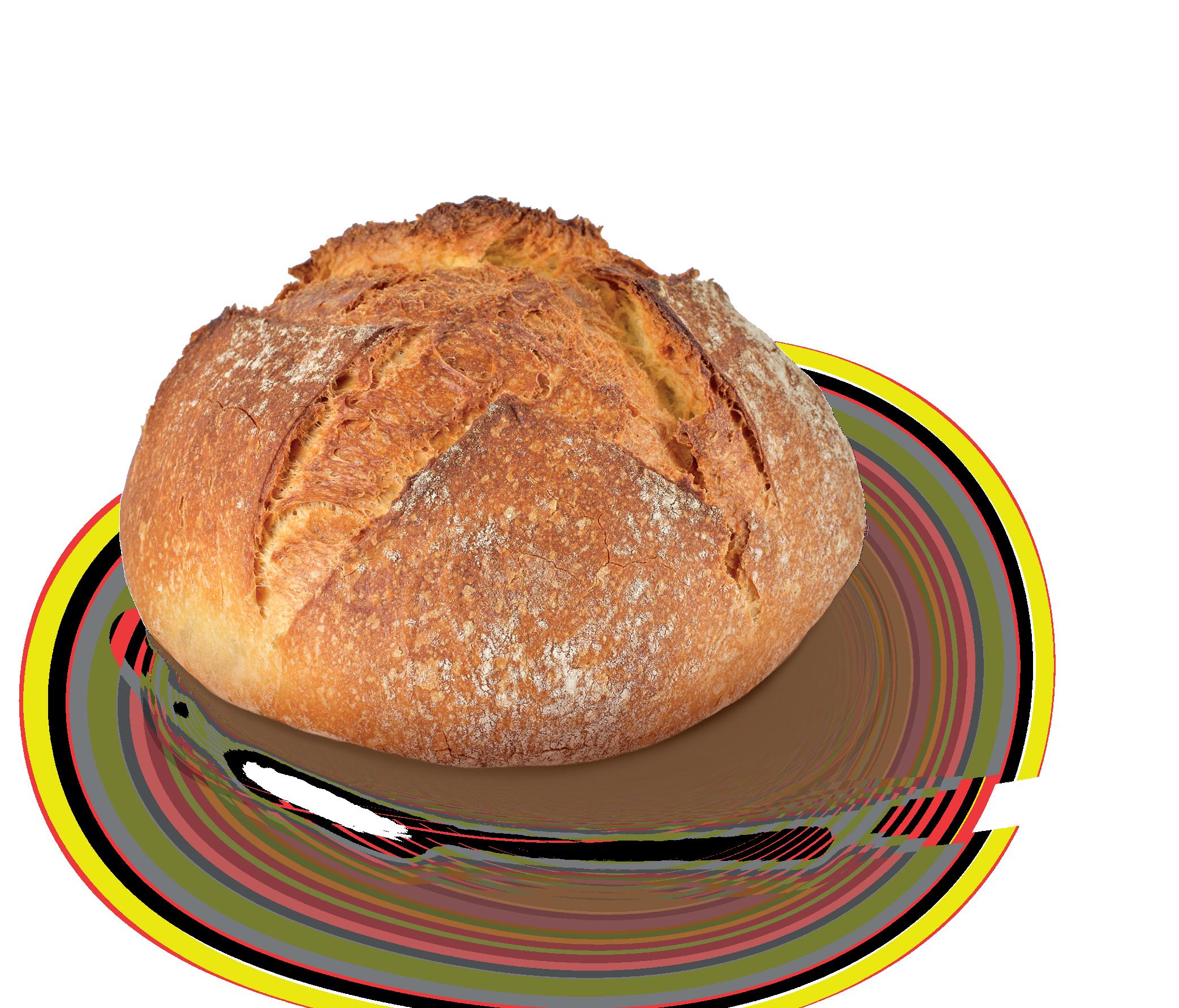
With their crispy crust, golden-yellow texture, and exceptional flavor, our breads will elevate your bakery’s performance to new heights. Bring the taste of Italy to your customers with our fine breads, made with durum wheat semolina, mother yeast, and natural fermentation.
Contact us today to learn more: gourmetbreads@oropan.it



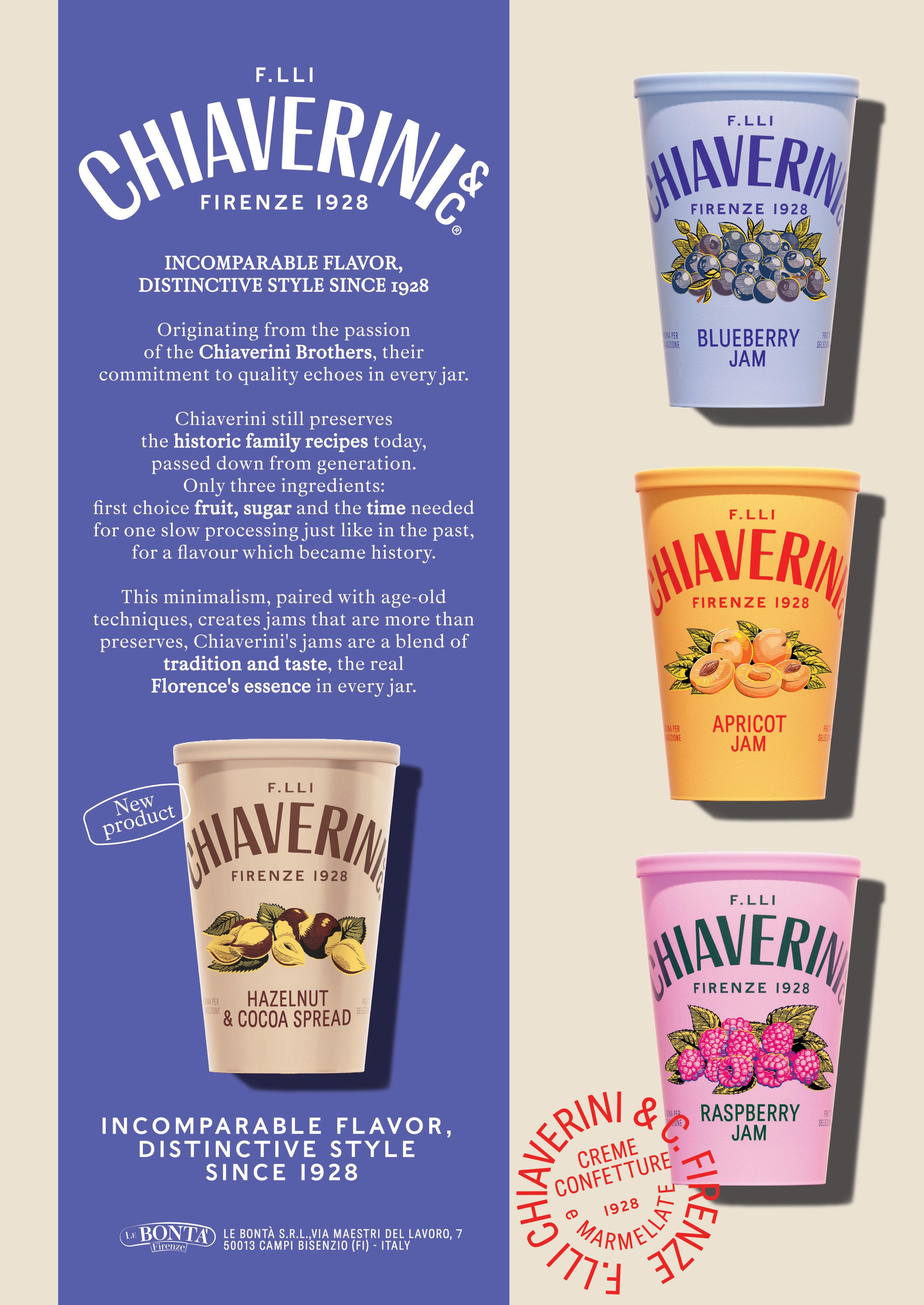


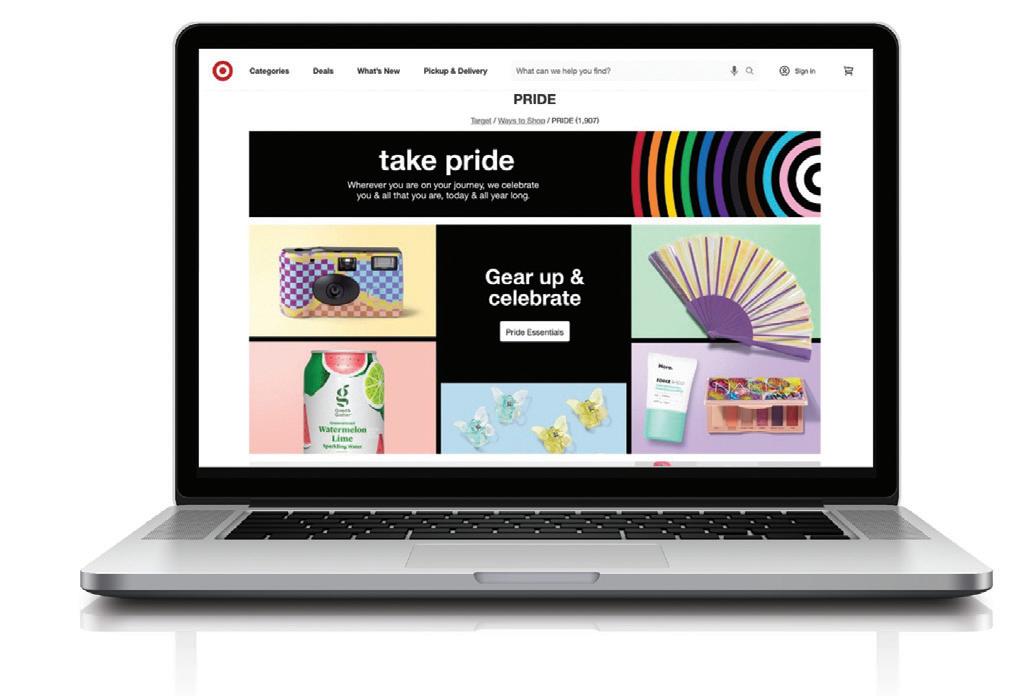

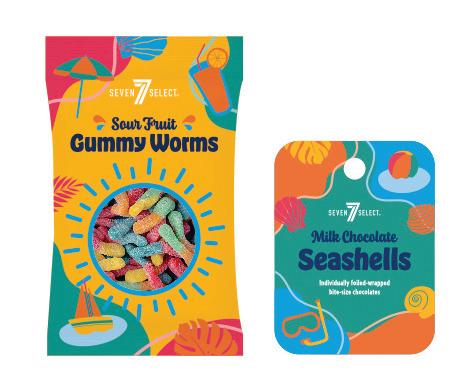
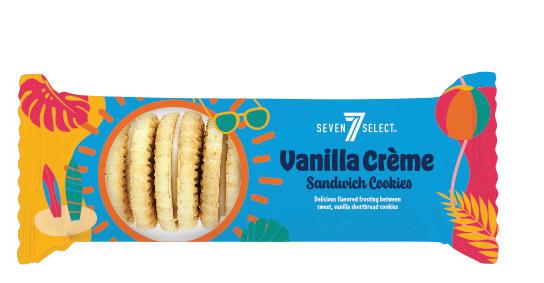




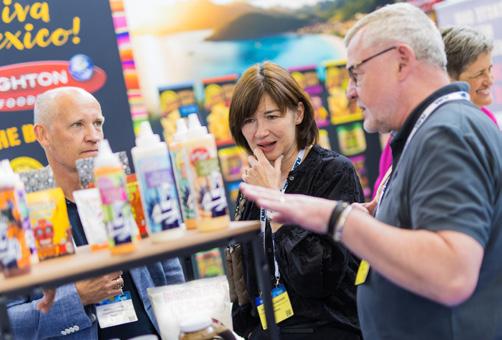


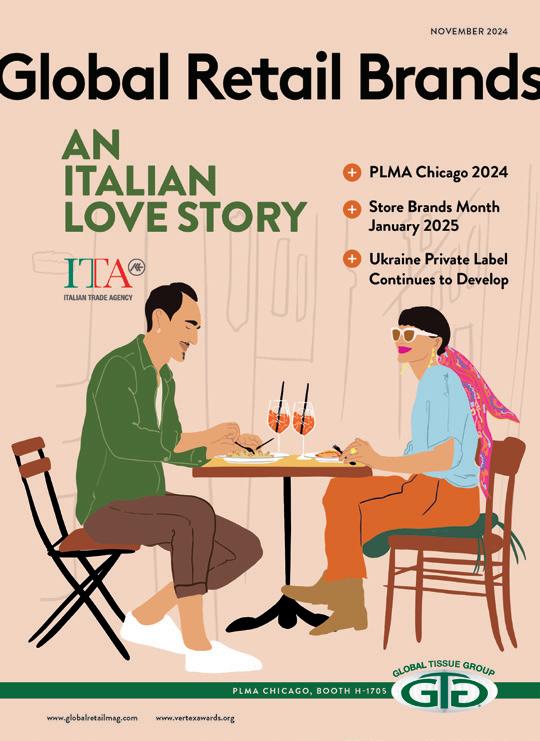


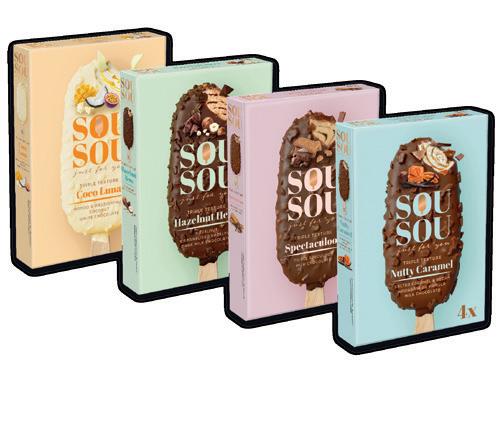
2025 I VOLUME 13 I NUMBER 1 OF 4
Phillip Russo EDITOR / PUBLISHER phillip@globalretailmag.com
Jacco van Laar BRAND AMBASSADOR jacco@globalretailmag.com
Melissa Subatch CREATIVE DIRECTOR info@melissasubatchdesign.com
Andrew Quinn DIGITAL DIRECTOR andrew.quinniii@gmail.com
Luisa Colombo EUROPEAN DIRECTOR luisa@globalretailmag.com
Ana Maria Jimenez Aguilar BUSINESS DEVELOPMENT ana@globalretailmag.com
Sabine Geissler GREENTASTE.IT Italian Business Development s.geissler@greentaste.it
CONTRIBUTORS
Perry Seelert Emerge perry@emergefromthepack.com
Christopher Durham Velocity Institure cdurham@retailbrandsinstitute.org
Maria Dubuc
Marketing By Design mdubuc@mbdesign.com
Hans Kraak Kraak Media kraakmedia@gmail.com
Elena Sullivan sullivan.elena@gmail.com
Tom Prendergast PLMA tprendergast@plma.com
Koen A. M. De Jong IPLC kdejong@iplc-europe.com
Published, Trademarked and all rights reserved by: Kent Media
Phillip Russo, Principal 225 1st Ave N. / Unit 3501 St. Petersburg, FL 33701 Tel. +1 917 743 6711 All rights reserved under the Library of Congress. No part of this publication may be reproduced or transmitted in any form or by any means,
Global Retail Brands is published 4 times a year.
Editorial Submissions phillip@globalretailmag.com
Advertising Inquiries – EUROPE luisa@globalretailmag.com
Advertising Inquiries – AFRICA, AMERICAS, ASIA, AUSTRALIA, MIDDLE EAST phillip@globalretailmag.com • ana@globalretailmag.com
Subscription Information phillip@globalretailmag.com www.globalretailmag.com
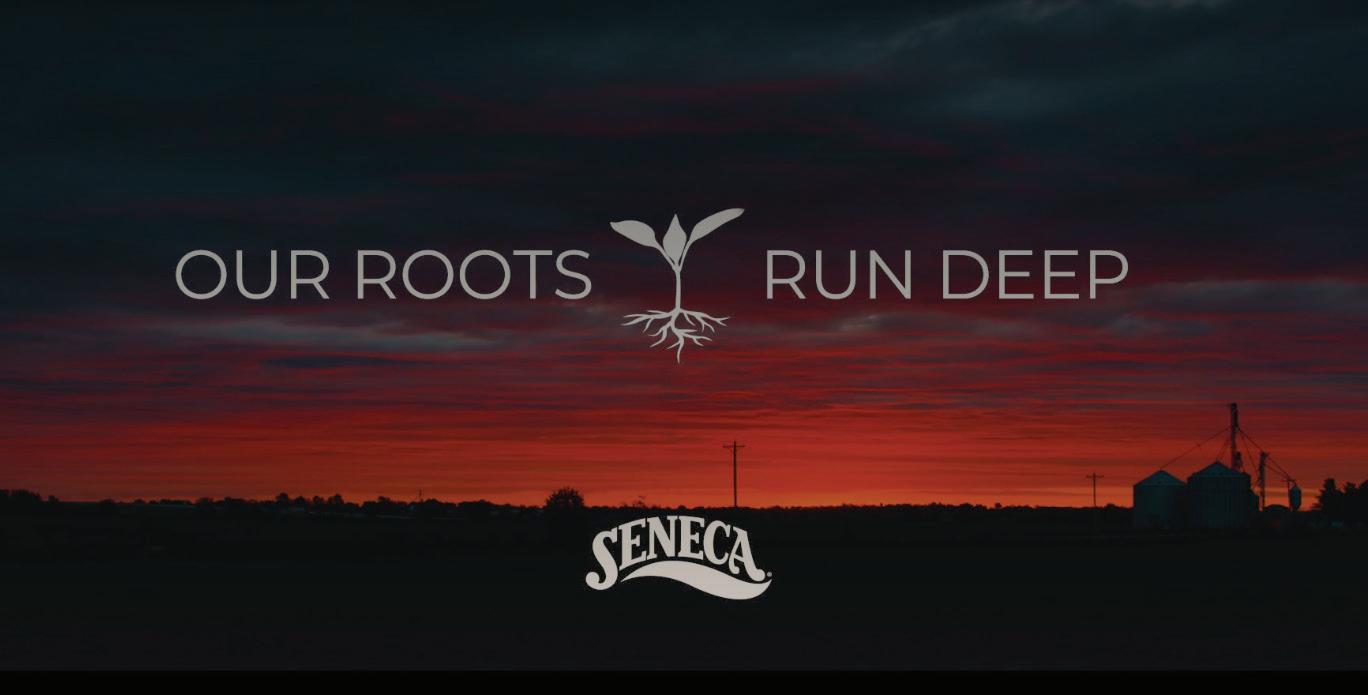
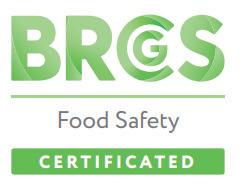



LUISA COLOMBO
Luisa is an International Sales specialist with over 30 years of experience in the development organization and sales of products and services in an international environment. She has acquired extensive skills in promotion and advertising for the private label sector. Expert in the development of innovative sectors and products. For Global Retail Brands she shares the working group with Ms. Ana Maria Jimenez.

KOEN DE JONG
Koen has extensive management experience in the private label manufacturing industry in Germany, France, the United Kingdom and the Netherlands. He has been involved in numerous M&A transactions in the Benelux. His private label strategy and business planning involvement includes company analysis and benchmarking, board consulting and the participation in supervisory boards. He speaks fluent English, German, French and Dutch (mother tongue).

MARIA DUBUC
President of MBD, is a creative and workflow expert in the retail landscape, Maria’s 30-year career translates branding experiences into eye-catching design that is unique and distinct for each client. he has created new private brands and redesigned/repositioned existing brands with leading retailers, while also implementing workflow management systems specifically tailored to the clients’ needs. Current clients include The Home Depot, Smart & Final, PetSmart, 7-Eleven, PriceSmart, BJ’s Wholesale Club, Sprouts Farmers Market, WinCo Foods, Natural Grocers and more.

CHRISTOPHER DURHAM
President of the Velocity Institute. Prior to this he founded the groundbreaking site My Private Brand. He is the co-founder of The Vertex Awards. He began his retail career building brands at Food Lion and Lowe’s Home Improvement. Durham has worked with retailers around the world, including Albertsons, Family Dollar, Petco, Staples, Office Depot, Best Buy, Metro Canada. Durham has published seven definitive books on private brands, including Fifty2: The My Private Brand Project and Vanguard: Vintage Originals.

EUGENE GERDEN
is a freelance writer who writes on a wide range of international topics, from commerce to chemistry and from wine to aviation. He has contributed to many publications, including Decanter, International Aviation News, Chemistry World and The Journal of Commerce. For Decanter, he has covered several stories on wine markets and production in Russia, Georgia and Bulgaria. gerden.eug@gmail.com

HANS KRAAK
Hans Kraak is educated in biology and journalism and wrote three books about nutrition and health. He worked for the Dutch ministry of Agriculture, Nature and Food quality and the Netherlands Nutrition Centre. As editor in chief he publishes in the Dutch Magazine for Nutrition and Dietetics, as a food and wine writer he published in Meininger’s Wine Business International and reports for PLMA Live EU and PLMA USA.

KATE NICHTER
Kate has over 10 years of experience in the design industry, with the last 6 years focused on the CPG space as an Account Manager at MBD. Her expertise lies in fostering strong relationships with clients and retailers, ensuring their goals are not only met but exceeded. Passionate about design and product innovation, Kate is dedicated to delivering impactful packaging solutions that drive success and stand out in the marketplace.

PERRY SEELERT
A retail branding and marketing expert, with a passion for challenging conventional strategy and truths. Perry is the Strategic Partner and Co-founder of Emerge, a strategic marketing consultancy dedicated to helping Retailers, Manufacturers and Services grow exponentially and differentiate with purpose.
Head to Page 70 and 71 for MBD's Retailer Spotlight on 7-Eleven’s, 7-Select Seasonal Program










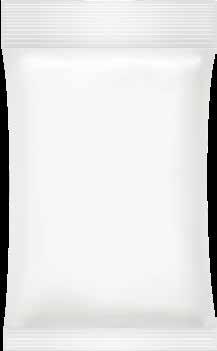

COSMOPROF / COSMOPACK
Bologna 20 - 23 MAY www.cosmoprof.com

PLMA LEADERSHIP CONFERENCE
Scottsdale, AZ, USA 2 – 4 APRIL www.plma.com
VELOCITY CONFERENCE + EXPO Charlotte, NC 13 - 15 MAY www.velocityinstitute.org

PLMA’S WORLD OF PRIVATE LABEL Amsterdam 20 - 21 MAY www.plmainternational.com
IDDBA
New Orleans, LA 1 - 3 JUNE www.iddba.org

FOOD TAIPEI
Taipei, Taiwan 26 - 29 JUNE foodtaipei.com.tw/en/index.html

SUMMER FANCY FOOD SHOW
New York, NY 29 JUNE - 1 JULY www.specialtyfood.com

JULY
COSMOPROF NORTH AMERICA
Las Vegas, NV 15 - 17 JULY www.cosmoprofnorthamerica.com









Store brands across the U.S. closed the books on 2024 with new records set in annual sales and dollar and unit market shares.
The topline numbers tell a compelling story. Store brand dollar sales in all outlets increased 4x that of national brands last year as the products surged ahead 3.9% compared to a gain of only 1% for their branded counterparts. Looking at unit sales, the head to head disparity was much the same. Store brands advanced 2.3% versus the figure for all of 2023 while national brands dropped -0.6%.
As a result of this enthusiastic response to the products by shoppers at the country’s checkouts, store brands (or private label, retailer brands, own brands) set all-time highs in both key market share metrics — moving up to 20.7% in dollar
share and to 23.1% in unit share, for the period from January 8 to December 29, 2024, reports PLMA, per data from Circana Unify+.
One of every four food and non-food grocery products purchased throughout the U.S. during the year carried the store’s name or one of its proprietary brands.
Total store brand sales volume for 2024 surpassed a quarter trillion dollars, coming in at $271 billion, an increase of $9 billion over the prior 52 weeks and establishing an all-time high in annual revenue. Sales of store brand units were up 1.5 billion to 67.4 billion, another record.
Taking a longer view, annual dollar sales of U.S. store brands increased
by $51.7 billion, or plus 23.6%, over the past four years -- from 2021 to 2024 -- while annual store brand unit sales moved ahead 2.1%, or up 1.4 billion. By comparison, over the same period national brands gained 11.5% in annual dollar sales but slumped -6.8%, or down 16.2 billion, in annual unit sales.
Increases in market shares signal store brands’ superior multi-year performance vs national brands. Store brand dollar share rose 1.6 points from 19.1% in 2021 to 20.7% in 2024 while unit share advanced 1.5 points from 21.6% to 23.1%.
Pulling more than their own weight, store brands accounted for nearly half, 47%, of all sales gains last year in U.S. retailing (or $9 billion of the industry’s $19 billion overall growth).
2024 Sales Dashboard
$218,872,974,826
$927,467,435,579
$247,314,095,849 $988,771,253,283
$261,587,403,216 $1,023,428,384,953
$1,033,780,881,098 2021 2022
$270,580,954,204
65,991,814,086 240,170,155,150
65,468,069,530 231,377,798,796
65,844,817,282 225,303,165,772
67,362,282,262 223,931,725,136
Store brand sales finished the year on the upswing, perhaps auguring a strong start to 2025. Over the second half, from July 14 through the balance of 2024, dollar volume gained 4.6%, vs plus 3.5% for the first six months.
“We are gratified that the new numbers represent an end of the sharp sales volatility of the last several years and a return to the steady state to which our industry is historically accustomed,” says Peggy Davies, PLMA President.
“Middle single digit increases year over year are a sweet spot where store brand sales have traditionally found themselves. Sales spikes -- up and down -- such as we experienced earlier this decade wreaked havoc on the supply chain, the sourcing of ingredients, meeting packaging needs, human resources, capital requirements, pricing, and corporate planning, among other operational issues.”
Departmental sales provide a comprehensive picture of the 2024 results. All ten food and non-food sections finished ahead of the prior year in store brand dollar sales with the two largest departments -- Refrigerated (+ 7.5%) and General Food (+4.3%) -- gaining the most. Beverages were up by 4%, followed by Beauty (+3.7%), Home Care (+3.4%) and Frozen (+3.3%).
Looking at total departmental store brand sales, Refrigerated was again the largest with $57.7 billion, followed by General Food ($51.7 billion), General Merchandise ($25.5 billion), Frozen ($21.6 billion), Home ($18.5 billion), Beverages ($14.4 billion), Pet Care $5.3 billion) and Beauty ($3.8 billion).
When it came to store brand unit sales, nine departments improved. Leading the way were Beverages and Pet Care, which both rose 3.5%, followed by Home Care (+3.3%), General Food (+2.8%), Refrigerated (+2.7%), Frozen (+2.1%), Beauty (+1.9%), and General Merchandise (+0.1%). Only Health declined at -0.4%.
The top departments for total store brand unit sales were General Food (18.8 billion), Refrigerated (14.9), General Merchandise and Beverages (both 4.9 billion), Frozen (4.6 billion), Health (2.4 billion), Beauty (974 million), Pet Care (931 million) and Home Care (736 million).
In market shares, store brands increased in food and non-food product departments across the board.
Store brand unit share rose in every department, with the best gains in General Food, +0.7%, followed by Beverages, General Merchandise and Home Care, all +0.5%. Share is highest in General Merchandise at 41.4%, next are Refrigerated (38.4%), Frozen (27.5%) and Health (25.5.%).
As for store brand dollar share, the largest gains were in Frozen (+0.6%), General Food (+0.5%) and General Merchandise (+0.4%). Top store brand dollar shares were in Refrigerated (36.4%), General Merchandise (33.4%) and Frozen (25.9%).
Drilling down further, store brand expansion occurred in a majority of categories. The products racked up dollar sales gains in 129 of the 167 edible categories (77% of them) in which they were sold and enjoyed unit sales improvement in 118 (71%). Among the 153 non-edible categories that offered store brands, dollar sales growth was recorded in 79 (52% of them) and there were unit sales increases in 85 (56%).
PLMA’s Davies pointed to a statement by former Kroger Kroger CEO Rodney McMullen as an excellent explanation of private label’s ascension and the strategic importanceof the products to retailers and consumers.
McMullen told investors, “The profitability of Our Brands is several hundred basis points higher than national brands. And if the CPGs are willing to continue to give up share to Our Brands we’re OK because we find once a customer tries Our Brands the repeat rate of their coming back is incredibly high because what they find is there’s no compromise on quality, and they have great value for the money.”
News from PLMA’s International Council reveal that Private Label brands continue to gain momentum across Europe, with total sales reaching €352 billion in 2024, according to data from NielsenIQ. This marks a 0.11 percentage point increase in market share from 2023, bringing private labels to 38.1% of the total grocery sector.
NielsenIQ’s survey, conducted across 17 European markets for PLMA’s 2025 International Private Label Yearbook, found that private label sales increased in nine out of the 17 countries. Europe remains a dominant global player in private label sales, with 10 countries exceeding a 30% market share of which five surpassing 40%. The region’s three largest grocery markets - Germany, the United Kingdom, and France - hold a collective private label share of 39.7%, reflecting a 0.1 percentage point increase from the previous year.
Among the highest-growing markets, Spain leads with a 1.2 percentage point increase in private label share, followed by the Czech Republic (+0.5 pp), Portugal (+0.4 pp), and France (+0.4 pp). Switzerland remains the strongest private label market, boasting a 52.0% share, making it the only country with a share above 50%.
After a decline in unit volumes in 2023, the grocery market is showing signs of recovery, with total unit sales increasing by 1.27% in 2024, adding 5.24 billion units. Private labels have been the primary driver of this growth, contributing over 75% of the total increase, while manufacturers’ brands accounted for the remaining 25%.

Consumer perception of private labels continues to evolve, reinforcing their value proposition. A YouGov study indicates that shoppers have rated the price-performance ratio of private label products higher than in previous years. As a result, retailers with strong private label portfolios are gaining favour among price-conscious consumers.
Consumer attitudes toward private labels are shifting, leading to their transformation from budget-friendly alternatives to competitive, high-quality product lines. According to NielsenIQ, 50% of global consumers report an increased willingness to purchase private label products, and 40% say they would pay higher prices for them if they perceive superior quality. This trend reflects a growing “branding effect” in private labels.
Across product categories, private label growth is particularly strong in Ambient Food, Confectionery & Snacks, and Perishable Food, which collectively account for an average of 46.8% private label value share, representing €221 billion across the 17 tracked European markets. The highest growth within large markets (Germany, United Kingdom and France) was observed in Ambient Food and Alcoholic Beverages.
Spain and Portugal saw private label share gains of +1.1 percentage points, with Frozen Food growing by +2.0 percentage points. In contrast, Healthcare
and Pet Food saw slight declines in these regions. Belgium and the Netherlands experienced a minor -0.3 percentage point decline overall, but still showed growth in Healthcare, Ambient Food, Confectionery & Snacks, and Alcoholic Beverages. In Eastern Europe, private label share grew by +0.3 percentage points, led by Home Care, Perishable Food, and Ambient Food.
Scandinavian markets saw a slight -0.04 percentage point decline in private label share, mainly in Paper Products (-1.3 pp), Alcoholic Beverages (-0.2 pp), Frozen Food (-0.2 pp), Non-Alcoholic Beverages (-0.1 pp), and Ambient Food (-0.03 pp). However, growth was still visible in Health Care (+1.4 pp) and Health & Beauty (+0.4 pp).
A recent PLMA industry survey among private label manufacturers and retailers found that nine out of 10 industry professionals expect private label sales to continue growing in the coming years. With evolving consumer preferences, strong price-performance value, and increasing premiumization, private labels are poised for continued expansion across European markets.
According to NielsenIQ, total private label sales across the 17 European countries grew by €9.5 billion, reinforcing the sector’s resilience and growth potential in a competitive retail landscape.
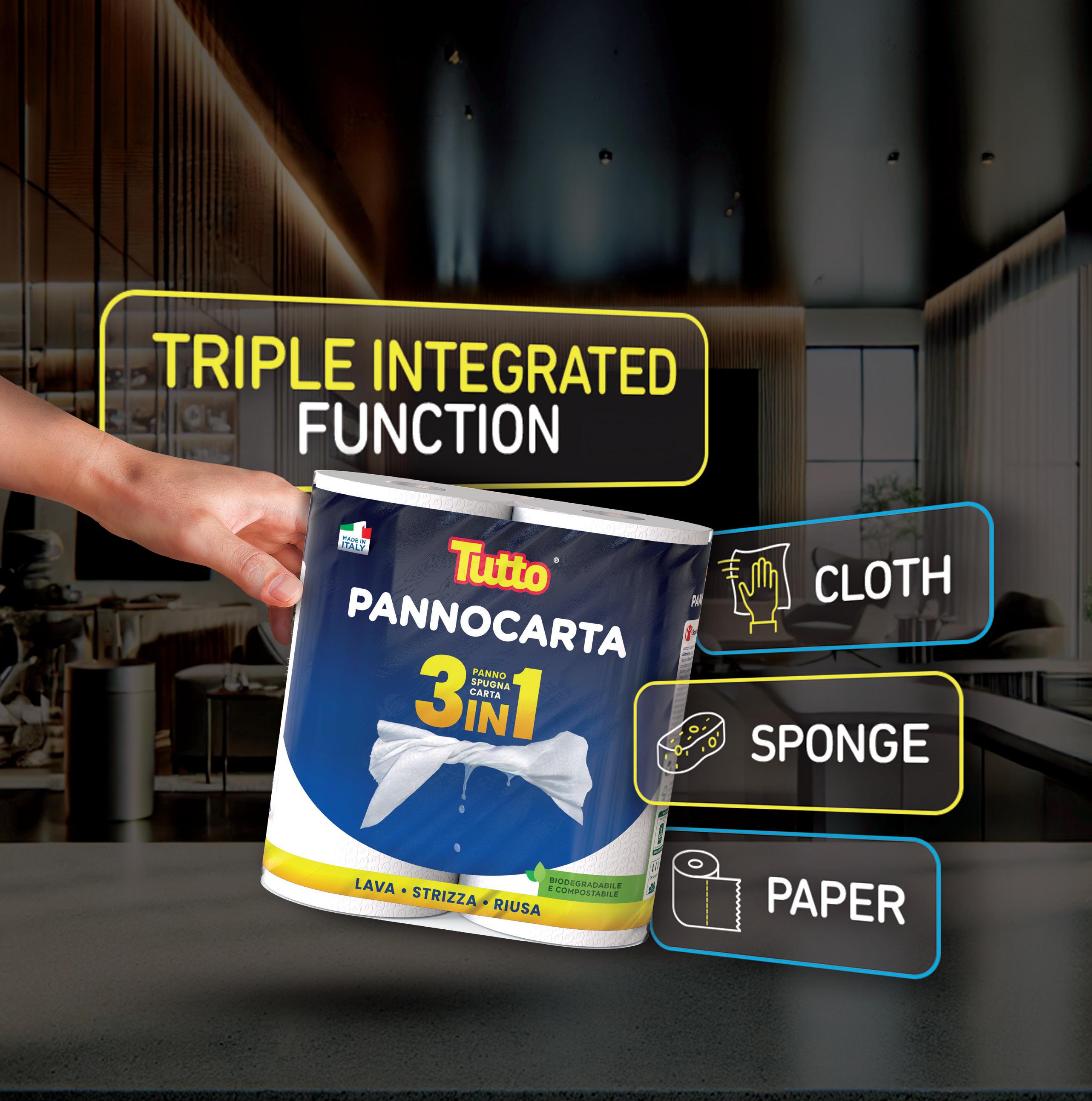
This is Tutto Pannocarta, the only one with a triple integrated function: cloth, sponge, paper. Each individual sheet can be washed, wrung out and reused numerous times. The secret of this product lies in Airlaid technology, which makes it possible to obtain a paper with a thick and consistent texture, very similar to fabric, but with the properties and versatility of paper. Tutto Pannocarta, the technological paper rolls.

Find out more on tuttoxtutto.it
The Private Label Manufacturers Association is preparing for its largest and most highly anticipated 2025 World of Private Label International Trade Show, May 20-21 at the RAI Amsterdam Convention Centre.
With a record-breaking number of exhibitors and high expectations from retailers and manufacturers globally PLMA’s World of Private Label International Trade Show reaffirms its position as the premier meeting place for the private label industry worldwide.
With over 3,100 exhibitors from 73 countries, including new pavilions from Canada, Scotland, Bulgaria, Morocco, and Ukraine, the trade show floor will showcase a diverse and innovative range of private label products across all FMCG categories. The show floor will be divided into Food and Non-Food halls, allowing attendees to efficiently explore emerging trends, innovations, and new product developments in a dynamic business environment.
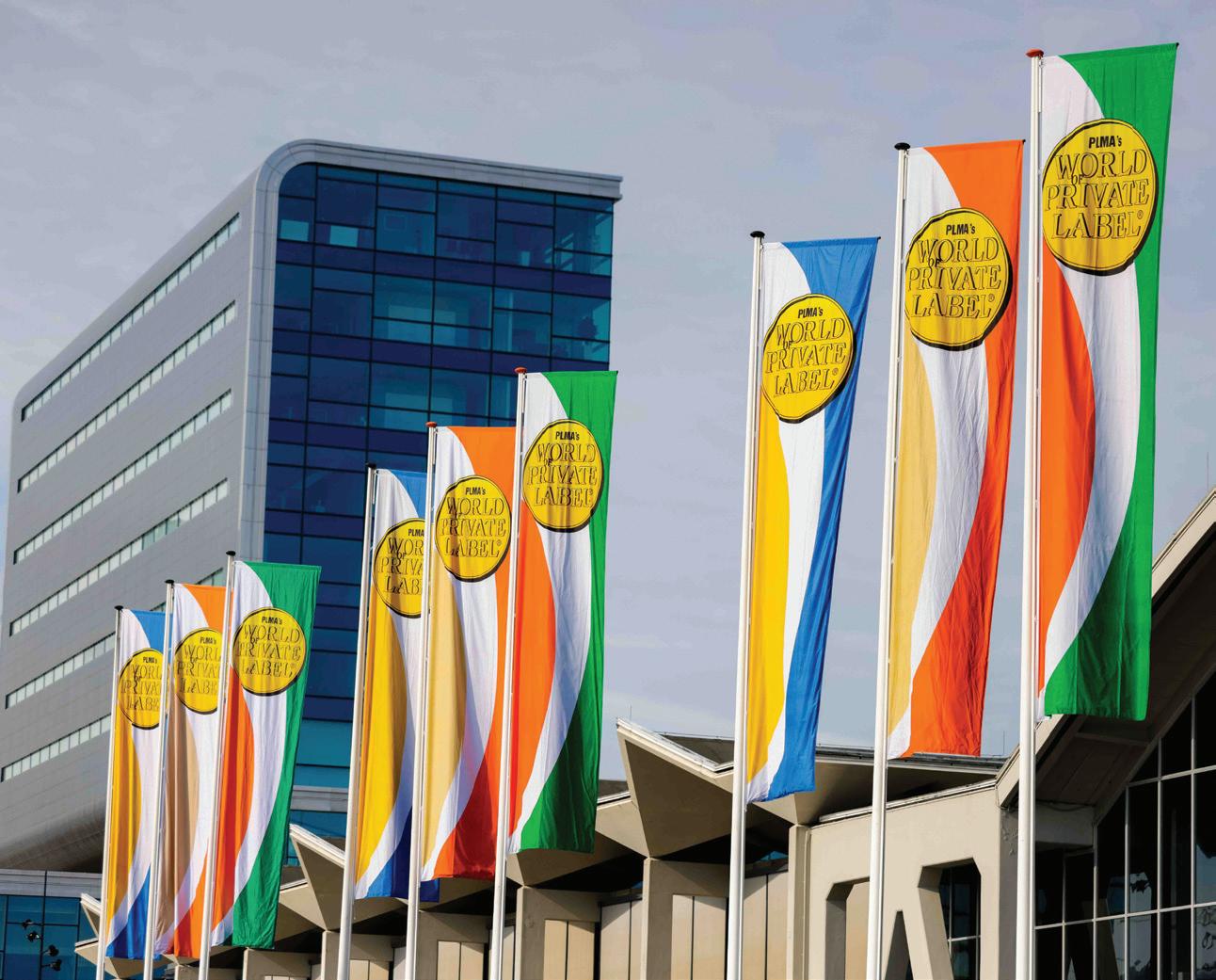
“As private label continues to expand across all markets, companies are seeking innovative products, sustainable solutions, and dependable business partners,” said PLMA President Peggy Davies. “This year’s two-day event, featuring the largest concentration of private label professionals in the industry, will spotlight key trends such as sustainability, health-conscious products, and convenience, while offering exhibitors and buyers an ideal opportunity to connect and grow their businesses.”
PLMA’s annual trade show is the key industry event. With a strong demand for networking, insights, and collaboration, this year’s show is more important than ever.
The trade show has proved itself as the perfect formula for success, combining all the essential elements for growth:
As private label continues to expand across all markets, companies are seeking innovative products, sustainable solutions, and dependable business partners.
Peggy Davies, President, PLMA
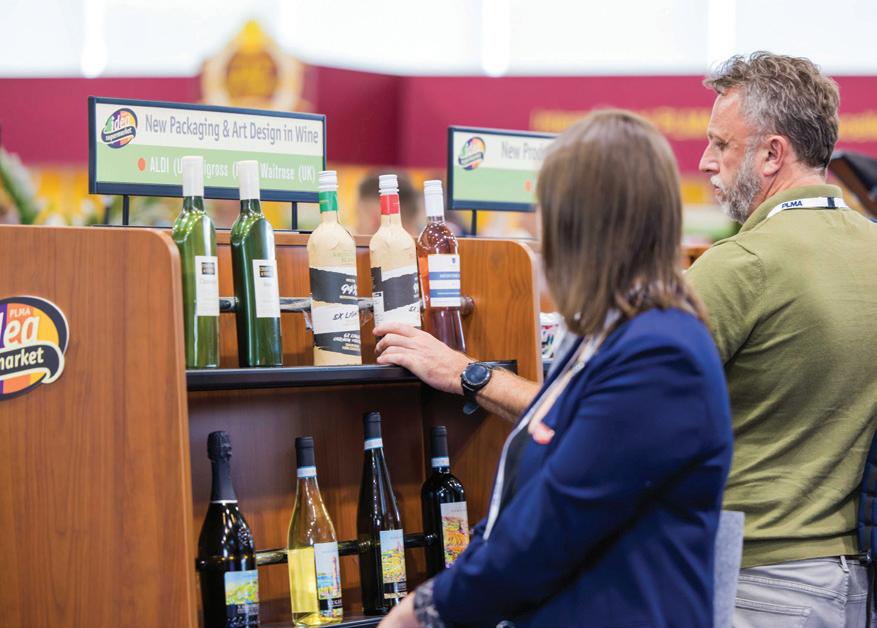
• Innovation at PLMA’s Idea Supermarket®, showcasing the latest private label product trends and packaging solutions.
• Intelligence through expert seminars, including presentations, case studies, and workshops on important industry topics. Speakers include Jumbo Supermarkten in The Netherlands and NielsenIQ who will give an analysis on private label market shares in Europe.
• Business Opportunities on the Trade Show Floor, where exhibitors and buyers come together to create new partnerships and drive private label forward.
With a record number of participants drawing top-tier visitors, PLMA’s 2025 World of Private Label International Trade Show sets the stage for private label success.


We’re delighted that PLMA President, Peggy Davies, shared some thoughts on the world’s largest PLMA Event and the industry overall.
What makes PLMA’s World of Private Label unique this year?
We’re thrilled to welcome the largest number of exhibitors and buyers to date, creating an incredibly dynamic atmosphere filled with energy, our distinctive buzz, and insightful business conversations happening throughout the trade show floor. With a sharp focus on key private label emerging trends and innovative products, including sustainability, health, and convenience. PLMA is the ultimate platform to cultivate & build valuable business relationships.
What can we expect from this year’s trade show?
The trade show floor is divided into 9 Food and 5 Non-Food halls, with 3,100+ companies from over 70 countries showcasing their latest private label offerings, making it a truly global event. On Monday, May 19, the day before the trade show, we also offer a seminar program and workshops, with all registered visitors and exhibitor personal invited to attend.
Why should one come to Amsterdam and visit the trade show?
This is an easy one: without a doubt, this show is the place to be if you are involved in private label, whether in manufacturing, procurement or retail. It is where business develops, thrives & grows offering the perfect blend for success: strengthening relationships, exploring trends and innovation, and discovering new developments with like-minded professionals. Don’t just take my word for it—come see for yourself! I’m confident it will be an exceptional experience you won’t want to miss.

Over 3,100 exhibitors from 73 countries showcase their latest private label offerings

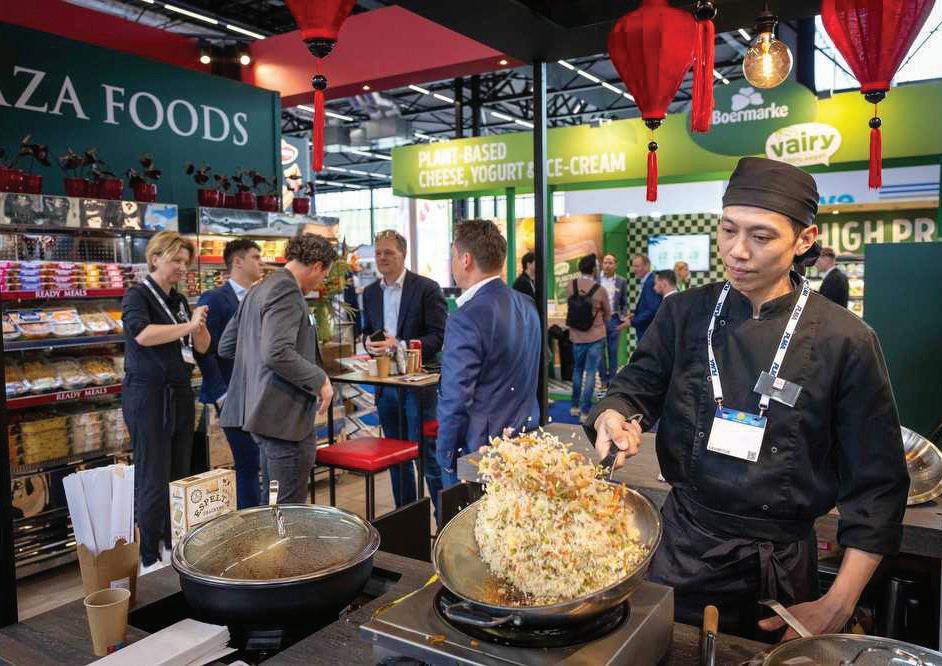
What are the biggest private label trends emerging from this year’s show?
Ongoing trends like vegan, plantbased, and organic products are widely represented at the trade show, with a growing offering of sustainable food and non-food products. These trends highlight opportunities for the industry to take the lead in creating a greener world.
How has retailer demand changed post-pandemic, and what are they looking for?
Post-pandemic, retailer demand in the FMCG industry has evolved significantly, with a heightened focus on flexibility, efficiency, and responsiveness. Retailers are increasingly seeking products that align with shifting consumer priorities, such as health, sustainability, and convenience. With the pandemic accelerating digital adoption, there’s a growing demand for innovative e-commerce solutions and improved supply chain transparency. Retailers are looking for partners who can quickly adapt to changing market conditions, offer more sustainable packaging options, and provide faster, more reliable delivery solutions.
How does the current private label market compare to last year?
According to data from NielsenIQ commissioned by PLMA, private label continues to gain momentum across Europe, with total sales reaching €352 billion in 2024, a 2.8% increase compared to the previous year. In all of the 17 countries private label Euro sales increased.
How does the European private label market compare to North America or Asia?
Europe remains a dominant global player in private label sales, with 10 countries exceeding a 30% market share, of which five surpass the 40% mark. The three European largest grocery markets; Germany, the United Kingdom, and France, hold a collective private label share of 39.7%, reflecting a 0.1 percentage point increase from the previous year.
Private label continues to gain momentum across Europe, with total sales reaching €352 billion
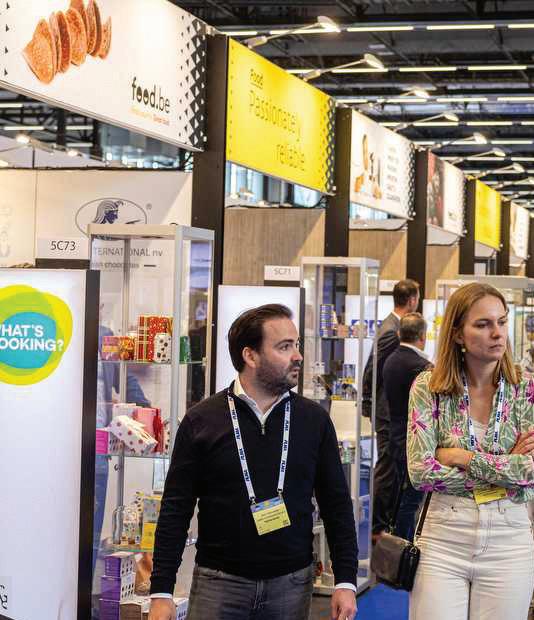
What networking opportunities does PLMA offer to help buyers connect with exhibitors?
PLMA offers retailers an online Matchmaking service to set up appointments with exhibitors in advance of the show. PLMA Matchmaker is part of PLMA’s online Show Navigator which is launched to all visitors and exhibitors mid-April.
What advice would you give to a first-time exhibitor at PLMA Amsterdam?
PLMA organises one of the most efficient trade shows in the world. To make the most of your experience, preparation is key. Registered visitors use PLMA's online Show Navigator to map out a successful strategy for their visit to the event. Show Navigator provides a dynamic show floor map and extensive search functionalities to locate exhibitors and products. Exhibitors have various options to upgrade their standard listings in Show Navigator to stand out from the competition, such as advertisements, logos, videos, press releases and detailed company profiles.
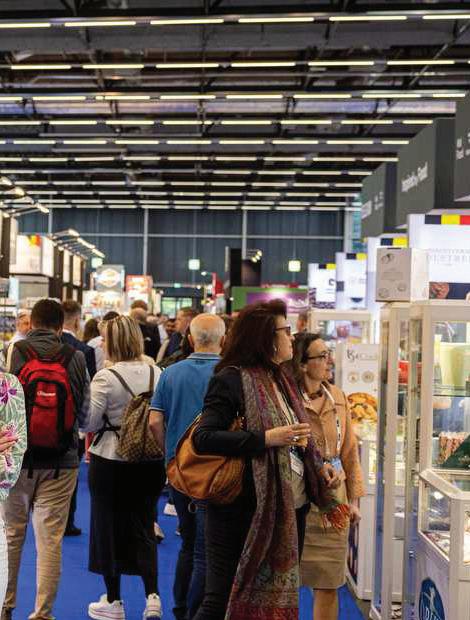
How does the event highlight sustainable and eco-friendly private label products?
In PLMA’s Idea Supermarket sustainability is a major focus. Many examples are on display, including sustainable packaging, eco-friendly growing methods, and responsible sourcing. All offering plenty of inspiration for those looking to explore and acquire knowledge about sustainable private label products.
What key industry challenges will the upcoming seminars and workshops address, and how will they help attendees navigate these issues?
The seminar programme on Monday 19 May will offer a behind-the-scenes look at Jumbo, the second-largest Dutch retailer. They will provide insights into their strategies and the challenges they face. Nielsen IQ will report on the private label market share in Europe and the implications, trends and forecasts in the different countries.
How do you see the future of private label evolving in the next 5 to 10 years, especially in light of shifting consumer behaviours and market trends?
Private label has always been closely aligned with evolving consumer behaviours, and this trend will only continue. As consumers increasingly prioritize healthy eating, convenient meal solutions, and sustainable products, private label brands are uniquely positioned to respond swiftly. Unlike established national brands, private labels are able to adapt to emerging trends, offering tailored solutions
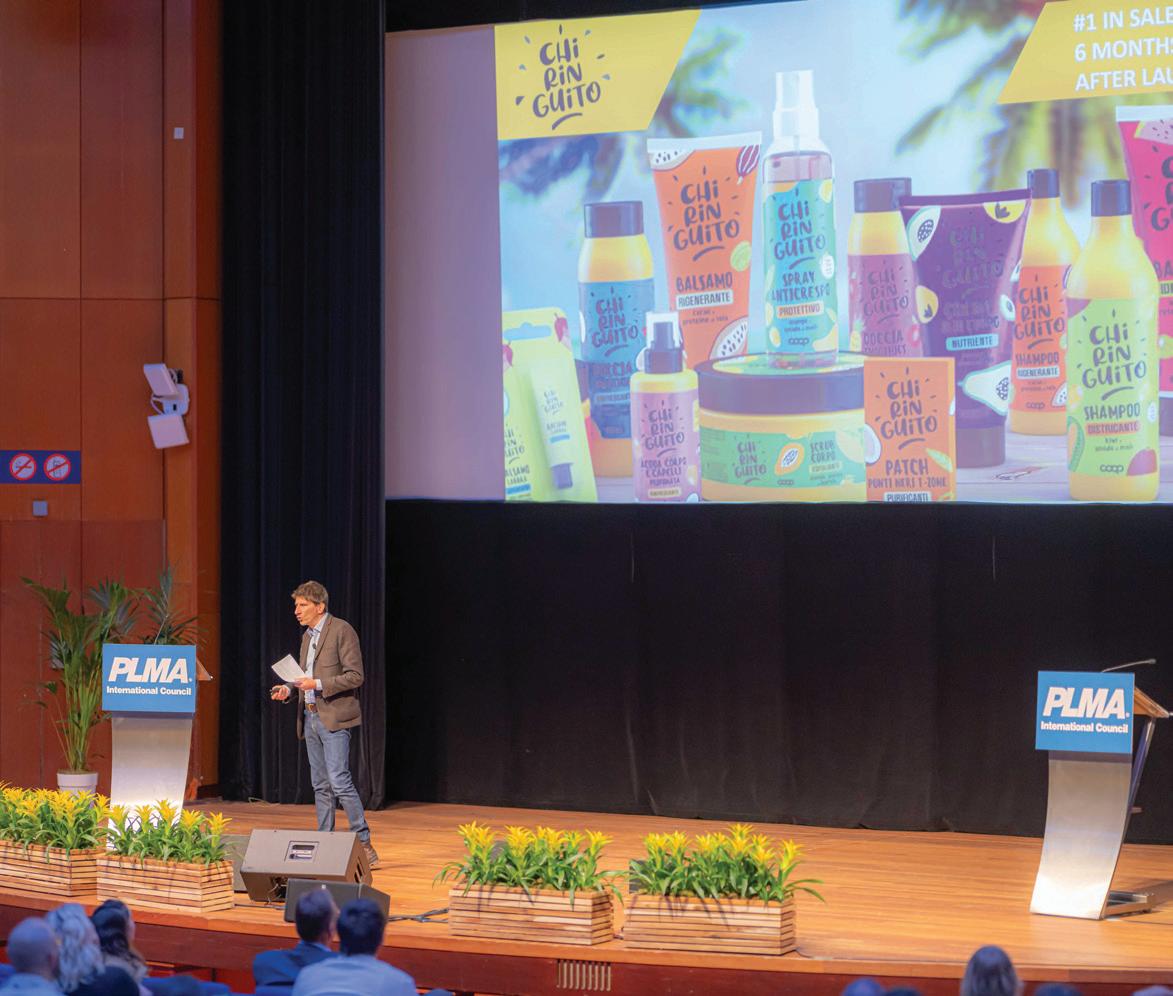
that meet the immediate demands of consumers. Whether it’s developing healthier options, eco-friendly cleaning products, or time-saving food solutions, private label offers retailers the agility to stay ahead of the curve and keep pace with changing consumer preferences.
What role do you believe sustainability and innovation will play in the future growth of private label brands?
Sustainability has become a major factor over the past five years, evolving so fast that it is now essential in the development of all new private label products, whether in materials or sourcing. Market trends clearly show this shift. There is no turning back, sustainability is here to stay!
As competition between private label and national brands intensifies, what strategies will be crucial for private label brands to succeed in the future?
Private label has traditionally been seen as a more affordable alternative to national brands. However, while price is an advantage, quality remains the key factor for consumers. Price alone has never driven repeat purchases, if the quality doesn’t meet expectations, consumers are unlikely to buy again.

The first Private Label Packaging Conference, hosted by PLMA on 30 January in The Hague, brought together private label manufacturers, retailers, and industry leaders to discuss new packaging legislation. The event underscored the urgency for innovation in packaging, particularly in response to regulatory changes and the growing demand for sustainability.
Benjamin Punchard (above), Global Packaging Insights Director at Mintel, emphasized that the private label packaging sector is at a turning point, making innovation more necessary than ever. He pointed out that sustainability remains a key focus, advising the industry to embrace eco-friendly materials like paper as technological advancements improve its quality and barrier properties. While plastic continues to dominate, the shift toward responsible use is evident through material reduction, increased recyclability, and higher recycled plastic content.
Greet De Feyter, Head of Product Sustainability, and Ilka Lannau (above), Head of Division Private Label at Colruyt Group, shared insights into how their company encourages consumers to make sustainable choices. Colruyt introduced the Eco-Score label in 2021, classifying products from A (green, low environmental impact) to E (red, high environmental impact). The retailer has linked the score to its loyalty program, rewarding customers who purchase eco-score A or B products with points that can be exchanged for sustainability initiatives.
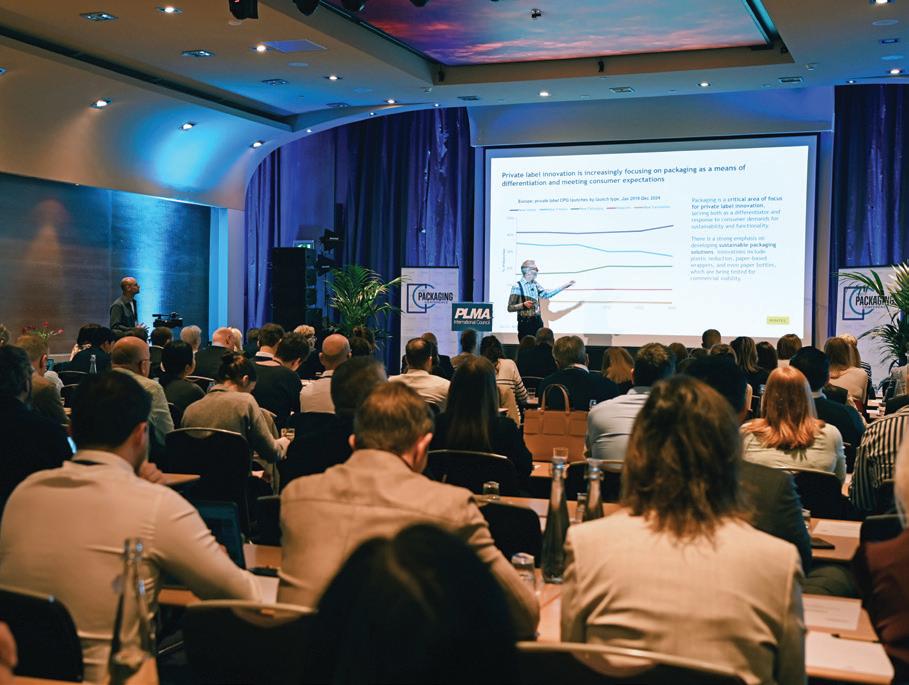
Kevin Loos, Retail & Channel Manager at Tetra Pak, highlighted the importance of collaboration and innovation in navigating big data, new regulations, and sustainability transformation. He outlined four key steps for bringing packaging innovations to market: co-creation with manufacturers and retailers, AI-driven design based on consumer behaviour analysis, strategic launch processes that include marketing and education, and emphasizing packaging benefits that enhance logistics and shelf space efficiency.
Karlijn van den Berg, E-Commerce Manager at Hema in the Netherlands, discussed the role of packaging in digital retail. She explained that packaging is not just important in physical stores but also in online marketplaces, where it can be brought to life through interactive elements, augmented reality, and dynamic product displays.
Leena Whittaker, Director of Competitiveness at EuroCommerce, provided an overview of the new EU Packaging and Packaging Waste Regulation (PPWR), which came into effect on February 11, 2025. The details of the regulations are even now in development. Whittaker urged manufacturers, packaging companies and retailers to inform them of problems that they run into when implementing the new regulations.
Regina Mestre, Analyst Food & Agribusiness Packaging at Rabobank, moderated a panel discussion on the PPWR, where experts from different parts of the value chain: PreZero, Mondi Group, and Swedish retailer Axfood explored cost control in sustainable packaging.
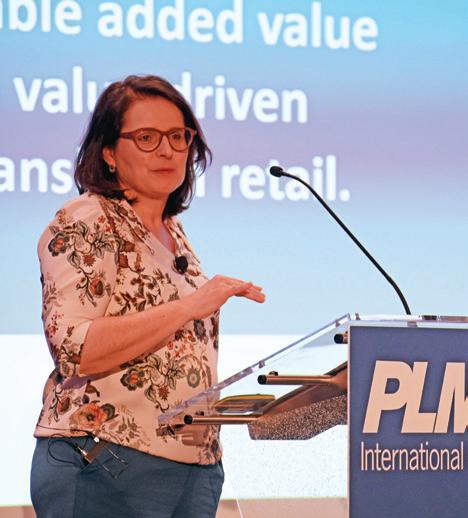

The
• Aims to prevent waste, boost high-quality recycling by requiring packaging to be fully recyclable by 2030 and to reduce the need for primary resources
• New sustainablility requirements for packaging
• Promote reusable and refillable packaging solutions for foood and non-food, including transport packaging and Deposit-Return Schemes
• Waste prevention via requirement to minimize packaging volume and weight and empty-space ration of max 40%.
APPLIES TO ALL :
• Packaging (B2C and B2B)
• Packaging materials
• Packaging Waste
Alexander Reitz from PreZero acknowledged that while costs may initially rise, the market will adapt and drive prices down over time. Nadja Dahlgren, Packaging Developer at the Swedish retailer Axfood/Dagab also pointed out that by designing packaging more efficiently and reducing excess air, companies can lower transport costs. Marco Macoratti, Head of Sustainable Packaging Solutions at Mondi Group, emphasized that collaboration across the value chain is essential for optimizing costs and ensuring effective sustainability measures.
Steen Tjarks, President of Tjarks & Tjarks Design Group, underscored the influence of design on consumer purchasing decisions. A study conducted by the company with over 15,500 participants across the US and Europe examined the key factors influencing consumers' "Willingness To Pay" (WTP). The findings revealed that design accounts for up to 27.6% of WTP variance for private labels, making it just as critical as price and quality combined. The life cycle for redesigning private label products has shortened significantly, driven by shifting consumer expectations.
Loe Limpens, founder of concept creation agency Wow or Never, observed that some companies still view packaging as a cost rather than an investment. He described packaging design as a strategic process that integrates various elements to introduce a product; a brand, a retailer and to tell their story. He strongly encouraged investing in the best design as it will pay off in the end.
The PLMA Packaging Conference made it clear that packaging is undergoing a major transformation, driven by regulatory changes, sustainability demands, and digital innovation. As the industry navigates this shift, collaboration, creativity, and a willingness to embrace change will determine which companies emerge as leaders in the evolving packaging landscape.

Conducted as part of PLMA’s prestigious Salute to Excellence Awards programme, nine awards were presented in five categories: Best Packaging Design, Best Sustainable Packaging, Best Convenience Packaging, Best Performance Excellence and Best Innovation in Packaging.
The winners were chosen from 200 entries, spanning from individual products to entire ranges. Entries were evaluated by a panel of experts in design, sales, marketing, and sustainability. Products were judged based on aesthetics, consumer engagement, clarity of message, boldness, innovation and brand identity.
Peggy Davies, president of PLMA, remarked: “The judging process was both dynamic and insightful, providing valuable perspectives on the evolving landscape of packaging.”
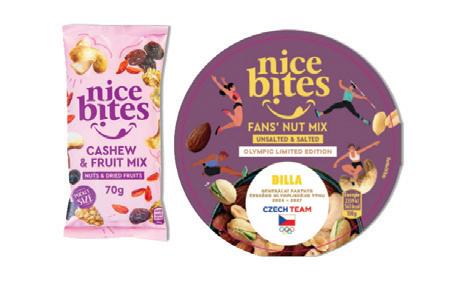
PACKAGING: PERFORMANCE
EXCELLENCE
Billa iki, REWE Group
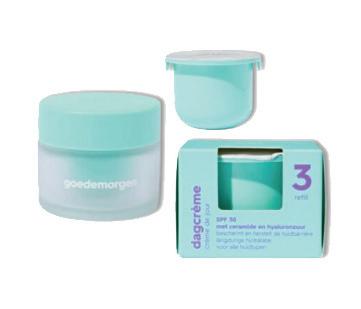

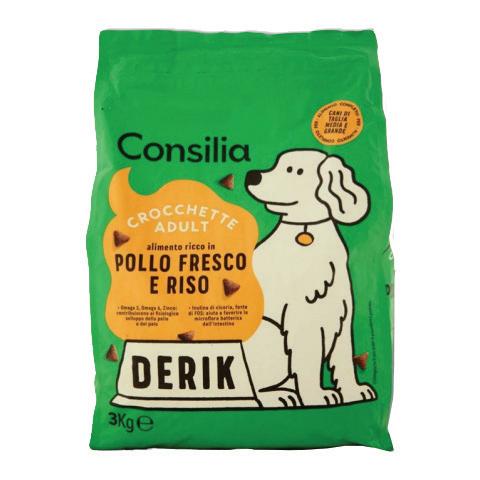
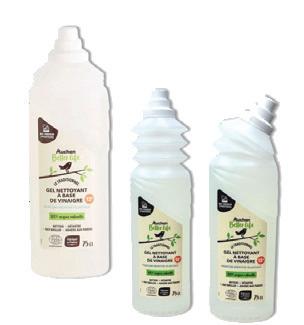
PACKAGING DESIGN: NON-FOOD
HEMA PACKAGING DESIGN: FOOD
BILLA, REWE
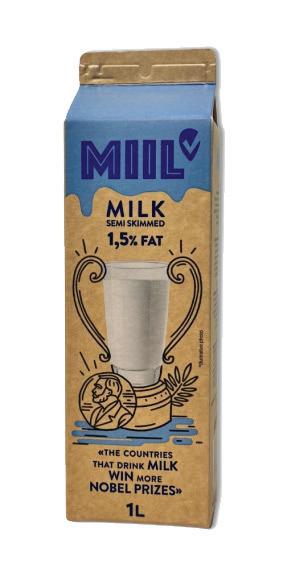
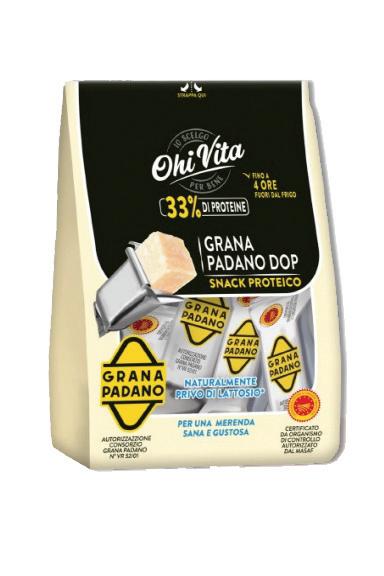
PACKAGING DESIGN: FOOD rohlik group
CONVENIENCE PACKAGING: Gruppo VeGe
PACKAGING DESIGN: NON-FOOD
SUN, SELEX
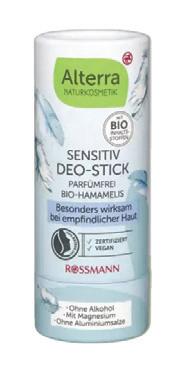
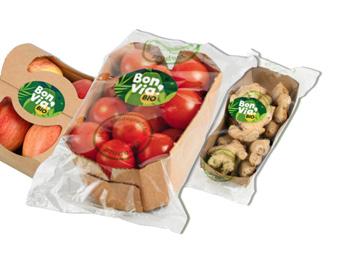
SUSTAINABLE PACKAGING: NON-FOOD ROSSMAN
SUSTAINABLE PACKAGING: FOOD
Billa iki, REWE Group
PACKAGING INNOVATION: Auchan
Certified Origins was born in 2006 thanks to the union of two Tuscan cooperatives of farmers and an organization specializing in international sales and distribution to export and provide fresh and authentic Extra Virgin Olive Oil to families everywhere in the world.
Today, we remain cooperative-owned and continually expand our portfolio by directly sourcing from farmers and other cooperatives in the Mediterranean region. The confidence and trust built over decades in the industry allow us to guarantee the quality of our products and give us access to the scale necessary to work with retail organizations.
Our international presence, with multiple bottling plants between the USA and Europe, is supported by a flexible distribution and warehousing network, which enables us to deliver anywhere globally within 4-8 weeks and in as short as 2 days in the USA and Canada.
Since our foundation, we have continuously dedicated time and resources to obtaining all the most recognized certifications for quality, safety, and traceability available in the food industry worldwide. We have also worked closely with third-party control bodies to develop additional internal audits and a code of conduct to set our standards above the global benchmark.
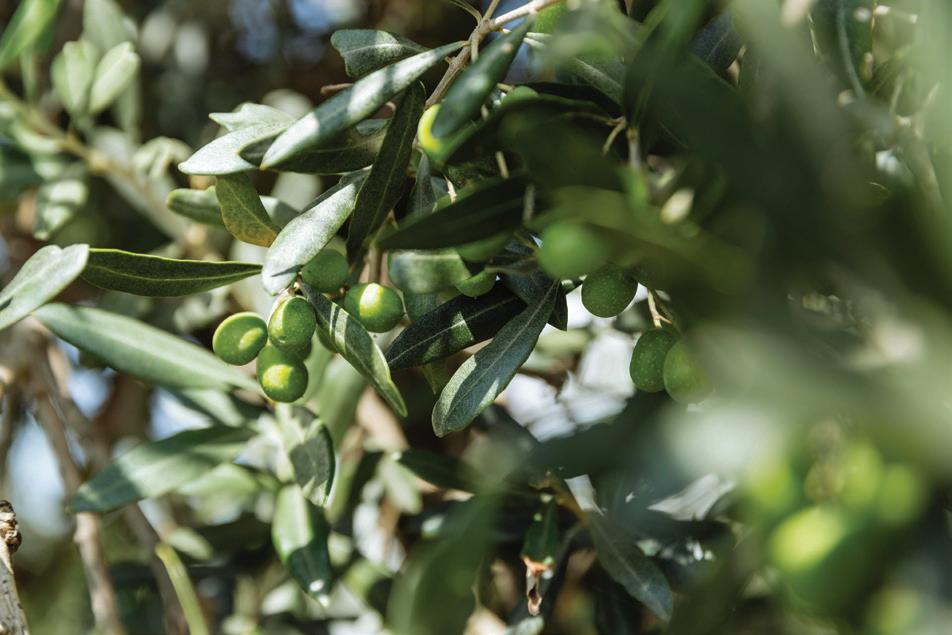
Since 2019, we have constantly invested in Research & Development, particularly technology and tracking systems. Today, we can deploy the latest technologies and third-party certifications to reduce the risk of information manipulation and fraud at the source while monitoring our food supply chain’s quality and safety standards.
Thanks to our partnerships with the University of Salento and Eurofins, we have built one of the largest databases available to scientifically verify the authenticity and origin of our Extra Virgin Olive Oils by investing in nuclear magnetic resonance (NMR) and isotopic signatures technologies.
CARBON REDUCTION:
Certified Origins has introduced multiple carbon-reduction and compensation programs for Italian Extra Virgin Olive Oils lines under its flagship brand, Bellucci. Collaborating with agricultural associations, we have also developed broader strategic initiatives to promote resilience and minimize environmental impact throughout our supply chain.
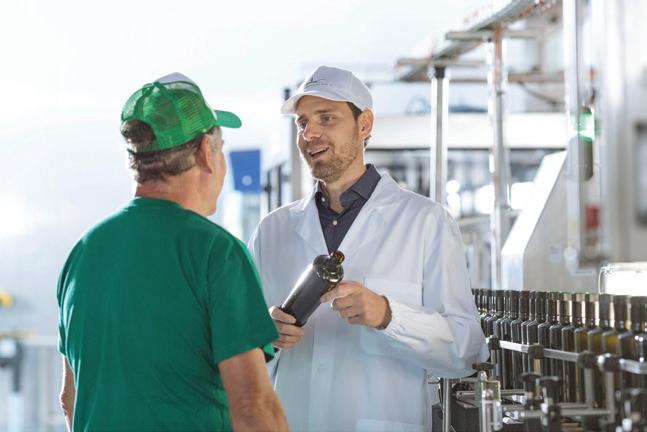
RECYCLED PACKAGING:
We are committed to reducing our global environmental footprint by incorporating responsible sourcing practices in our product development. The PET and cardboard used in our packaging are from up to 50% recycled materials, and we are actively working to increase this percentage and extend these practices across our entire portfolio.
SUSTAINABILITY INTEGRATION :
Certified Origins integrates sustainability across all company areas by promoting transparency, targeted training, and clear communication. Through dedicated initiatives, we ensure that responsible practices are embraced fully and continuously improved across our operations.
GREEN ENERGY:
Our Italian headquarters and bottling facility implemented an energy efficiency plan prioritizing renewable energy sources and responsible resource management. This initiative includes:
• Utilizing photovoltaic panels for energy and olive pits as renewable fuel sources for heating.
• Installing a monitoring system to track energy consumption across facility operations.
• Ensuring that 100% of Italy’s external electricity supply will come from renewable sources.



On December 2nd, 2024 the pigmentbased dyeing process PIGMENTURA of CHT Germany GmbH was awarded with the German Ecodesign Award in the Product category.
Inspired by Inditex, the CHT Group developed PIGMENTURA by CHT, an innovative and sustainable dyeing process that reduces water consumption in the dyeing process by up to 96%.
The German Ecodesign Award honors designers, companies and students from Germany and Europe whose work make an important contribution to the sustainable transformation of the German economy and society. The award has been granted annually since 2012 by the German Ministry for the Environment and the German Environment Agency in cooperation with the International Design Center Berlin.
Dr. Annegret Vester, Chief Sustainability Officer at CHT, about PIGMENTURA:
“Developing chemical products and processes that make textile production more sustainable is of utmost importance to us. Our development departments have always worked together with our colleagues in application technology and our customers to make energy-intensive and water-intensive dyeing processes more sustainable.

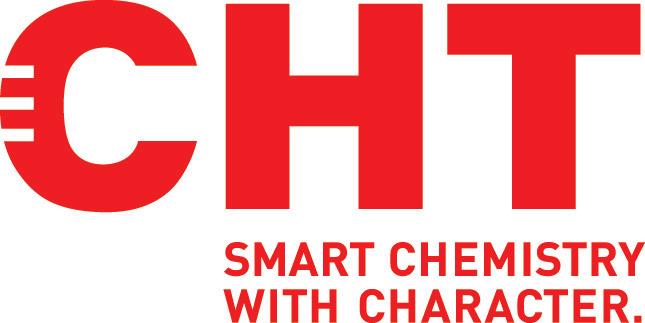
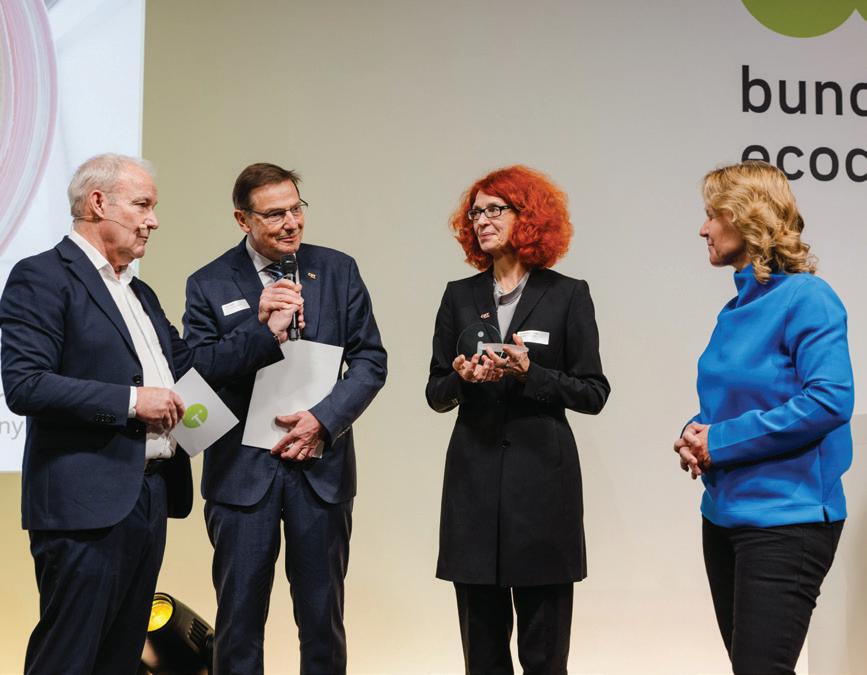
PIGMENTURA is an example of how completely new processes can be developed when existing processes are being rethought: The starting point was traditional pigment dyeing where the pigments have to be “bound” to the textile using special components. PIGMENTURA follows the idea of adsorbing pigments on the surface and thus simplifying the process.
It was a highlight when it became clear what great savings potential can be achieved in the dyeing process with PIGMENTURA. The classic reactive dyeing of textiles is associated with very high energy and water consumption.
There were numerous obstacles to overcome during the development phase, as each individual process step had to be developed to process maturity. Added to this is the diversity of textiles, which leads to significant changes in dyeing behavior, which we have now been able to standardize with PIGMENTURA.
PIGMENTURA by CHT is already in use in the fashion industry worldwide. This makes rivers cleaner, as lower water consumption also results in less wastewater. We are on the way to active environmental protection in the global textile industry.”


































Traditional dyeing processes consume significant amounts of water and energy –resources we can no longer take for granted. PIGMENTURA by CHT offers a modern pigment-based dyeing process designed to minimize environmental impact.
PIGMENTURA by CHT reduces resource consumption while delivering superior results:
No water required for soaping or rinsing
Outstanding color fastness for lasting quality
Soft, comfortable feel with every touch
Minimal machine soiling and low cleaning effort
Seamless integration into existing processes


Choose PIGMENTURA by CHT and make a difference – one fabric at a time.







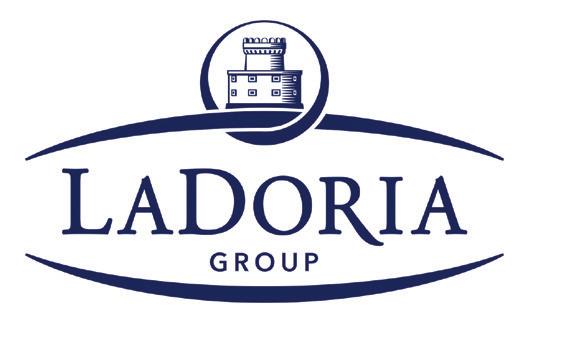
Headquartered in Angri, in the province of Salerno, Italy, La Doria exemplifies Italian excellence in the food canning sector. Specializing in the production of tomato derivatives, ready-made sauces, canned pulses, juices, and fruit-based beverages, the company stands out as Europe’s leading producer of canned pulses, peeled tomatoes, and tomato pulp for the retail sector. Furthermore, La Doria ranks among Italy’s top producers of fruit juices and is the leading European producer of private-label ready-made sauces. Recently, through a significant acquisition, the Group has expanded its portfolio to include pasta, offering an even broader range of products.
La Doria is a trusted supplier to major retail and discount chains worldwide. Its commitment to private label production is evident, with over 97% of the Group’s revenue derived from this segment. The company aims to offer
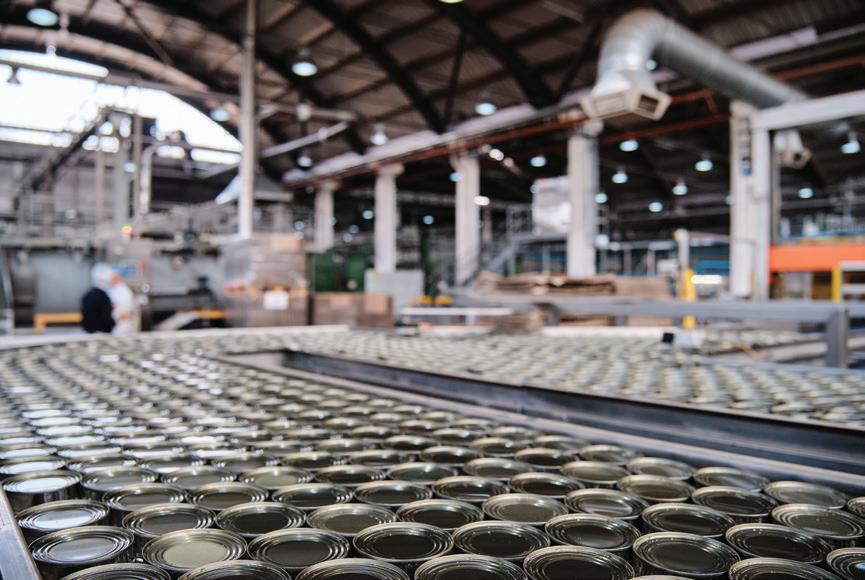
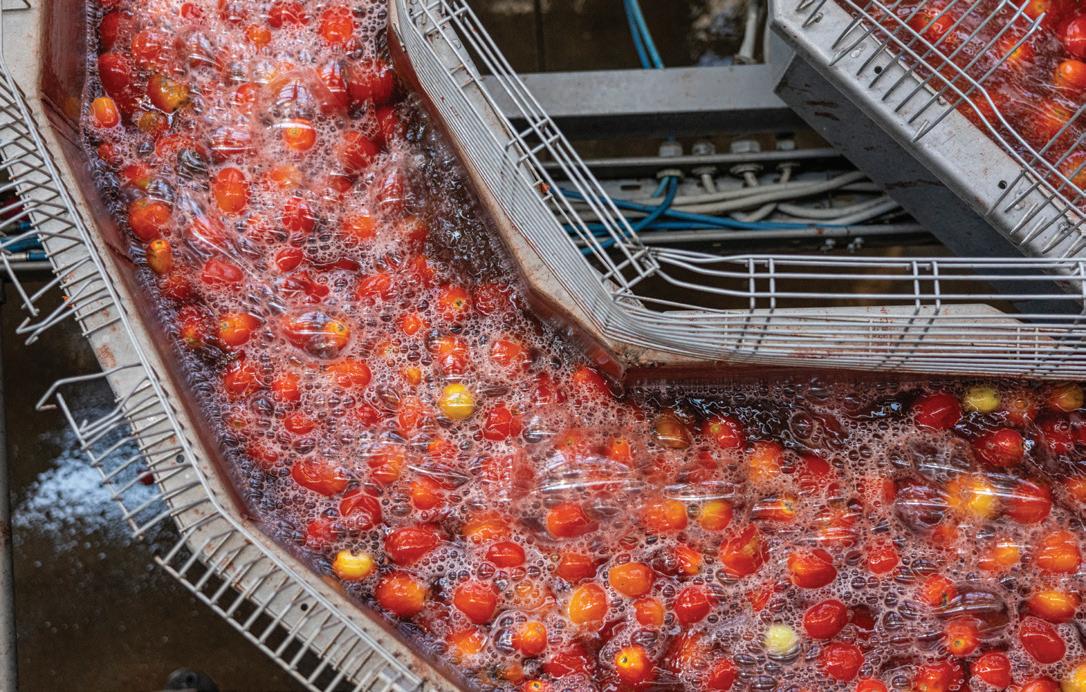
high-quality products at competitive prices, positioning itself as a strong alternative to commercial brands. With extensive expertise and a continuous focus on research and development, La Doria is synonymous with reliability and innovation in the food sector. With nine production plants located across Campania (Angri, Sarno, Fisciano, Salerno, and Pastorano), Emilia-Romagna (Parma and Faenza), Basilicata (Lavello) and Liguria (Chiusanico), La Doria has successfully combined Italian production tradition with a strong international presence. Exports account for over 80% of revenue, with a solid foothold in key markets such as the United Kingdom, Germany, the rest of Europe, Australia, and Japan. This global success is based on careful selection of raw materials and cutting-edge production processes that ensure high-quality standards.
La Doria is not only a successful company but also a responsible enterprise that operates according to well-defined ethical principles. Environmental sustainability, legality, transparency, and respect for human rights are fundamental values guiding every aspect of production and distribution. The Group is firmly committed to responsible energy resource management, waste recycling, and reducing the environmental impact of packaging. Moreover, La Doria promotes fair working conditions throughout the supply chain, collaborating closely with producers’ organizations to ensure respect for workers’ rights.

Since its founding, La Doria has maintained a strong connection with its local community by supporting educational initiatives for young people, urban regeneration projects, and social inclusion programs. The company contributes to the growth of the local economy by sourcing from a network of suppliers primarily located in Southern Italy, thereby further strengthening the national production fabric.
Thanks to its commitment to quality, sustainability, and innovation, La Doria remains a benchmark in the international food industry. With a continually evolving product range and a strategy focused on responsible growth, the Group establishes itself as an outstanding partner for large-scale distribution, bringing the best of Italian food tradition to millions of consumers worldwide.
commerciale.estero@gruppoladoria.it
Le Bontà continues to impress with groundbreaking innovations! Chiaverini Firenze is set to revolutionize its portfolio with an exciting new launch: jams in aluminum tubes. Just two years after the international debut of its iconic jam range, and after latest new Hazelnut Spread, the historic Florentine brand does not stop its innovation strategy.
Introducing a game-changing innovation: practical, sustainable, and innovative
The first jam in an aluminum tube! Unique in the market, this practical and easy-to-use format ensures maximum freshness and convenience. Sustainable and fully recyclable, it reflects our commitment to the environment. With this iconic new design, we’re redefining the way we enjoy jam, making it even more versatile and modern—perfect for every moment of the day!
Experience pure hazelnut bliss Chiaverini’s latest Hazelnut Cream is a true indulgence, crafted with 30% real hazelnuts and a time-honored recipe. Made with only the finest ingredients, it’s free from artificial flavors, colorings, preservatives, and palm oil. Its silky texture and rich, nutty flavor make it a must-have for any food lover’s pantry.
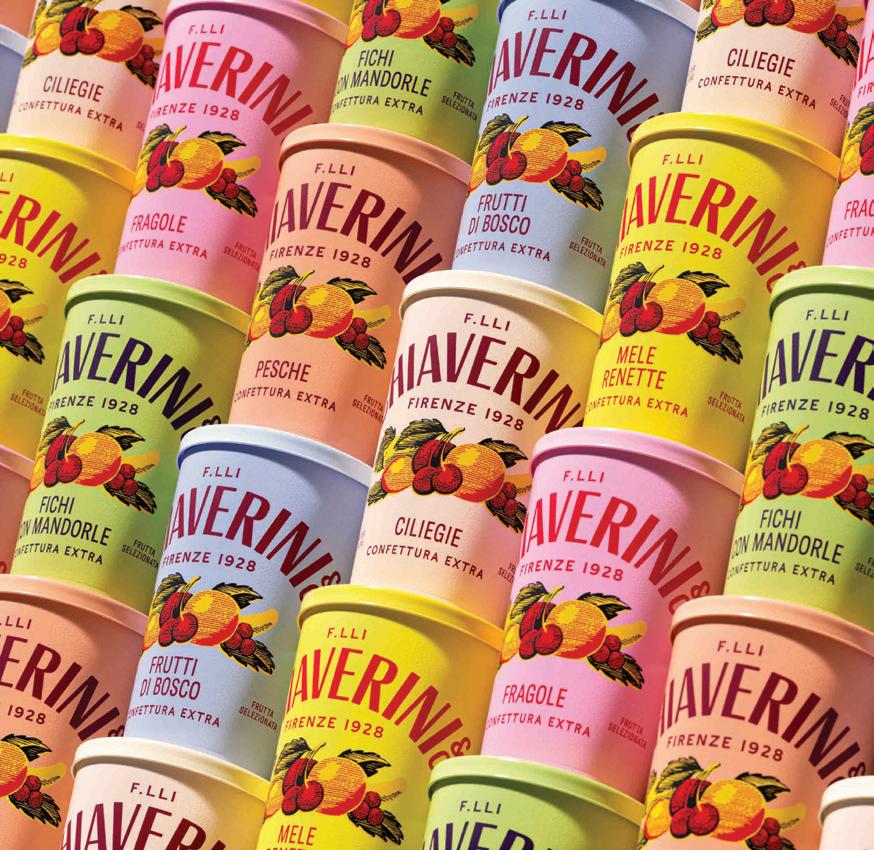
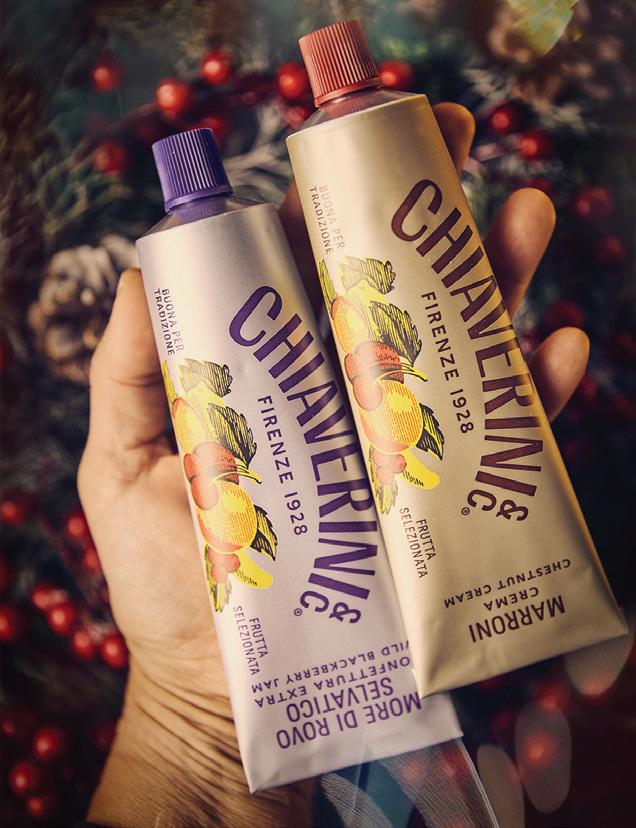
Chiaverini Jams have been defining Florentine culture since 1928. Originating from the passion of the Chiaverini Brothers, their commitment to quality echoes in every jar, making Chiaverini a staple in Florentine homes. The secret to Chiaverini’s success lies in simplicity: just fruit, sugar, and passion. Each jar is a testament to the art of slow cooking, melding flavors into perfection. Chiaverini's jams are history, Florence's essence in every jar. Each represents dedication, heritage, and resilience. Chiaverini isn't just a taste of Florence; it's a taste of history, a flavor transcending time.
The packaging of the Chiaverini “Pail” is not just a container; it represents an evolution from rustic wood to sleek aluminum. The new line, featuring distinct colors for each flavor, caters to collectors while upholding the brand’s essence and tradition.

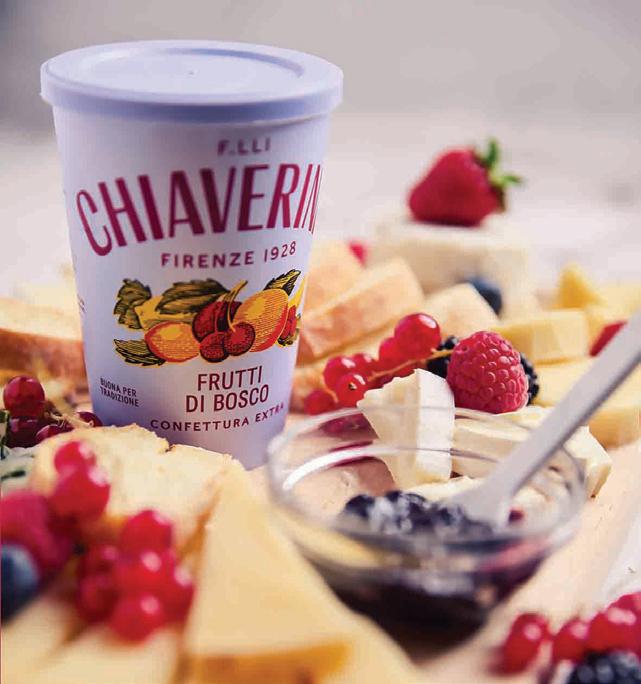
Chiaverini Jams is part of LeBontà Group, a Tuscan based company that brings together high-quality brands with a strong connotation of genuine and natural products. www.chiaverinifirenze.it/en www.lebonta.it/en


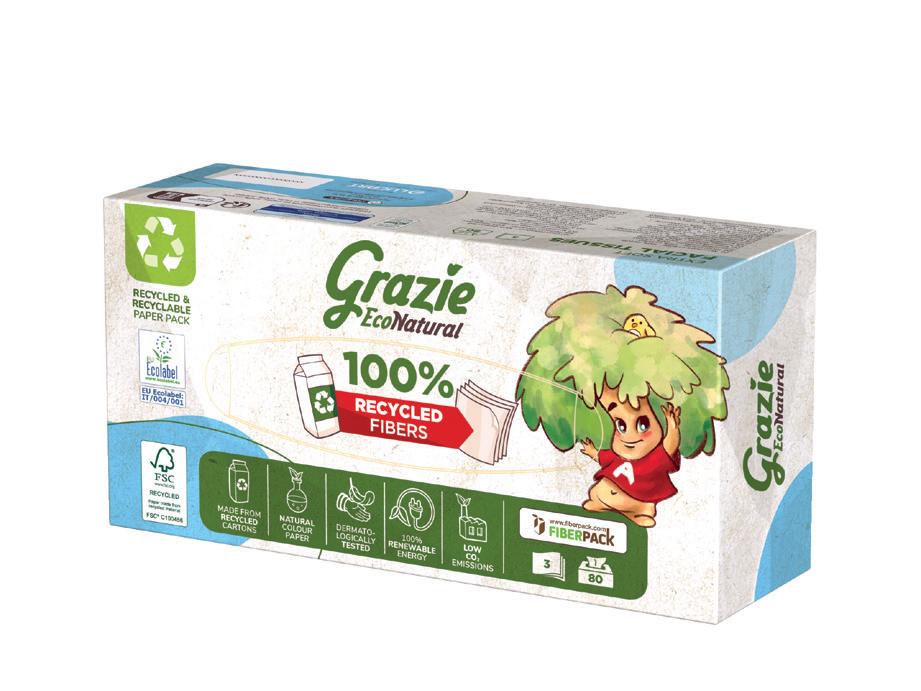







Lucart, a major European manufacturer of thin MG paper for flexible packaging, is a key player in the consumer goods and away-from-home markets as a producer and transformer of tissue and airlaid paper. Its attention to people, sustainable processes, and approach to innovation means it offers cutting-edge products that meet market challenges and customers’ needs
Fiberpack® is their flagship project in this field. It combines advanced technology with environmentally friendly processes, demonstrating that circular economy principles are fully applicable to the tissue sector.
In 2010, Lucart created a project called “EcoNatural, “ based on the idea of utilizing all the elements of beverage cartons according to circular economy principles. This type of packaging is widely used in the food industry to protect and preserve food, and it has a high natural cellulose fiber content, making it more ecological compared to other packaging materials of fossil origin. Due to its mixed composition of cellulose fibers (74%), aluminum (4%), and polyethylene (22%), this material is often not recovered at the end of its life or is only partially recovered.
The production process relies on innovative technology that separates cellulose fibers found in beverage cartons from polyethylene and aluminum through physical-mechanical action. With this technology, harmful substances that may affect people or the environment are avoided. They produce tissue products using the fibers obtained through this process and recover aluminum and polyethylene, converting them into a homogeneous material called Al.Pe.®, which other industries use to create various items.
The tons of Fiberpack® paper produced by Lucart from 2013 to 2023 have contributed to the recovery of over 10.7 billion beverage cartons, saving more than 4.6 million trees and preventing over 281,300 tons of CO2e from being emitted into the atmosphere.


In the first stage of the project, Lucart achieved the goal of creating two new raw materials to enhance recovery processes by modifying and streamlining the traditional paper recycling process in the paper mill: Fiberpack® and Al.Pe.®.
The second phase of the EcoNatural Project involved combining the two new, previously obtained raw materials into a single product that provides value to our customers: Fiberpack® paper and Al. Pe dispenser.
The third stage involved establishing Newpal S.p.A., a joint venture with CPR System dedicated to molding high-quality recycled pallets. In the Borgo a Mozzano plant, a new facility has been installed that can produce plastic granules from the homogeneous material composed of polyethylene and aluminum obtained from the recycling process of beverage cartons. The granule, referred to as GranPlast, serves as the raw material for Newpal S.p.A., which molds recycled plastic pallets using a plant specially designed for non-virgin plastics. This project will close the recycling loop for Tetra Pak® beverage cartons, creating significant environmental benefits and new business opportunities. Pallets made by Newpal are utilized by CPR System, a leader in Italy in the production, handling, and recycling of collapsible plastic packaging and pallets. CPR System recovers and reuses pallets that, at the end of their life and after multiple uses, are not sent to landfills but are reintegrated into the industrial process. This collaboration between Lucart and CPR System generates new environmental benefits and business opportunities
• It makes full use of production waste and creates shared value.
• It produces a reusable product in the circuit managed by CPR System, which at the end of its life is actually recycled to made new pallets.
• It offers the market a quality recycled plastic pallet at a highly competitive price.


Another important piece of news concerns the new range of products called Infinity, which was launched in 2023.
Infinity is the plant pot line resulting from the collaboration between Lucart and Pasquini & Bini, with the contribution of the Department of Agricultural, Food and Agro-Environmental Sciences of the University of Pisa. The pots are made from GranPlast material, which is the polyethylene and aluminum separated during the beverage carton process at the Borgo a Mozzano plant. In addition to finding further applications in various fields, it has been discovered that the characteristics of the material support plant growth by regulating root temperature and promoting phytostimulation. The absence of carbon black simplifies disposal at the end of cultivation.
Lucart is also the only brand in its target market that offers Airlaid products with exceptional absorbency and strength. The Airlaid technology utilizes long, highly resistant cellulose fibers that never come into contact with water during the
production process (dry paper) to remain super absorbent. Fibers treated with this process naturally form a “dam” structure, yielding outstanding results: they can absorb up to seven times their weight and, thanks to their exceptional resistance, can be reused up to twenty times, compared to one or two for competitors products.
Lucart is a company composed of individuals who opt for innovative and sustainable processes in the development, transformation, and manufacturing of paper products, collaborating responsibly for the future of both their business and the planet.
Lucart has always been at the forefront of studying innovative packaging that reduces the environmental impact of its products. After launching the world’s first line of toilet paper with Mater-Bi corn starch packaging in 1997, the company developed a series of products with completely plastic-free packaging in 2019.
www.lucartgroup.com
When it comes to in-store bakeries in modern retail outlets, a lack of innovation often hinders category performance and overlooks consumer expectations.
Today, international supermarket chains have a new partner to enhance their in-store bakery business: OROPAN S.P.A. from Altamura, Italy.
Founded by Vito Forte, one of Altamura’s most renowned bakers since 1956, Oropan S.p.A. embodies the rich tradition of Italian bread-making. As a child, Vito Forte collected hand-kneaded dough from local housewives to take to the community oven for baking. This early experience laid the foundation for his mastery of traditional bread-making techniques, utilizing durum wheat semolina, mother yeast (lievito madre), and a slow natural raising process. The result is a unique range of breads and bakery products, characterized by their distinctive crispy crust and golden-yellow texture, naturally containing protein and antioxidants.

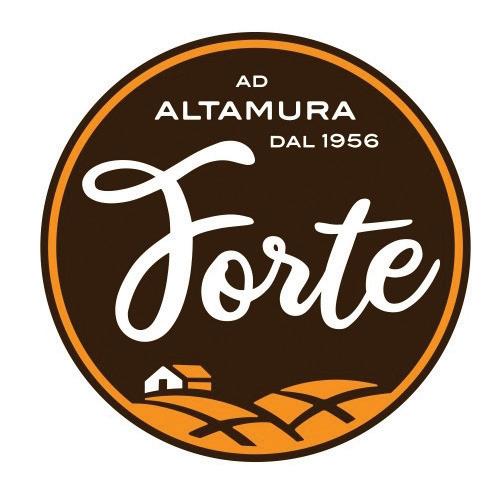
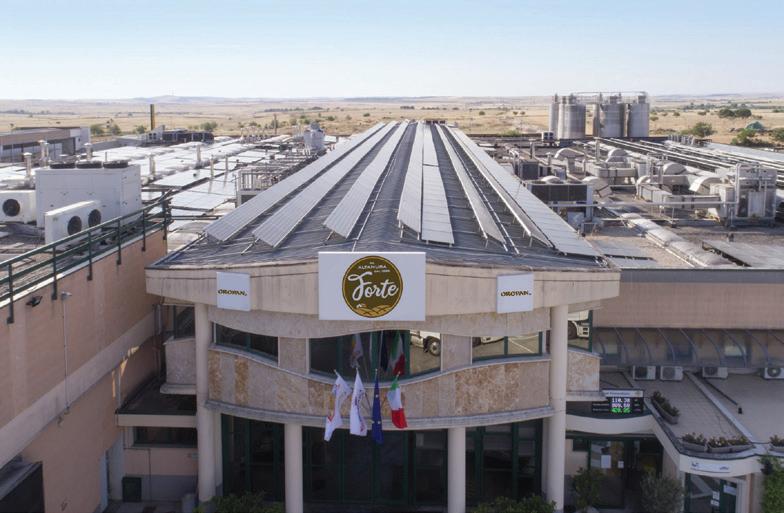
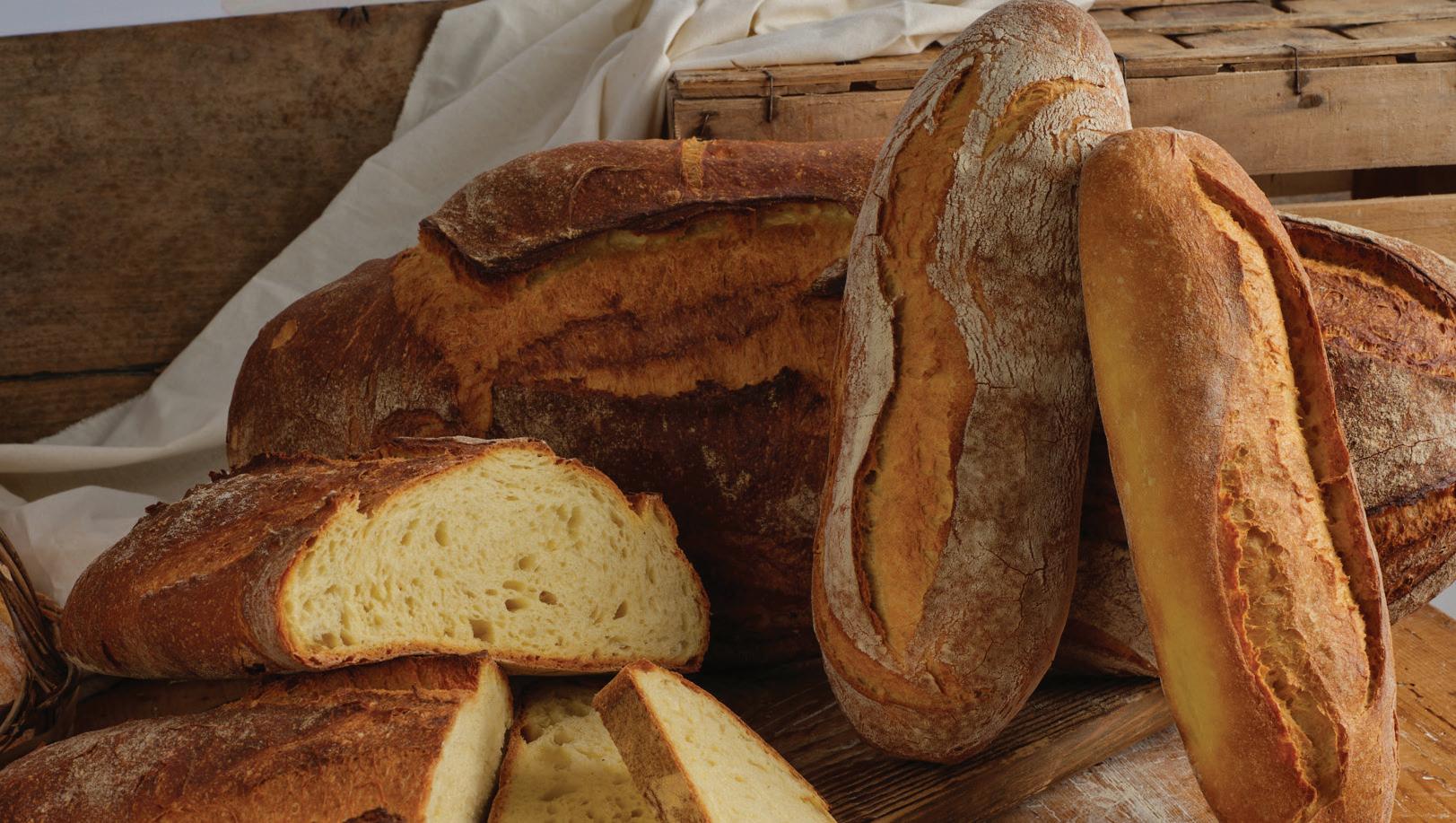
Today, Oropan S.p.A. stands as one of Italy's most respected bakery companies. The firm successfully merges traditional production methods with innovative technologies to create a diverse range of products, including bread, focaccia, friselle, and bread rolls. With significant production capabilities, Oropan S.p.A. is the ideal partner for both national and international retailers. Their products are distributed daily across 2,400 retail stores in Italy and in 25 international markets (both EU and non-EU). A hallmark of the company is its robust quality management system, certified by esteemed organizations such as BRCGS (AA+), IFS (Higher Level), and ISO 9001:2015.
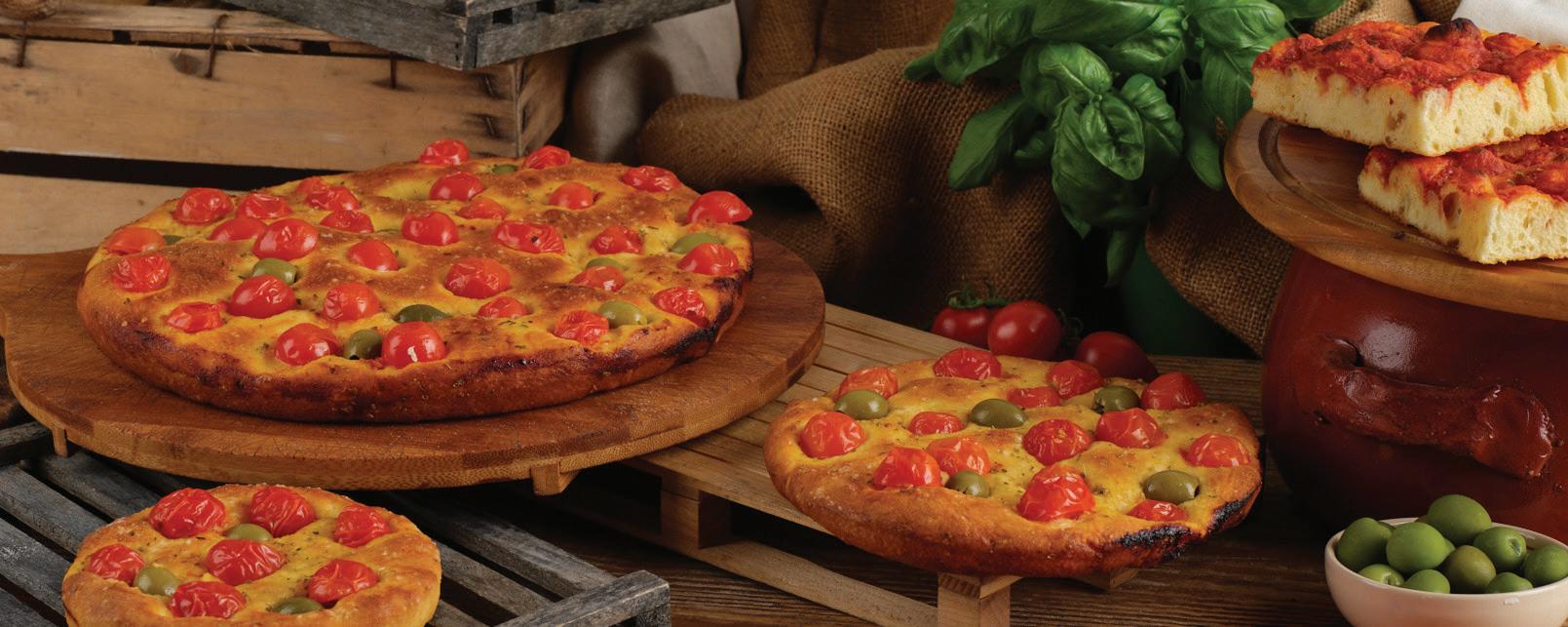
OROPAN S.p.A. places sustainability at the core of its operations, fully embracing ESG principles to foster a better future for the environment, its employees, local communities, and future generations. The company’s steadfast commitment to social and environmental responsibility is evident in its numerous voluntary certifications, including ISO 14001:2015 (Environmental Management System), ISO 45001:2018 (Occupational Health and Safety Management Systems), ISO 14046:2014 (Water footprint), and ISO 14064-1:2019 (Carbon footprint). Additionally, Oropan S.p.A. has led innovation in the Italian market by introducing the first bread made from a sustainable and certified supply chain under ISCC Plus.
Looking ahead, OROPAN S.p.A. will showcase its offerings at PLMA in Amsterdam and ANUGA in Cologne in 2025.
gourmetbreads@oropan.it







• THE LEADING B2B BEAUTY EVENT IN THE AMERICAS, DEDICATED TO ALL SECTORS OF THE INDUSTRY













• LAS VEGAS MANDALAY BAY CONVENTION CENTER

• JULY 15 – 17, 2025




• COSMOPROFNORTHAMERICA.COM
• REGISTER NOW AND SAVE UP TO 30% WITH EARLY BIRD SAVINGS!















THE ONLY B2B BEAUTY EVENT FOR THE ENTIRE SUPPLY CHAIN IN THE AMERICAS: INGREDIENTS & RAW MATERIALS, PRIVATE LABEL & CONTRACT MANUFACTURING, MACHINERY, PACKAGING

Valsa Group, a leading manufacturer of frozen, chilled, and ambient pizza, pinsa, focaccia, and snacks, identifies its primary goal as promoting the true Italian food lifestyle across the globe. The headquarters is located in Valsamoggia, in the very heart of Italy. This is where the history of the Group began; nevertheless, our roots extend from North to South, through our 10 plants, following a purely Italian entrepreneurial path.
Our daily commitment can be summed up as follows: CULTURE. EXCELLENCE. INNOVATION.
Valsa Group launches a new range of deep-fried pizzas and snacks. Introducing the surprising Pan Frit, a soft and melty delight in every bite: the most delightful Italian fried dough. Light and fragrant, it offers a flavorful alternative to bread itself, making it the perfect match for both sweet and savory options. Stuff it, dip it, share it: Pan Frit is the irresistible treat you won’t want to give up.
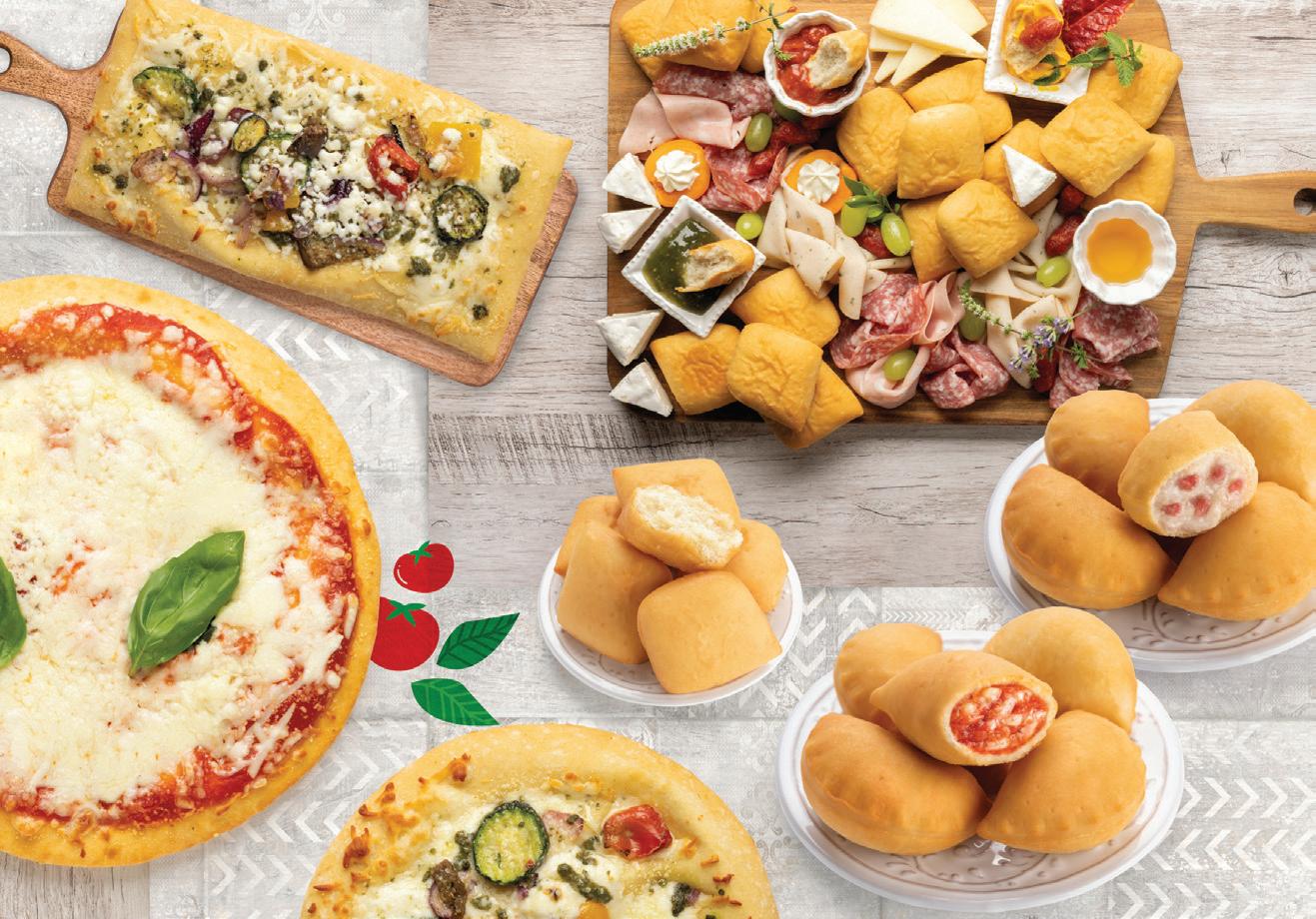
The amazing mini panzerotti are delightful treats from the heart of Apulia, blending the authenticity of Mediterranean cuisine with modern convenience. A flavorful filling in numerous variations is wrapped in thin, golden dough, representing one of the most traditional Italian recipes.
And…what if pizza could be taken to the next level? Deep-fried pizza, a voyage through uncharted local Italian traditions: a mouthful of tasty, delicious nuances; it is the perfect product to be shared or enjoyed alone. The most flavorful dough you’ve ever tasted in a pizza.

A deep-fried (R)evolution, showcasing the exceptional quality found exclusively within Valsa Group.
The Group’s strategy strength is the combination of traditional manufacturing processes and a greater focus on consumer convenience while maintaining the highest quality standards. In the contemporary market, convenience supported by premium quality is essential to creating value in the supply chain.
Valsa Group is a reputable and recognized business partner in 50 countries worldwide. This success is due to its focus on sustainability, production capacity, organizational integration, and innovative convenience, alongside a strong commitment to transparency, waste reduction, and the use of green energy.
Through the brands Valpizza, La Pizza+1, Forno Ludovico, Megic Pizza, Ghiottelli, Il Borgo, and Tuscanya Bakery, Valsa Group is a unique, largescale, and highly qualified partner able to supply a wide range of items in each category, from frozen to deli.
info@valsagroup.it
TUTTOFOOD: Hall 5 Stand E05

Dozens of distribution chains and hundreds of private label product manufacturers in Europe and elsewhere have already chosen the V-Label brand to identify products suitable for vegetarians and vegans. The V-Label brand’s unique characteristics make it the perfect ally and partner for private label products, retailers and large-scale distributors.
First of all, the V-Label brand is registered in over 70 countries around the world and is distributed worldwide, allowing international distributors and producers to use a single, distinct vegetarian and vegan label independent of where their products are manufactured or distributed. Despite its widespread use, the V-Label brand continues to maintain the same criteria and testing methods for product designation, and the uniform nature of this process allows for it to be implemented throughout the world without any variation.
The V-Label brand guidelines were established by major European Vegetarian and Vegan Associations in order to provide assurance and guarantee safety for customers and consumers. Checks are performed with the utmost care to ensure quality and compliance with the standards of the V-Label brand, which is synonymous with reliability and safety for the end customer.

For this reason, self-declarations are not accepted: individual ingredients and manufacturing procedures are inspected in order to be able to stand behind the vegetarian or vegan designation appearing on the labels of the products bearing the brand.
And, while the inspections are indeed strict in order to ensure compliance with quality standards, our product assistance is tailored to the customer. We know how complex distribution can be and thus our goal is to provide the utmost flexibility to better assist manufacturers and distributors, starting from being on the ground locally to break down language barriers and issues arising from working across different time zones.
We always have expert personnel capable of handling all the technical aspects of product verification and facilitating the necessary procedures.
To make it easier for consumers purchasing the products, the V-Label brand comes in three different categories: vegetarian, vegan and raw vegan. This allows distributors and manufacturers to use the same brand to promote different qualities of the products being offered to the public.
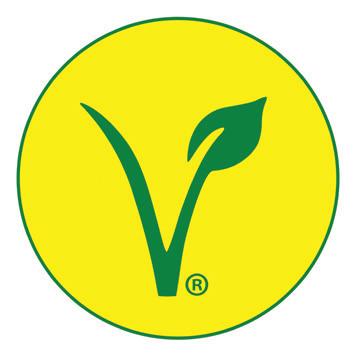
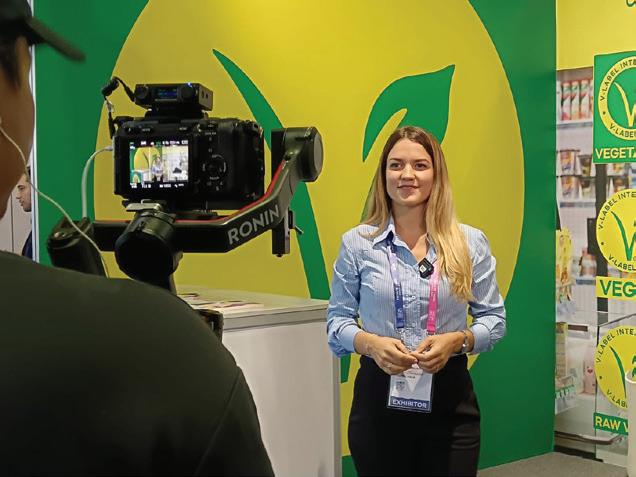
What began back in the 1970s as an institutional symbol of the Italian Vegetarian Association has grown to become the most recognized vegetarian and vegan symbol in the world: the history of the brand is itself an assurance of excellence in the vegetarian and vegan industry.
Finding a sure way to showcase products and be selected by consumers is a must nowadays. What really makes the difference is what feature is chosen to promote: quality, sensitivity towards sustainability issues, safety, and transparency are among the most important.
That’s why today we are the first choice of thousands of customers: this is what the V-Label conveys every day.
www.vlabel.org
In 1948, in Yongtai Village, Shanghai county, China, an entrepreneur started a small, private, manufacturing company with a goal to provide laundry soap to local residents in postwar China. This was the start of what would be later known as “Shanghai Bái Māo” by locals, or Shanghai Whitecat, he embarked on a journey of necessity, groundbreaking innovation, and a steadfast commitment to safeguarding the healthy lives of families. Motivated by necessity after the end of World War II, Shanghai Whitecat worked diligently to provide much needed laundry cleaning products that surpassed traditional soap, made from soap bean and “Yizi” (made from pig pancreas and plant ash), for more effective cleanliness and well-being to local families.
In 1959, Shanghai Whitecat achieved its first of many mmilestones by introducing the first domestically produced package of synthetic laundry detergent powder “Gong nong” in mainland China. Since then, Whitecat has achieved many milestones.
• 1963: 1st autonomous washing powder paper bag packaging machine
• 1981: 1st domestically developed and produced pack of Super Concentrated Laundry Powder
• 1987: Whitecat brand and our Jaimei brand Laundry Powder awarded the “Shanghai Famous Brand” certificate
• 1995: Whitecat Laundry Powder was awarded the “Golden Bridge Award” for National Best selling Domestic Product for 4 consecutive years.
• 2004: Whitecat liquid detergent was chosen as “China Famous Brand”
• 2018: Whitecat Lemon Black Tea Dishwashing liquid won the “2017 China Biggest Award of Quality Consumer – Quality Gold Award”
• 2018: Shanghai Hutchison Whitecat Co., Ltd., was awarded “China’s Top 100 Daily Chemicals”
As Shanghai Whitecat celebrates its longevity, our narrative transcends labels and brands. It’s a story of enduring innovation, necessity, and lives touched. Whitecat is humbled by the trust of millions of families who rely on us daily to safeguard their healthy lives.
Trust built over many decades of hard-work and investment in research and development.
• More than 100 national patents
• Millions of dollars spent every year in R&D
• Over 50 research and development personnel (> 50% with Master’s or doctoral degrees)
Our technology center is the only national standard laboratory in the light chemicals industry.
Investments in latest scientific equipment such as gas chromatography/mass spectrometry
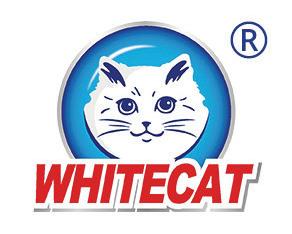
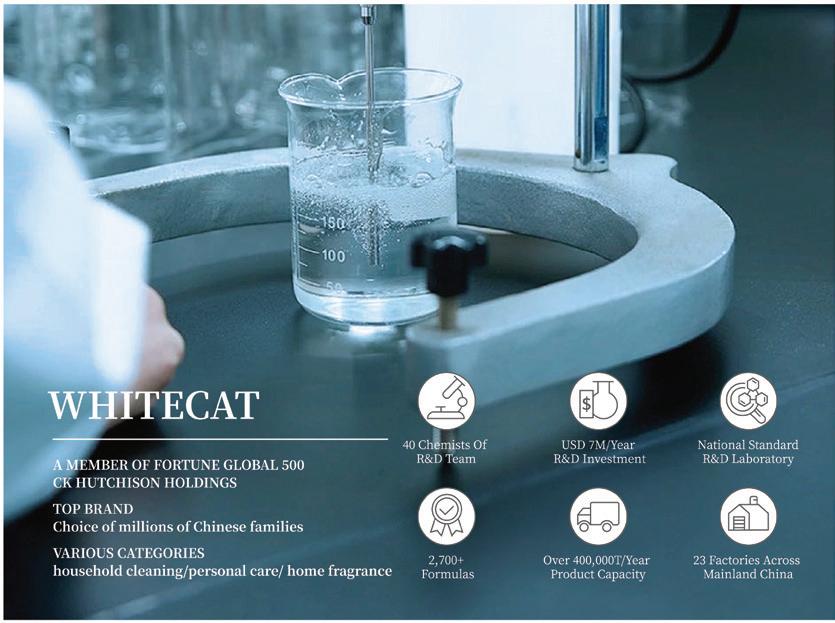
(GC/MS), Fourier infrared spectrometer and other advanced international standard analysis and testing instruments ensure we keep our commitment to delivering highquality, cost-effective Home Care and Personal Care products to safeguard the healthy lives of families into a better tomorrow.
Whitecat’s dynamic culture of innovation, born out of necessity in 1948, is now shifting to Sustainability, safeguarding healthy families better for all, including our planet.
We are very excited to launch our sustainable, nature inspired, line of products for our private label naturebased, sustainable Home Care and Personal Care products that your customers will simply Love!
• Concentrated cleaning pods/ sheets/tablets
• Lactic acid-based cleaning products
• Soda-based cleaning products And more innovative products to come.
Join us in this exhilarating journey towards a greener, more sustainable tomorrow with Whitecat!
www.whitecatusa.com
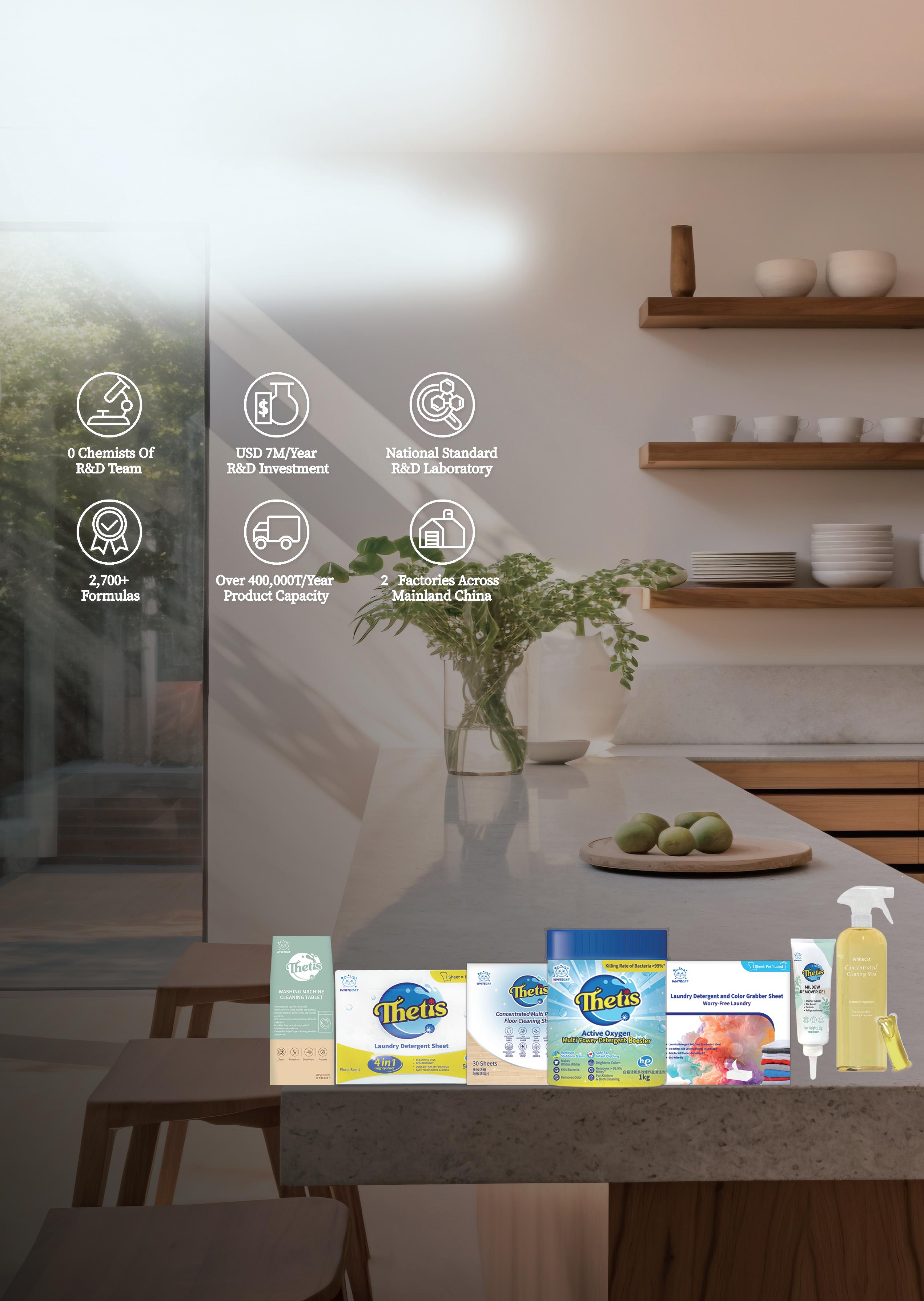




In the dynamic landscape of the food industry, Winland Foods has emerged as a beacon of quality, innovation, and sustainability. Founded by passionate food enthusiasts with extensive industry experience and backed by Investindustrial, Winland Foods is dedicated to redefining meal preparation for consumers worldwide.
Specializing in a wide array of products, Winland Foods offers pasta, sauces, syrups, dressings, jams, jellies, pie fillings, pita chips, dry dinners and baking ingredients. This extensive range caters to both beloved consumer brands and bespoke private label solutions, serving retail markets and foodservice channels alike.
At the heart of Winland Foods lies a steadfast commitment to excellence. Their mission is to win the minds of customers, the hearts of consumers, the respect of suppliers, and the
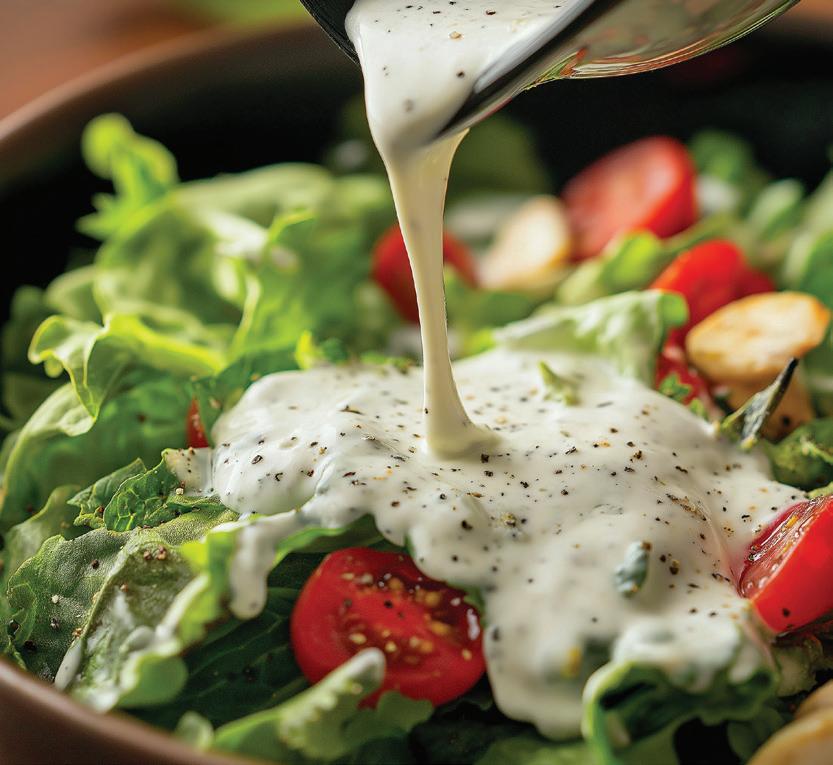
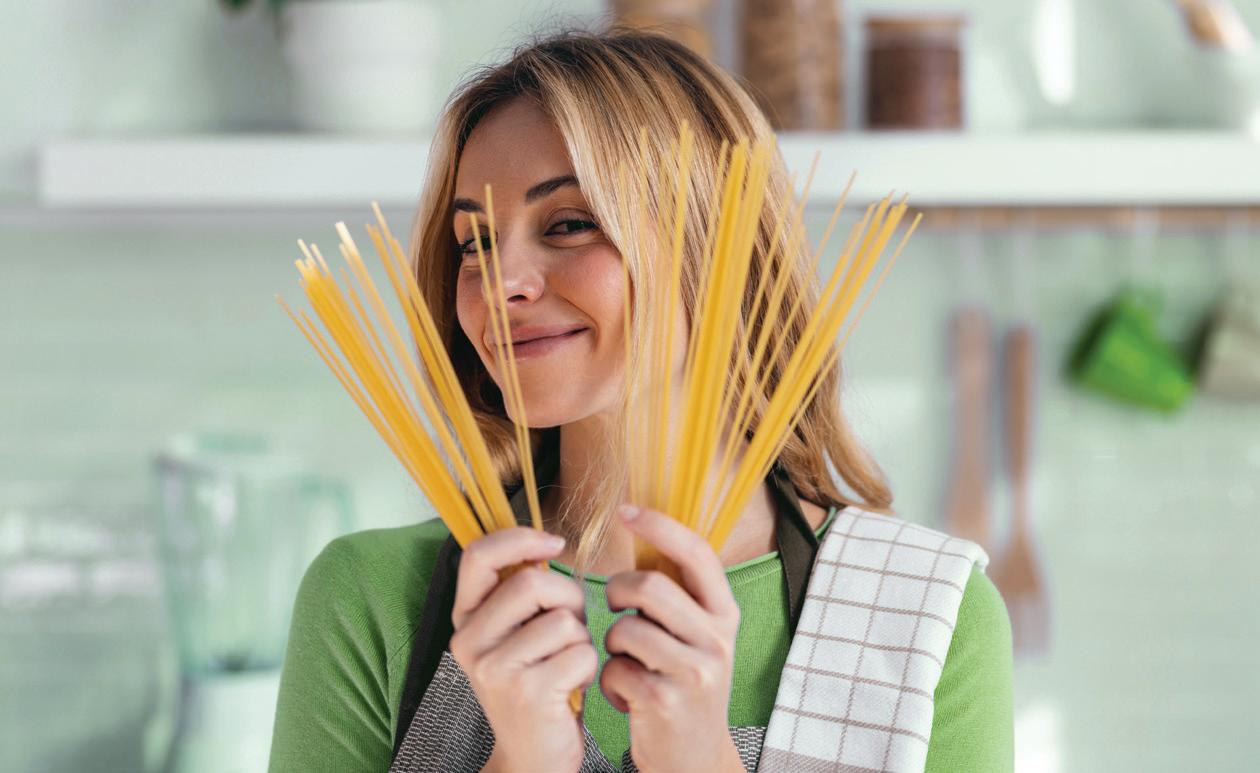
loyalty of employees. This mission is underpinned by core values of quality, integrity, respect, and collaboration, ensuring that every product meets and exceeds consumer expectations.
With facilities across the United States, Canada, and Italy, Winland Foods ensures efficient and sustainable manufacturing processes. Their modern facilities are equipped with energyefficient technologies designed to reduce energy consumption, conserve water, and minimize food waste. Such initiatives reflect their dedication to environmental stewardship and operational efficiency.
The Research, Development, and Implementation team at Winland Foods is pivotal in driving culinary innovation. From conceptualization to commercialization, the team employs a rigorous experimental design approach, ensuring that new products resonate with consumers while maintaining cost-effectiveness. Complementing this is a robust Quality Management System that oversees every facet of production, ensuring that products adhere to the highest safety and quality standards.
Winland Foods recognizes its role in fostering a sustainable future. Winland Foods is committed to responsible ingredient sourcing, waste reduction, and minimizing environmental impact.
Collaborations with suppliers and partners are integral to these efforts, ensuring that sustainability and social responsibility are woven into the fabric of their operations.
CEO Eric Beringause encapsulates the company's ethos: "We believe that everyone deserves access to delicious, high-quality, and nutritious food that doesn't break the bank." This sentiment reflects Winland Foods' dedication to delivering exceptional value while upholding principles of integrity, respect, and collaboration.
In essence, Winland Foods stands as a testament to what can be achieved when passion, expertise, and a commitment to excellence converge. As the company looks to the future, it remains poised to set new benchmarks in the food industry, ensuring that quality, innovation, and sustainability remain at the forefront of its mission.
Kevin Kollock Chief
Commercial Officer
Kevin.Kollock@winlandfoods.com
www.winlandfoods.com

Certified Origins was born in 2006 thanks to the union of two Tuscan cooperatives of farmers and an organization specializing in international sales and distribution to export and provide fresh and authentic Extra Virgin Olive Oil to families everywhere in the world.
Today, we remain cooperative-owned and continually expand our portfolio by directly sourcing from farmers and other cooperatives in the Mediterranean region. The confidence and trust built over decades in the industry allow us to guarantee the quality of our products and give us access to the scale necessary to work with retail organizations.
FOR MORE INFORMATION:
Giovanni Quaratesi, Head of Corporate Global Affairs giovanni@certifiedorigins.com
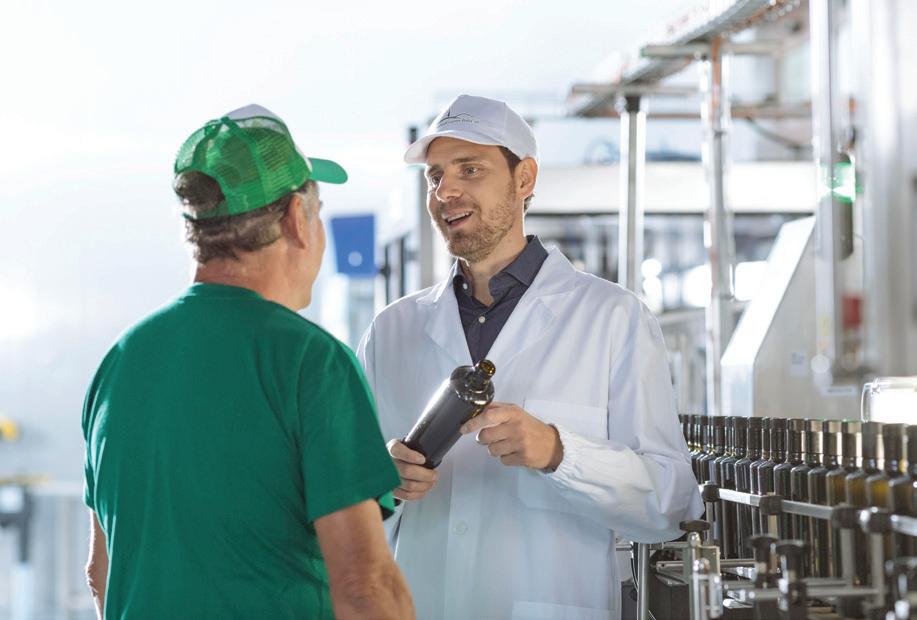
www.certifiedorigins.com
The CHT Group is a medium-sized global player for specialty chemicals and active worldwide in development, production and sales. CHT Germany GmbH in Tübingen is the headquarters of the group of companies which focuses on sustainable chemical products and process solutions. TEXTILE SOLUTIONS of CHT improve the quality, functionality as well as look and purity of textiles and optimize their manufacturing processes.

In the fields of silicones, building materials, paints, coatings, leather, release agents, paper, agrochemicals, mining as well as cleaning and care products innovative products and process solutions are provided by INDUSTRY SOLUTIONS.
By combining the strengths of the complete group further innovative products, applications or processes are continually developed and vast technical support is offered within the SCIENCE & SERVICE SOLUTIONS. Highly qualified specialists work in state-of-the art laboratories for development, analytics and application technique in order to work out ideas and solutions that meet the latest requirements.
The CHT Group with its own production and sales locations is represented by 27 companies worldwide. In the financial year 2024, the CHT Group generated a group turnover of 614 million Euro with approx. 2,500 employees.

Global Tissue Group offers a complete line of paper products for every customer need. A versatile selection of household paper products for every price point and use case, designed to meet the demands of all customers and market segments. From value-tier to ultra-premium, we provide quality, consistency and customization you can trust.
Comprehensive services to elevate your household paper programs. Global Tissue Group offers a range of services designed to meet the unique needs of retailers, wholesalers, and national brands. When you work with Global Tissue, you gain a trusted partner committed to delivering quality, exceptional service, and innovative products to support your growing household paper needs.


www.globaltissuegroup.com
Headquartered in Angri (Salerno, Italy), La Doria is a prominent Italian company in the vegetable canning industry, specializing in tomato derivatives, ready-made sauces, canned pulses, juices, and fruit-based beverages. Today, La Doria stands as Europe's leading producer of canned pulses, peeled tomatoes, and tomato pulp in the retail sector, as well as one of Italy's top producers of fruit juices and beverages. Additionally, it holds the position of Europe's leading private-label ready-made sauce producer.
Following a recent acquisition, La Doria has expanded its product portfolio to include pasta, further enhancing its comprehensive range of offerings. As a trusted supplier to major retail and discount chains worldwide, the company is primarily focused on private-label production, manufacturing products for leading retailers. Remarkably, over 97% of the Group’s revenue is derived from this segment. This strategic specialization reflects La Doria’s strong commitment to excelling in large-scale retail and organized distribution, delivering high-quality products at highly competitive prices as an alternative to the brand.
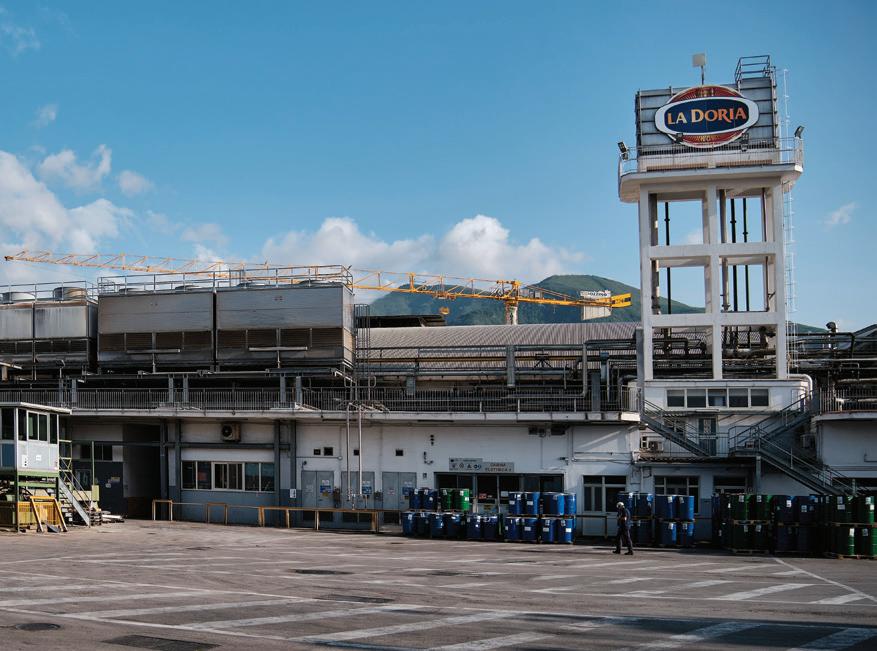
www.gruppoladoria.it/en
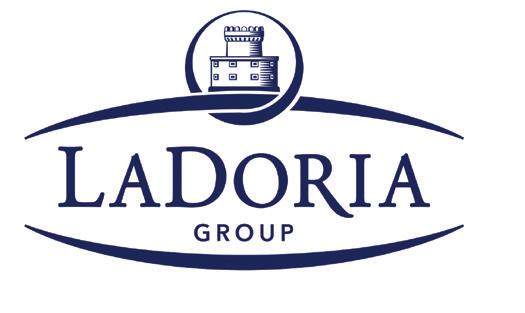
Le Bontà was founded in 1994 in Prato, in the Tuscan hinterland, with the aim of creating sauces, meat sauces and patès that express the best Tuscan gastronomic tradition.
In more than 20 years of activity, the Le Bontà trademark has created a production system able to respond to the needs of private labels, by offering recognized product quality, the reliability of careful and meticulous management, and flexibility that facilitates the purchasing brand.
The GDOs select numerous recipes each day to put on the tables of Italian and European consumers. And, each day, as a provider of private labels, we ensure high-level consulting with the aim of shelf success and success on the table.
Chiaverini Jams join the family of products from brands Nuova Terra: a broad selection of natural and organic cereals, seeds and soups; I Toscanacci: a line of high-quality sauces without preservatives; Bonvé: a line of vegan and organic sauces and Accademia Toscana: a range of sophisticated and very high-quality sauces for the Italian and foreign markets.
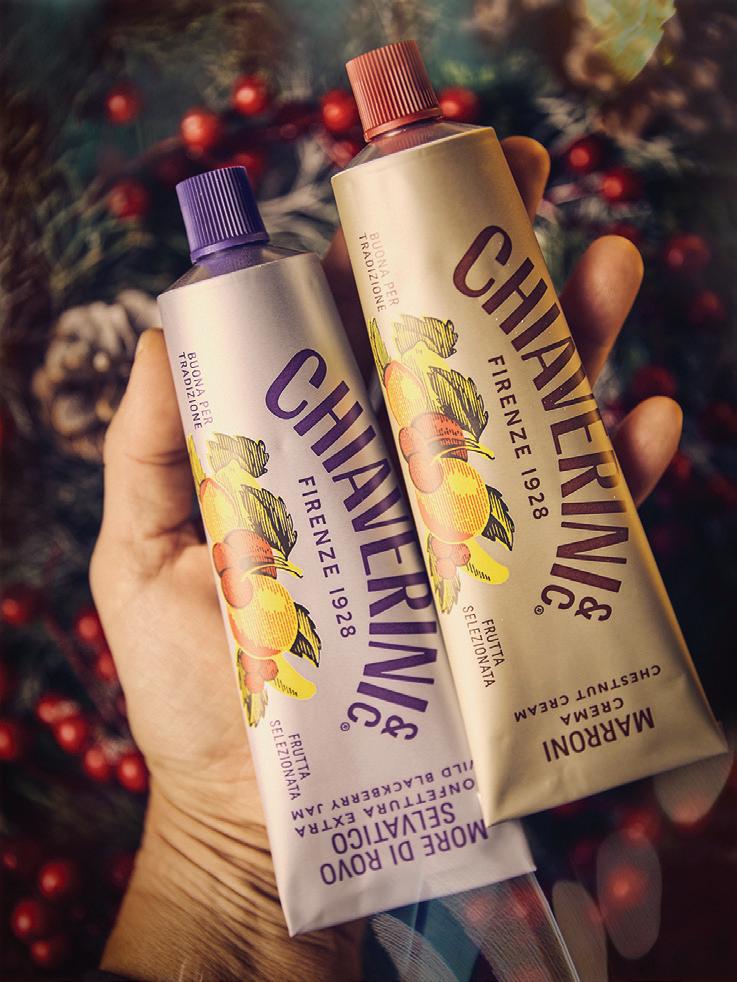
www.lebonta.it
www.chiaverinifirenze.it/en

Lucart, a major European manufacturer of thin MG paper for flexible packaging, is a key player in the consumer goods and away-from-home markets as a producer and transformer of tissue and airlaid paper. Its focus on people, sustainable processes, and innovation means it offers cutting-edge products that meet market challenges and customers’ needs.
Fiberpack® is their flagship project in this field, combining advanced technology with environmentally friendly processes. This demonstrates that circular economy principles are fully applicable to the tissue sector.
Lucart is also the only brand in its target market that offers Airlaid products with exceptional absorbency and strength performance. The Airlaid technology utilizes long, highly resistant cellulose fibers that never come in contact with water during the production process (dry paper), ensuring they remain super absorbent. Fibers treated with this process naturally form a “dam” structure, providing outstanding results: they can absorb up to 7 times their weight and, thanks to their exceptional resistance, can be reused up to 20 times, compared to 1 or 2 times for competitive products.

www.lucartgroup.com/en

A full-service strategy, creative and packaging artwork design agency built to meet the challenges and opportunities facing Private Label and National Brands today. Since 1990, MBD has been on a mission to produce stand out, award-winning packaging to our multichannel customers. We are a global agency that builds brand and differentiates our clients from the competition, which in return increases their ROI.
Our strategy begins by defining a clear brand voice with strong storytelling. What makes MBD different and unique is our tri-focus approach:
1. CREATE: Originality is the driving principle of our work. We bring brands to life through story-telling and visual flair. Creativity should be nurtured, encouraged to grow, and never compromised. From start-ups to international billion-dollar brands, our work helps to sell thousands of products and services globally.
2. MANAGE: Our detail driven design team take the voice and vision of the brand and adapt using our best-in-class approach to developing the packaging artwork. Unique and ownable graphics are key to portraying the quality across an entire range. While our workflow solutions tie it all together with centralization and automation.
3. ROLLOUT: MBD create more than 12,000 pieces of artwork every year with teams large enough to execute programs with thousands of SKUs, but nimble enough be brand guardians with a single voice.
We also pride ourselves with color managed artwork that is compliant and consistently on brand.
OROPAN S.p.A. is the category leader in producing durum wheat bread from Italy's Puglia region. Founded in 1956 by renowned baker Vito Forte, the company is the ideal partner for supermarket in-store bakeries, leveraging freshly baked products to enhance the customer experience.
Using traditional methods with durum wheat semolina, mother dough, and natural fermentation, OROPAN S.p.A. distributes its products daily to over 2,400 stores in Italy and 25 international markets. Certified with BRC (AA+), IFS (Higher), and ISO 9001 standards, the company also demonstrates a strong commitment to ESG sustainability initiatives, ensuring quality, tradition, and responsibility at every step (ISO 45001:2018 - Occupational Health and Safety Management Systems, ISO 14001:2015 Environmental Management System, and ISO 50001:2018Energy Management System)
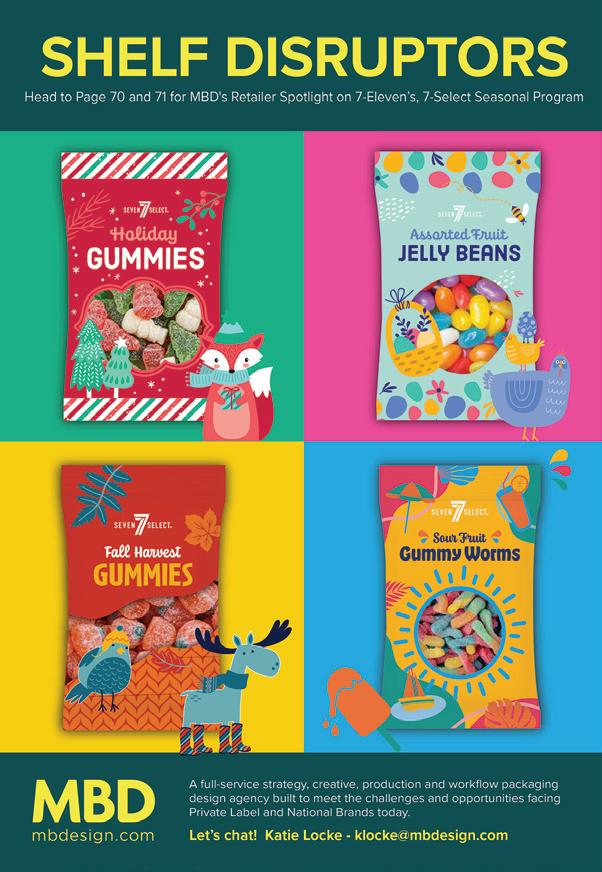
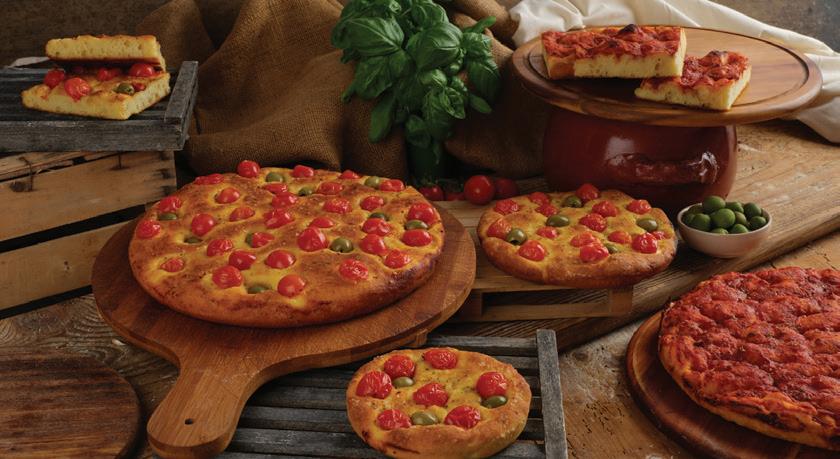


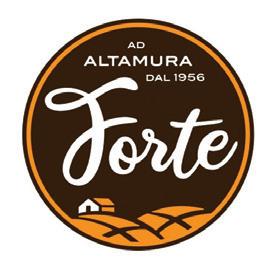
Seneca Foods ensures US farm fresh goodness through our 26 facilities located in prime American growing regions. A leading global provider of packaged fruits and vegetables, Seneca’s flexible packaging solutions meet evolving consumer needs: from traditional cans and frozen foods, to convenient pouches and plastic cups. Organic options also available.
At Seneca, we believe that everyone deserves year-round access to great-tasting food that’s also great for you. That’s why we’re bringing families and organizations all over the world real food that’s nutritious, affordable, and delicious.
By remaining committed to those we serve, we’re going to continue growing as the leader in the fruit and vegetable industry. At Seneca, we’re still doing things the way we always have- the right way.
Think globally, grow locally. We’re proud to say, “We feed the world.”
Valsa Group as leading manufacturer of chilled, frozen and ambient pizzas, focaccias, pinsas and snacks, identifies its primary goal in promoting the true Italian food lifestyle all over the world. The headquarters is located in Valsamoggia, in the very heart of Italy. This is where the history of the Group began, nevertheless our roots go from North to South, through our 10 plants: in a purely Italian entrepreneurial path.
Our daily commitment could be easily summed up: CULTURE . EXCELLENCE . INNOVATION. Valsa Group is the unique large-scale and highly qualified partner able to supply a wide range of items in each category, from frozen to deli.

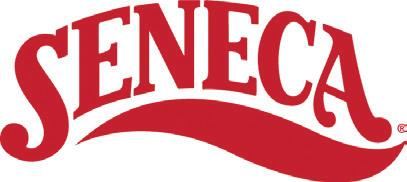
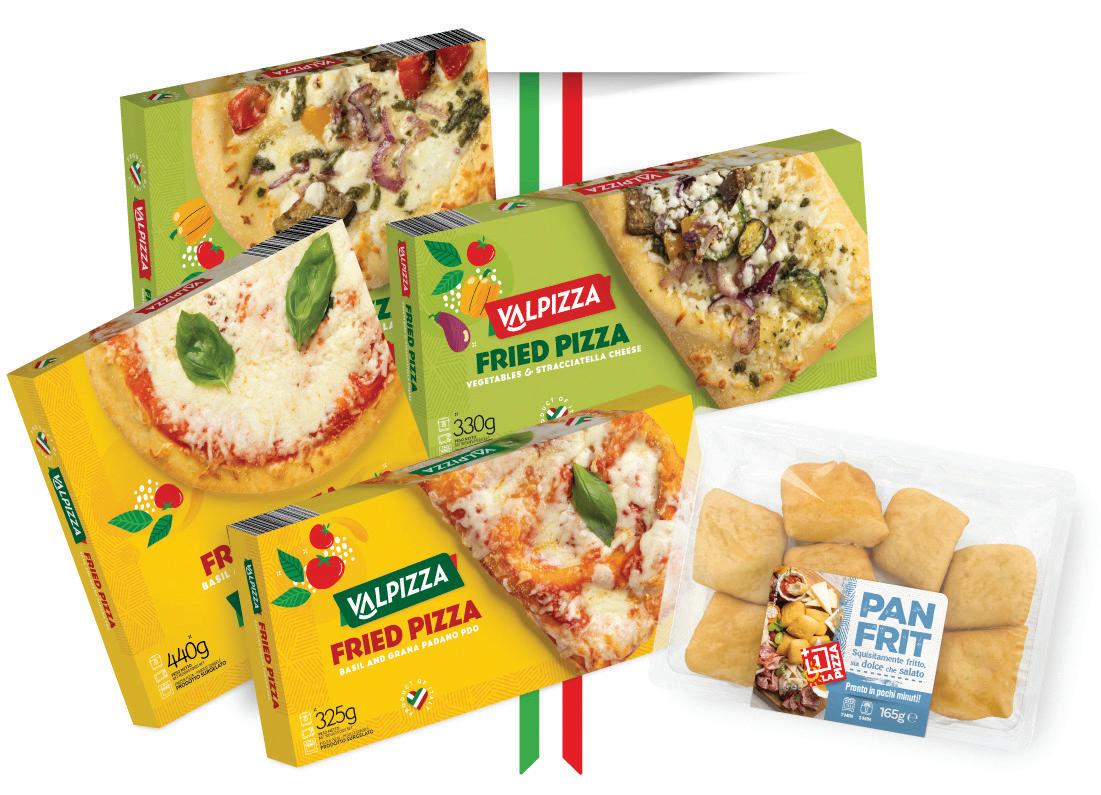

V Label Italia is the owner and the entity responsible for assigning the V-Label brand in Italy, China, the United States, the Republic of Korea and, beginning in 2020, the United Arab Emirates.
The V-Label brand was founded in 1979 as an institutional trademark of the Italian Vegetarian Association and has since that time been distinguished as the vegetarian and vegan brand par excellence around the world.
Registered in more than 70 countries around the world, it is currently the vegetarian and vegan brand name most recognized by consumers internationally.
Having become synonymous with transparency and assurance, it is presently the brand most used to identify products and services suitable for the vegetarian and vegan lifestyle. Whether applied to food, beverages, cosmetics, textiles and accessories, footwear, catering or publishing, the brand is a recognized name, valued both by manufacturers and by consumers in today’s international marketplace.
Despite its widespread use, the V-Label brand has maintained highquality standards due to its clear and transparent criteria being applied internationally by major vegetarian and vegan associations, who ensure that the standards are met.
The brand is divided into three distinct categories: vegetarian - veganraw vegan, allowing consumers to purchase with confidence, knowing that their selections are perfectly in line with their lifestyles and have been subjected to detailed inspections and quality controls by industry experts.
Shanghai Hutchison White Cat Co. Ltd. (abbreviated as "Shanghai White Cat" or “Whitecat”) is a foreign joint venture established by a wholly-owned subsidiary of CK Hutchison, a Global Fortune 500 company, with an annual revenue of US$ 500M.
Whitecat’s dynamic culture of innovation, born out of necessity in 1948, is now shifting to Sustainability, safeguarding healthy families better for all, including our planet.
White Cat has over 23 factories across China's mainland, own brand products and private label services available in China, Japan, Korea, Middle East, Southeast Asia, Americas and Europe. Our motto is “If you can think it, we can make it!”


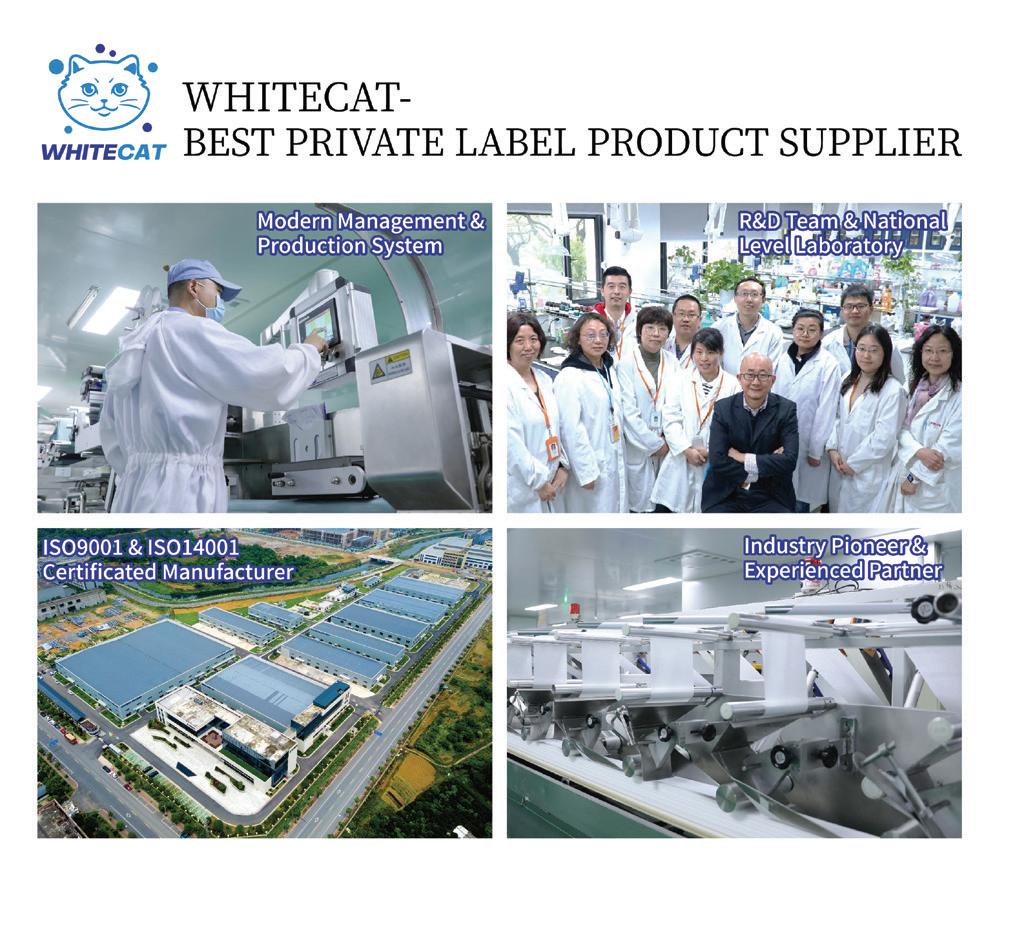
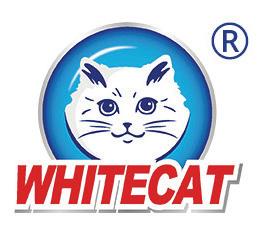
Specializing in a wide array of products, Winland Foods offers pasta, sauces, syrups, dressings, jams, jellies, pie fillings, pita chips, dry dinners and baking ingredients. Facilities across the United States, Canada, and Italy, ensure efficient and sustainable manufacturing processes. Their modern facilities are equipped with energy-efficient technologies designed to reduce energy consumption, conserve water, and minimize food waste. Such initiatives reflect their dedication to environmental stewardship and operational efficiency.
The Research, Development, and Implementation team at Winland Foods is pivotal in driving culinary innovation. From conceptualization to commercialization, the team employs a rigorous experimental design approach, ensuring that new products resonate with consumers while maintaining costeffectiveness. Complementing this is a robust Quality Management System that oversees every facet of production, ensuring that products adhere to the highest safety and quality standards.
Winland Foods recognizes its role in fostering a sustainable future. Winland Foods is committed to responsible ingredient sourcing, waste reduction, and minimizing environmental impact. Collaborations with suppliers and partners are integral to these efforts, ensuring that sustainability and social responsibility are woven into the fabric of their operations.
The inaugural national Store Brands Month closed out with a flurry of activities by both retailers and manufacturers giving a preview of what the annual event will become in the future.
For the first time ever, PLMA joined together retailers, manufacturers, and service providers to declare January as national Store Brands Month spotlighting the high quality, value and category assortment carried under a retailer’s own brand.
Social media, local television, podcasts, digital circulars, news releases, advertisements and trade and business press helped promote the B2B and D2C conversations across the country.
“All of this happened with a relatively short run up to the event,” said PLMA President, Peggy Davies. “We’re pleased with the level of nationwide participation and look forward to building on this momentum in 2026.”
Throughout the month, retailer and wholesaler posts from Aldi, Albertsons, Wakefern, Topco, AWG and others could be seen on LinkedIn, Facebook and Instagram, with Food City sponsoring a local television news segment with a Store Brands Month tie-in.
Manufacturers, suppliers, and brokers also embraced the event by promoting the event to their customers as well as numerous posts on LinkedIn and Instagram from Pacific Coast Producers, Lakeside Foods, Daymon/Advantage Solutions, Subco, and others.
Store Brands Month is set to be an annual event held every January with the goal of increasing shoppers’ trial and purchase of private label items.
“The time is right to bring greater visibility among consumers to our thriving industry,” said PLMA President Peggy Davies. “By coming together with our
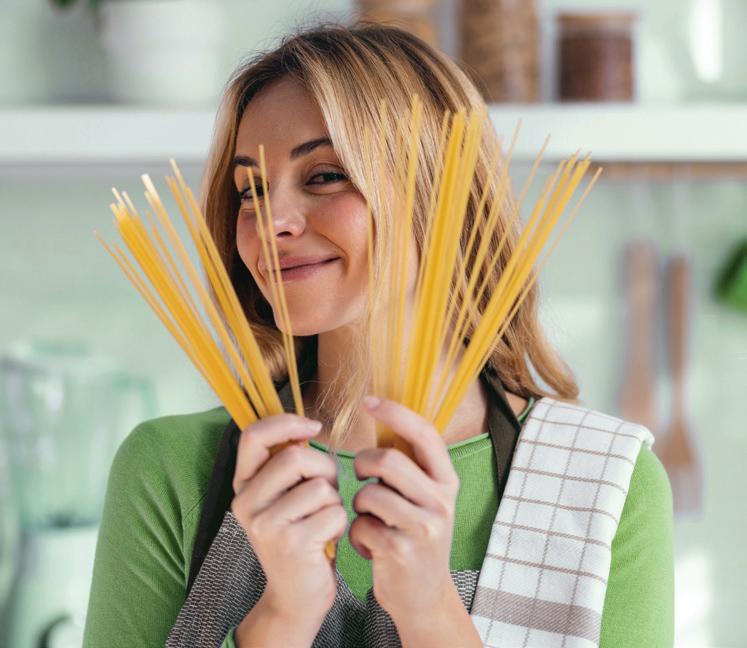
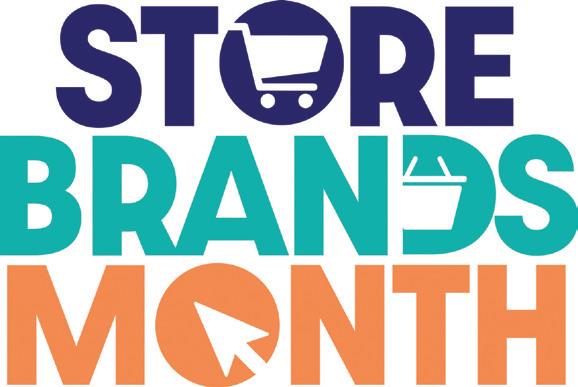
partners during a month-long campaign, we have an opportunity to further expand the presence and strength of the largest CPG brand in the store.”
The event will be rolled out in the wake of what is expected to be store brands' best year ever for sales and shares. During the first nine months of 2024, dollar sales grew by 2.9%, outpacing national brands, which were up 1%. In unit sales, store brands also outperformed their counterparts, increasing by 2.3% as brands declined 0.8%. For the period, store brands achieved all-time highs in both dollar (20.4%) and unit (22.8%) shares. PLMA projects sales for 2024 will surpass a quarter trillion dollars, a new record.
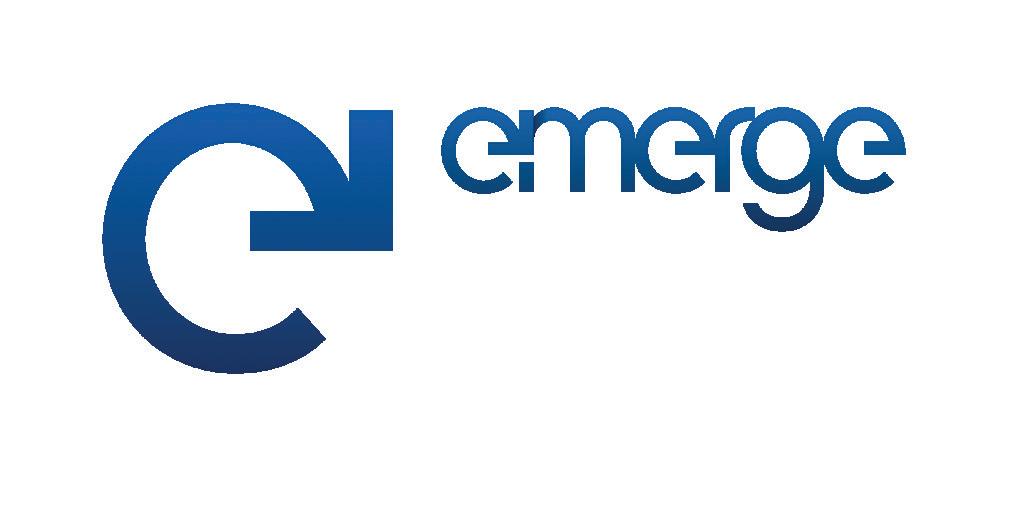
BY PERRY SEELERT
Insights around how they are thinking, where they want to lead, and ultimately how they want to differentiate their retail position versus others.
As retailers talk about their omnichannel ambitions, their grandest of goals is to have a totally seamless shopping experience. What this means is giving consumers the ability to buy when, where and how it is most convenient for them.
The reason why they want seamlessness is all in the numbers really. They know that shoppers who are engaged both digitally and physically spend more and tend to be more loyal. In fact, Kroger reports that “customers who shop both in-store and on-line spend three to four times more compared to instore-only shoppers”. Today, 72% of all grocery sales of the omnichannel shopper is digitally influenced (grocerydoppio Q3, 2024), but the real value of digitally engaged consumers is that overall, they spend three times as much, are more loyal, and can drive growth across alternative profit ventures.
Kroger has a diversified omnichannel strategy, one that is rooted in a huge Ocado and fulfillment investment, and innovative ways to deliver in the final mile.
The retailer Chief Executive Officer (CEO) has a twisted mind.
No, not twisted in a negative sense. Twisted with multiple strategic initiatives and changes that they and the industry must confront. It is a boiling pot of different things, each requiring its own priority and soft touch.
While these changes are becoming a lot more technologically driven, there is an air to politics that is also affecting the retail landscape. The CEO has to be the chief navigator to be effective, calculating the necessary investments along with the people and shopper strategies to get there, and of course, determine the speed of the pursuit.
What we will attempt to do here is give you a little insight into how many CEOs are thinking, and where they are placing their bets for the future. Own brands are an important facet to their overall thinking, but it is one of many things in the grand landscape of retail. The list of issues is not meant to be in order of priority. The intention is to inspire you and hopefully get you to think in broader terms about retailers’ future, what plagues them, and what the possibilities truly are.
While grocers, club stores and mass merchants alike are embracing an omnichannel approach, Kroger is showing an incredible level of adoption and trying to find the balance between physical and digital.
We have built a digital platform that offers a seamless experience with ZERO COMPROMISE, allowing customers to shift effortlessly between store, pick-up and delivery solutions.
RODNEY McMULLEN CEO,
Kroger

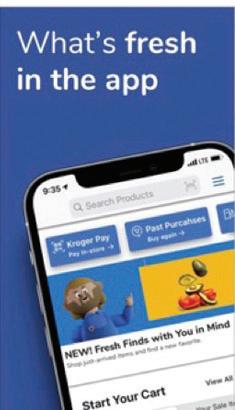
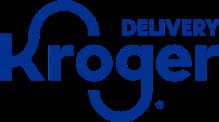
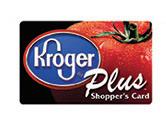
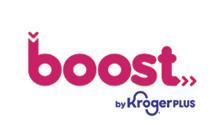
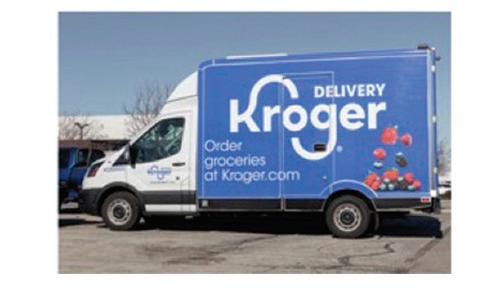
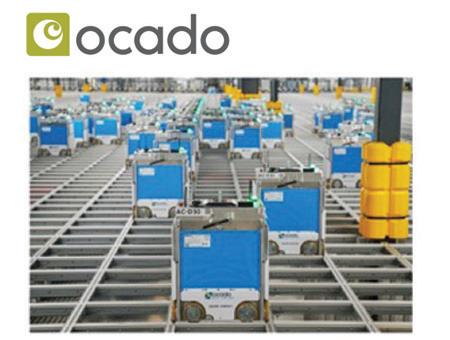
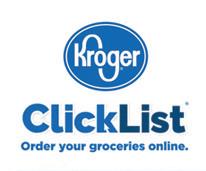
Their Boost by Kroger Plus subscription service, direct delivery through autonomous and drone delivery experiments, Clicklist pick-up, no contact-payment solutions and their mobile app are all working to deliver this seamlessness that McMullen speaks of. And this cross-integration of shopping is proven out so far in that 90% of delivery and pick-up customers also shop in-store.
Walmart is also into omnichanel full-throttle, with 370 million products on their site (talk about dot.com product density), and 59 million members paying $98/year for Walmart+. With a $73 million ecommerce business and a stated goal of getting “most of America” on memberships, what Doug McMillon, CEO, says is…..
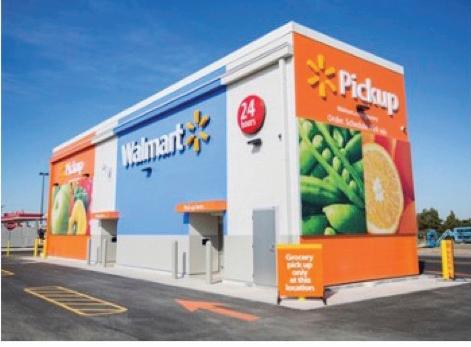

What happened along the way is, we realized that the magic is in the way that you put them together (the silos and channels) and truly creating omni-channel to save people time, not just money.
Doug McMillon CEO, Walmart
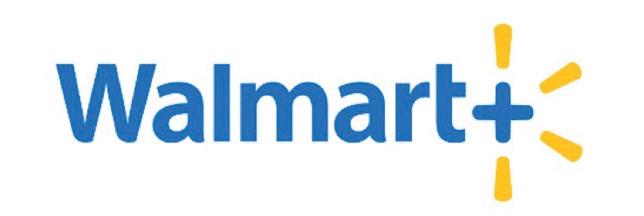

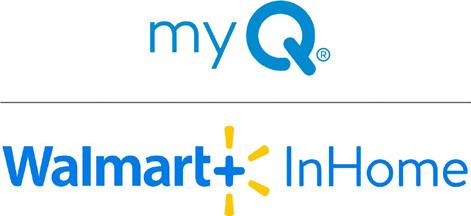
The proof is in the pudding with Walmart+ and unlimited delivery of over 160,000 products, integrated with other fuel, travel and RX benefits. Their delivery and click-and collect investments are significant, from 24 hour automated centers to MyQ in-garage delivery for Walmart+ customers.
The Clubs are also invested significantly in omnichannel, with perhaps BJ’s Wholesale putting the most energy and adoption around this initiative. They have made digital and omni a priority, which shows throughout their communication and results. They say about their digitally engaged members that they have “higher basket sizes, more trips per year and the sheer number of digital members rose more than 400% on a 3 year stacked basis”.
The implications for omnichannel are enormous and boil down to who can get a competitive advantage in seamless omnichannel first? At what cost, where are the media implications, the SEO implications and is there ultimately a ceiling for digital and/or delivery?
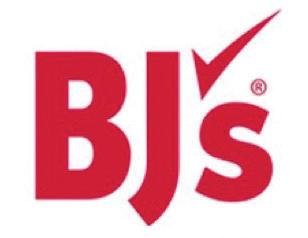
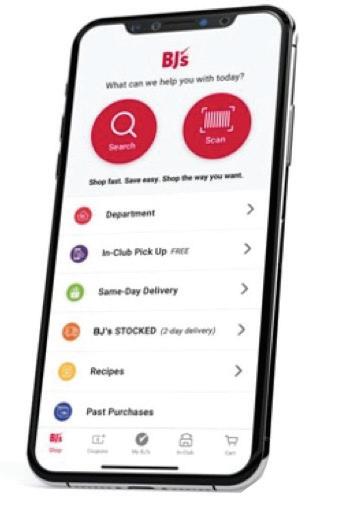
Shop Your Way
Where you buy
How you Pick up
When you Pay
When inflation hit a 40 year high in June 2022, the prices for food had increased 10.4% (vs YAG) and Fortune 500 CEOs were calling inflation “the 800 pound gorilla in the room”. For many consumers and retailers twoand-a-half years later, inflation is still a beast. And while the inflation rate has decreased, it is still at historically high levels, and shoppers begrudgingly know that prices are not coming down soon, if ever.
As CEOs look at inflation, there is also the potential impact of threatened (or real) tariffs. These fall into one of three categories strictly from a U.S. perspective (at least as we write this today):
• Tariffs assigned to certain countries like Canada, Mexico and China
• Tariffs that are targeting product/ industry vertical specific like steel and aluminum
• Tariffs that are “reciprocal” as they were just talked about this February with India.
The impacts of these potential tariffs are ominous, and even if they are negotiating tactics, the uncertainty forces CEOs to look at their supply chains. It also forces CEOs to look at what they can control. Of course, there will be all sorts of retailer/supplier political lobbying to curry favor with President Trump, but in the end, retailers will want to exercise control where they can to contain costs and ensure continuity. This includes initiatives like:
• Deploying technology, analytics and AI
• Resetting labor allocation and scheduling
• Robotics and automation
• Inventory managment and supply chain productivity
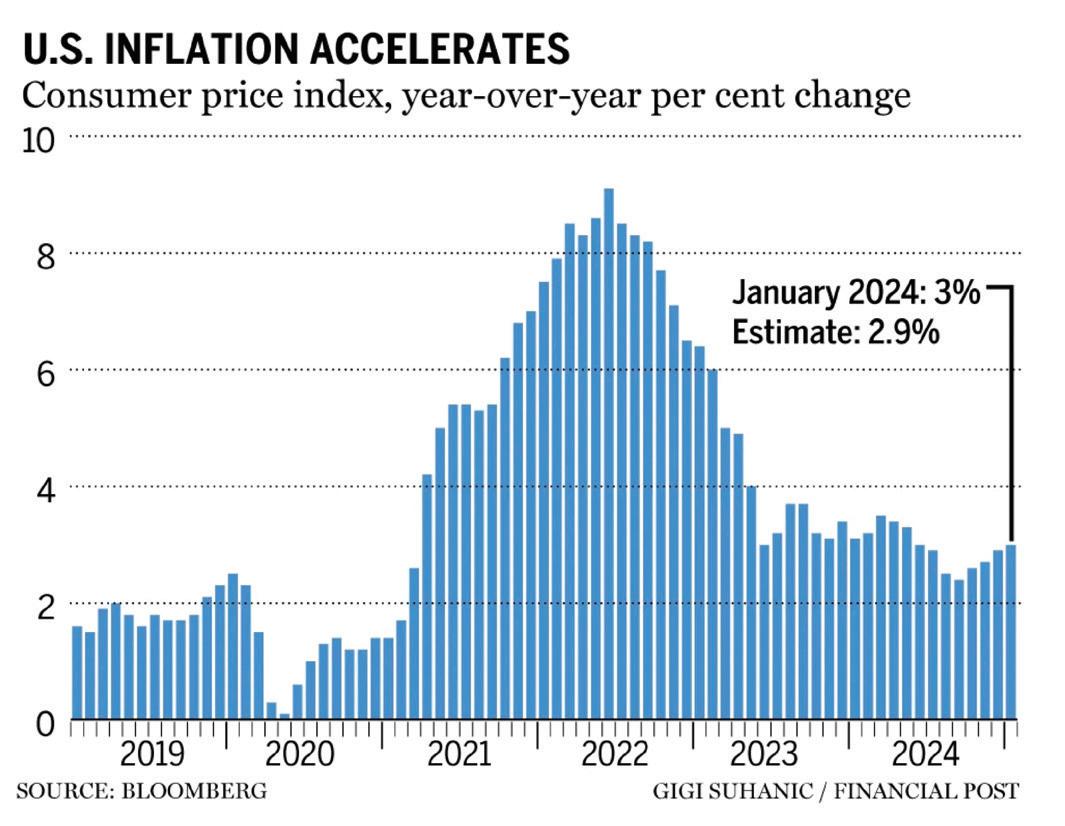
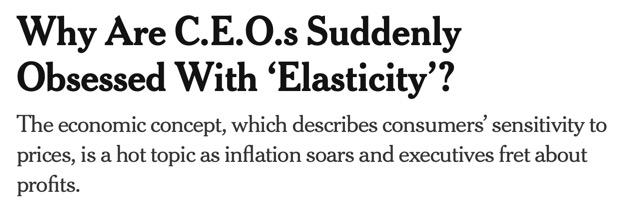
It also includes controlling your products and portfolio that you sell. Because along with the issue of inflation, is the coinciding concept of price elasticity. If you are a manufacturer you are asking “at what price will my consumer not buy my brand/product so much or switch?” If you are a retailer, elasticity implies “When will my shopper defect and go to a different channel or retailer?”
Inflation and elasticity are the reasons why you saw so many retailers either newly launch or reinforce their value brand strategies.
Asda’s Just Essentials, Waitrose’s Essentials, Kroger’s Smart Way are all demonstrated efforts to provide their shoppers with reasons to not drift to other channels. They are demonstrations of value, many with marketing attitude so that they don’t convey sterility, and they have legs into the future and staying power.
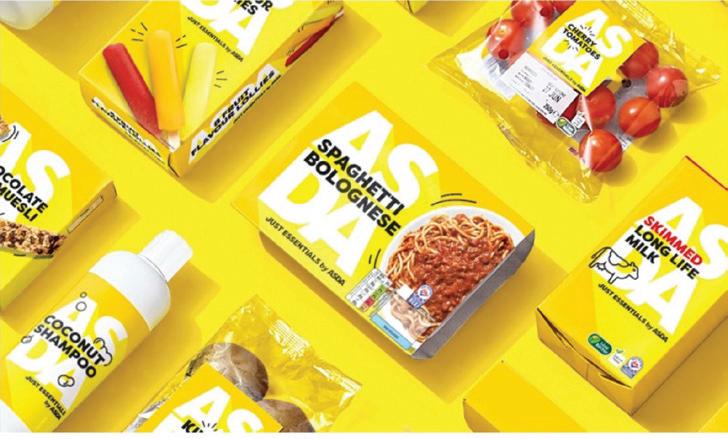


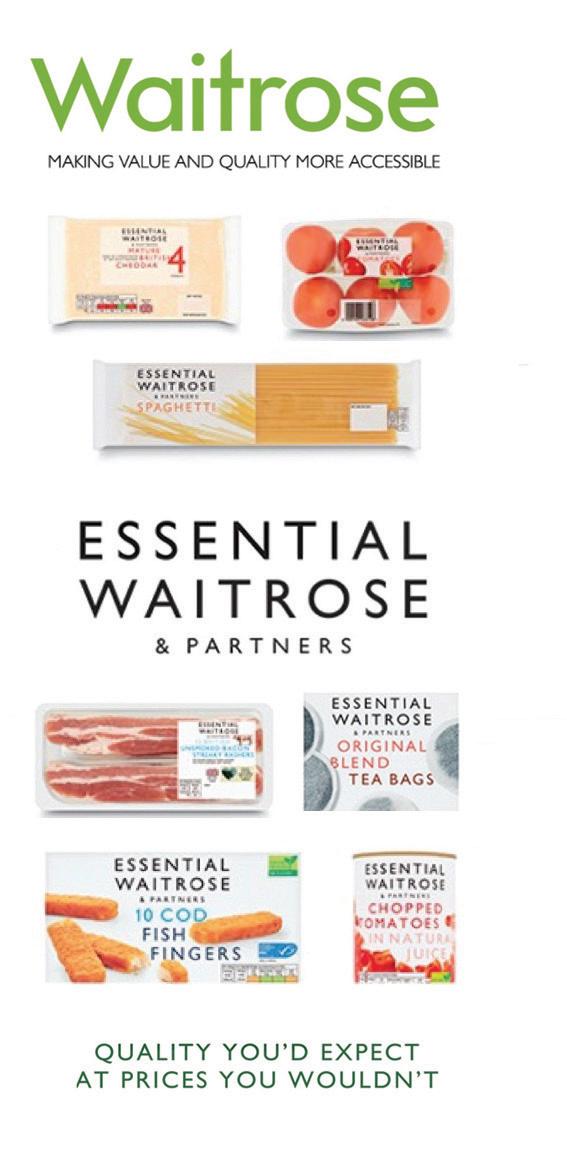


Retailer CEOs are putting intense focus on the three-pronged consumer conundrum: What are people buying, how much consumers are buying and WHERE are they buying it from?
This question of “where” is not just a question of buying within your channel of operation, but it is a question of cross-channel too, and how far someone is willing to defect and drift. Grocers are particularly afraid, with value pressure from clubs, value pressure from limited assortment and dollar operators, and value pressure from mass merchants. They might be most in the cross-hairs. But the growth of what once were “alternative” operators is now inescapable for the retailer CEO.
Dollar General (DG) is opening 575 stores in 2025 to their already 20,000+ in the U.S. There are only 2 U.S. states that don’t have a Dollar General (Alaska and Hawaii) and for many households, DG is their grocery store.
75% of America has a Dollar General within 5 miles of their home.
ALDI DISTRIBUTION CENTERS (TO 37 STATES)
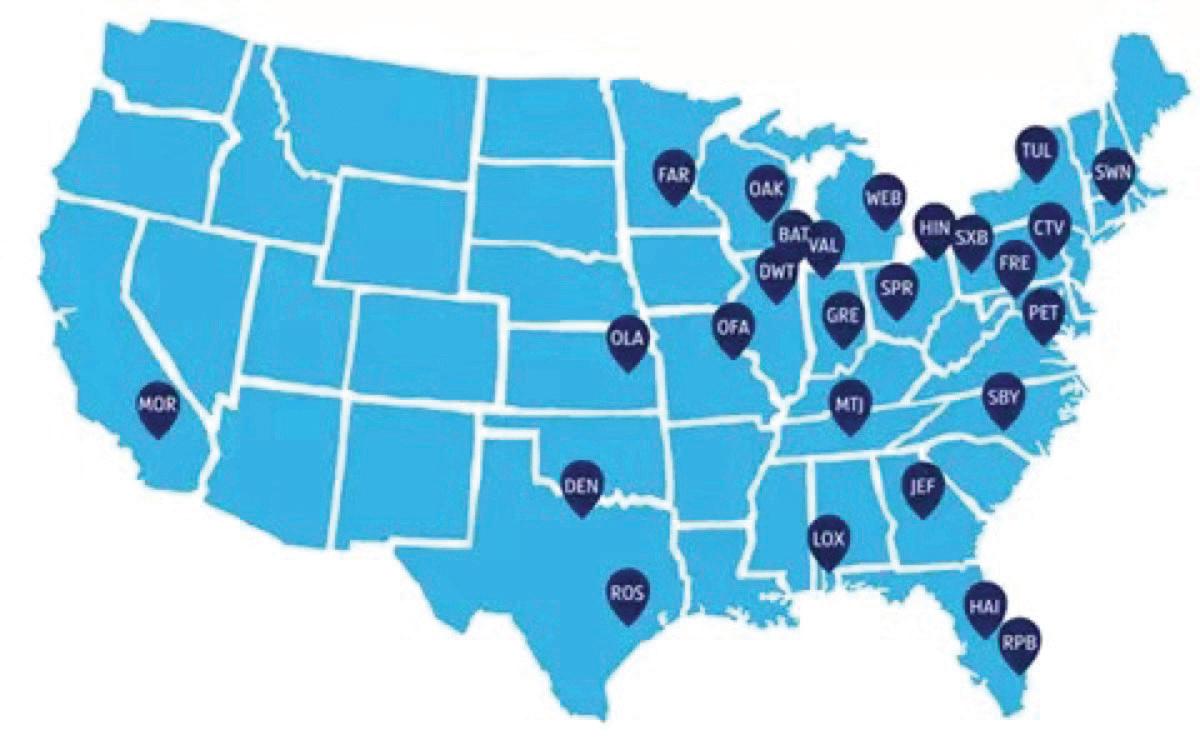

Aldi is the fastest growing U.S. grocery chain. They are going to open more than 225 stores in 2025, the most stores to be unveiled in one year during their 50-year history.
But it is not just the organic growth that is stunning that retailer CEOs are paying attention to, it is the shifting consumer they are attracting, and even as the Wall Street Journal has reported, bringing in the “one percenter”.
According to InMarket, not only is retailer foot traffic up in the share of dollar-store visits this last year among those making more than $100,000, but households with
six-figure incomes say they are more likely to shop at dollar stores now. McKinsey has also reported on this one-percenter phenomenon and said that dollar stores are seeing an influx of wealthy consumers.
The “value” retailing sector and the consumer demographic it attracts cannot be looked at through the stereotypical lens. Today’s retailer CEO needs to look more broadly at who their competition is, beyond their own channel, and fight for value at every end of the consumer spectrum, even within the one-percenter segment.
People considering purchasing from dollar stores, by income group
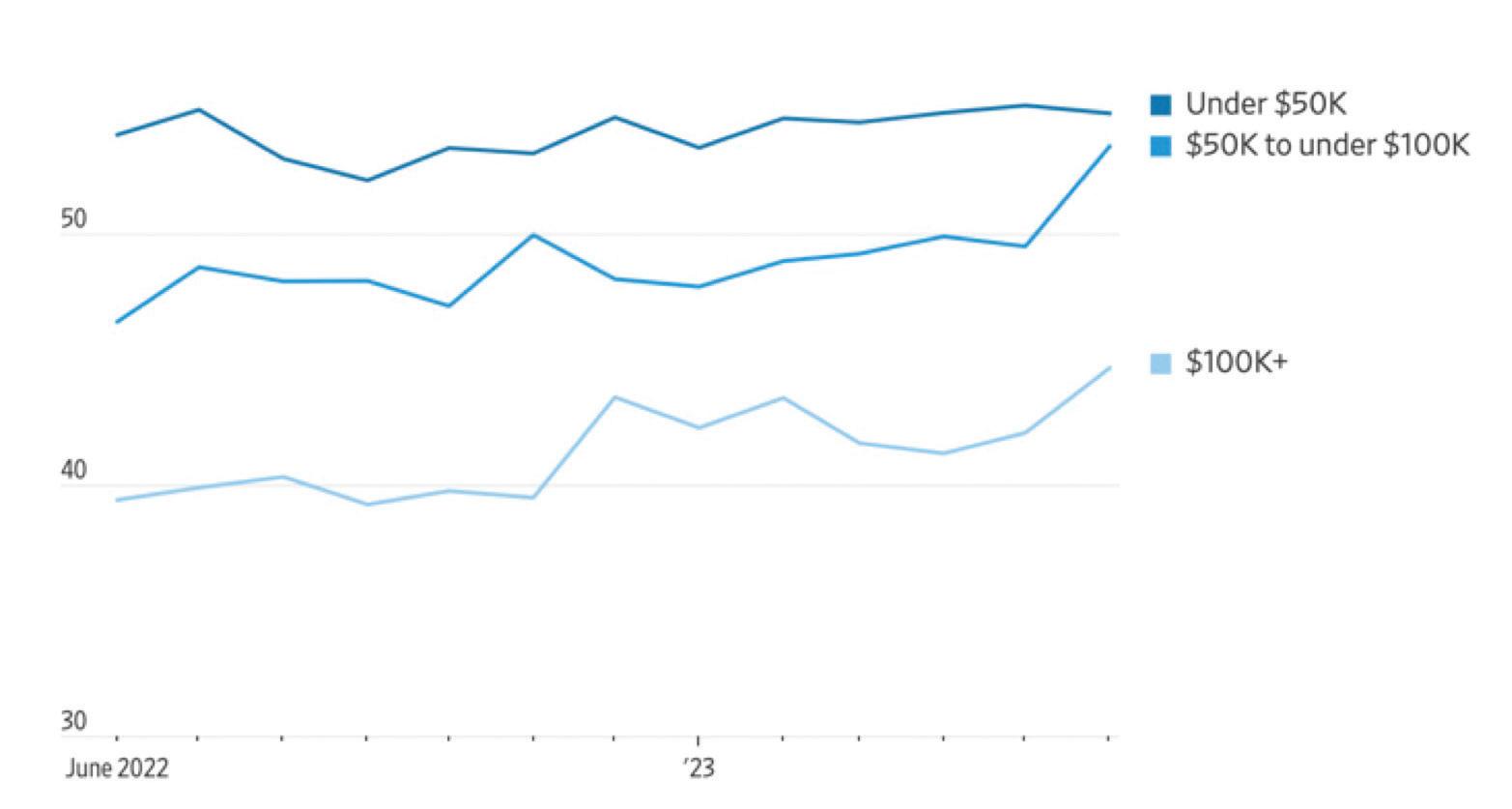
DEI became especially political over the last year, and we are seeing a whiplash effect of retailer policies since President Trump was elected. It is a 180 degree turn like no other, and retailers like Target, Walmart and Amazon have all announced different approaches to DEI in the last 60 days.
In terms of messaging and even their approach to product portfolio, retailers are recalibrating. This is what Target said in mid-2023.
From a product perspective, their Pride collection at its height was near 2000 items in 2023 and is now around 75 items. Now this backlash happened before the U.S. election, but the scaling back of their DEI continues across the board today.
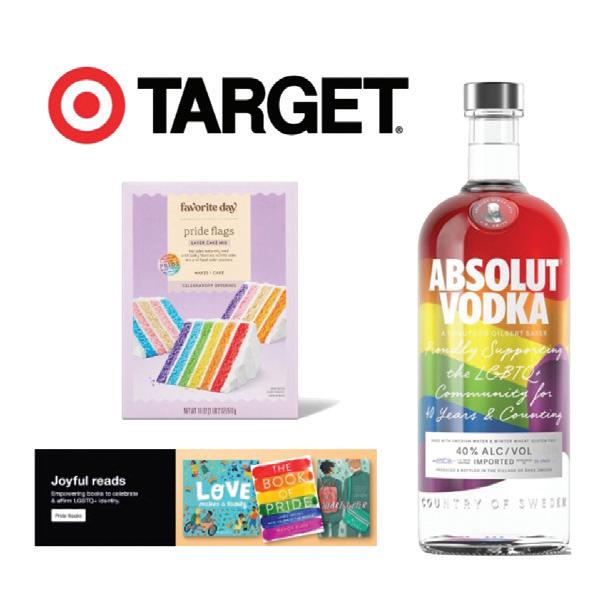
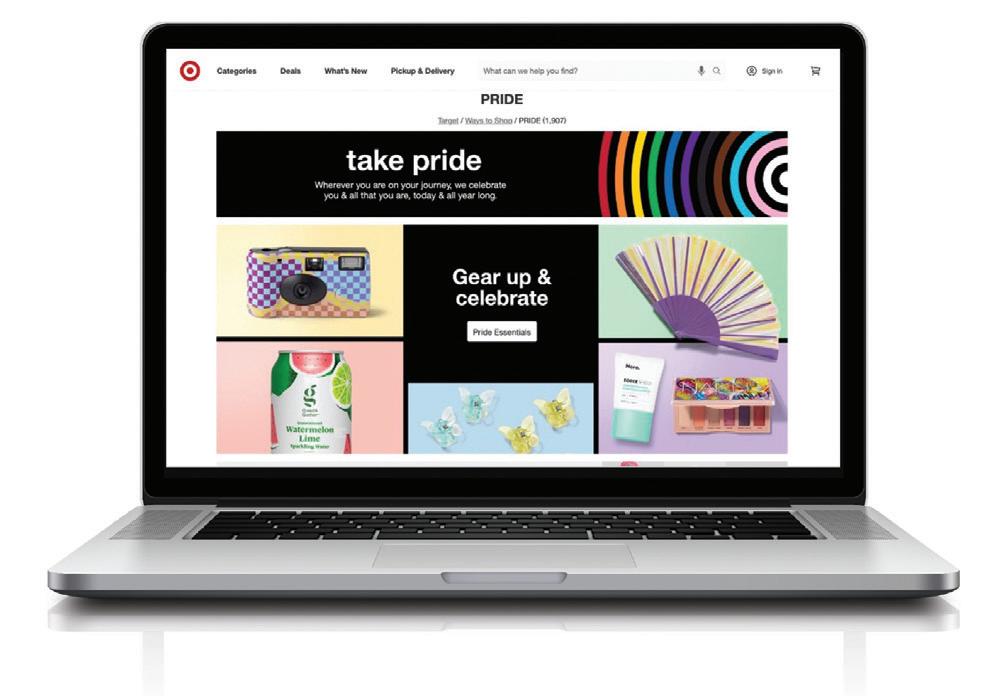
“Our
attitude toward diversity and inclusion is just good business... it’s really about helping all the families, and that ‘all’ word is really important.”
Brian Cornell Chairman/CEO since 2014

Many retailers prior to 2025 talked about the benefits of DEI, saying that it was a driving force in their business, inwardly for their own employees and outwardly for their communities and customers. Benefits many cited were team engagement, empowering their culture, recruiting and retention, and that it just made good human and business sense.

The “Open To All” initiative is a national nondiscrimination campaign based upon the idea that everyone is welcome regardless of race, ethnicity, national origin, sexual orientation, gender identity, immigration status, religion or disability. It was created to advance the DEI movement and it includes many leading retailers. Where retailers find the right balance of DEI will be interesting to see in the next year, but there are many retailers and retailer CEOs who have not overreacted to the political winds. Costco has been notable in its resistance to changing DEI.
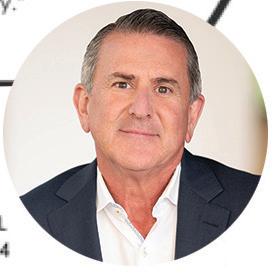
The North Face is another retailer who will likely be undeterred because they see DEI essentially as part of their DNA and brand. They have defended these stances before and I would guess that they will in the future too.
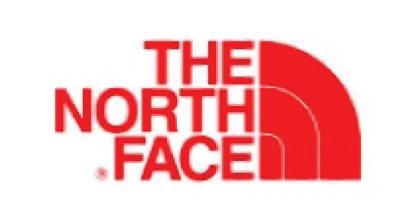
“TNF always believed the outdoors should be a welcoming, equitable and safe place for all.”




AI in retail is just touching the tip of the iceberg, and I believe the retailers who go all-in on AI through the supply chain, category analysis, marketing personalization and so much more will be advantaged. Many retail CEOs seem to believe this too.
AI is literally machine-led learning designed to act like human intelligence but involving data whose scale exceeds what humans can analyze. Its application at retail will be throughout the back and front-ends of operation. And, the early-adopting consumer is increasingly exposed to AI through everyday life.
Across all retail (maybe except for Amazon), Walmart has been one of the leading retailers in implementing AI, visibly to the consumer, visibly to their associates, and through the back end into the total supply chain.
Doug McMillon, CEO, is excited about what is possible with AI and says,
As it relates to technology, our approach to new tools like generative AI is to focus on making shopping easier and more convenient for our customers and members, and helping our associates enjoy more satisfying and productive work.
directlty. It is also deeply prevent itself at retail
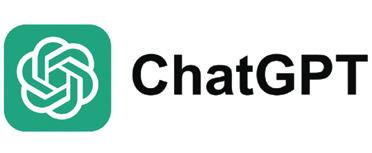

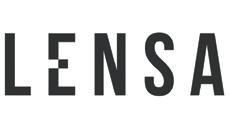



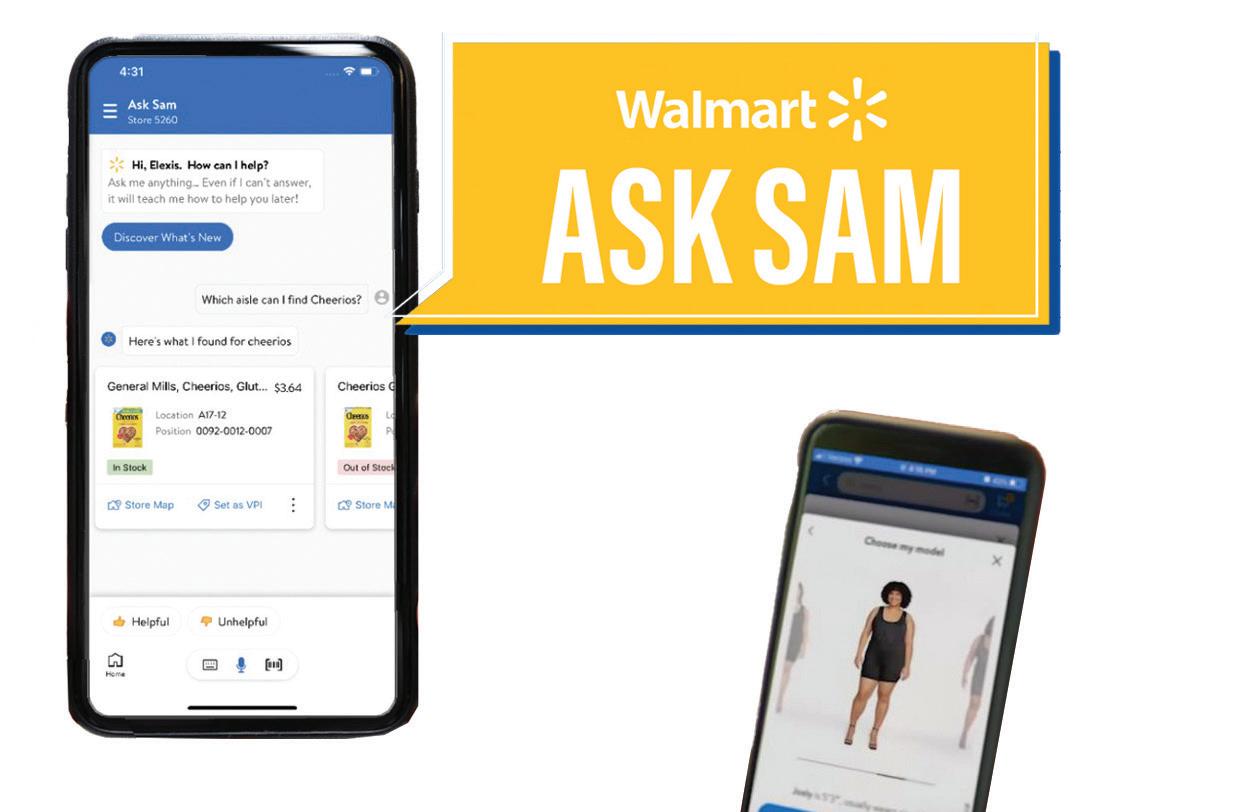
The presence of AI is seen in a number of ways – store associates have access to “Ask Sam”, customers have access to The Shopping Assistant and can also virtually see how furniture fits in a room, and AI is now embedded into selfcheckouts to control theft and help with scanning accuracy. In late 2023 Walmart gave 50,000 office workers a generative AI app, whereas other retailers have restricted it.
AI has a transformative power at retail with personalized advertising, delivery service applications (Instacart using ChatGPT), analyzing customer traffic patterns to optimize store layouts, managing warehouse operations, and so much more. The forward-thinking retail CEOs are talking about AI as a way to gain advantage with their shoppers and against their direct competitors.

You cannot be a retail CEO and not be obsessed with your workforce, who is your lifeblood. I mean let’s face it, companies like Kroger (with over 400,000 employees), Costco (333,000) and Walmart (2.1 M employees) depend on these vast teams to be differentiators, and with new stores constantly opening, these workforces are only growing. Costco’s workforce increased 5.38% YOY – the hunt for great people is always real.
Today, unemployment is 4.0%, which is still historically low (5.68% is the long-term average), meaning about 6.8 million people in the U.S. are not working. This still represents a relatively tight labor market.
Retail CEOs are observing that the types of skills necessary within retail are changing. Physical and manual skills are becoming less important, and technological skills are becoming more important. This trend will continue and it is part of the evolving talent model.
In the war for talent, retailers need to think about how they stem attrition by building a richer overall experience for their people. In a continued tight labor market this includes:
• Considering higher wages that are made possible through other tech investments. This is the table stakes for retailers like Costco, who have always been more generous than many of their industry peers.
• Reducing attrition with a better employee experience. There is often a disconnect between what employers and employees regard as important.
• Planning talent needs over at least a three-year horizon and investing accordingly.

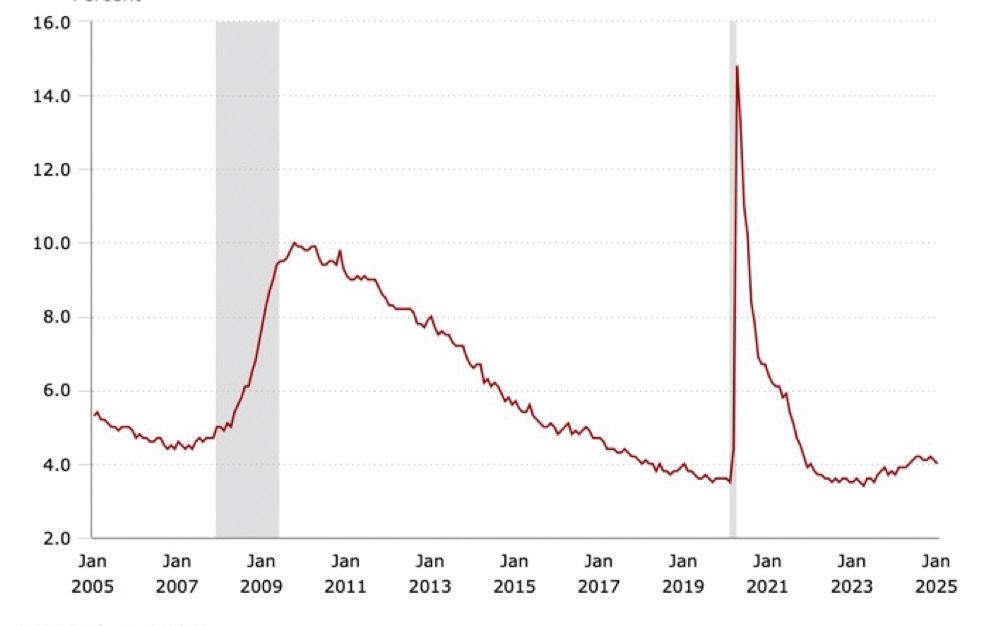
Automation surrounds us, and it definitely surrounds us at retail. It has become increasingly visible to the consumer, even if they are only seeing half of where it has actually manifested itself.
Retail CEOs see that there is a front-facing aspect of automation as well as a hidden one, and some are wrestling with the front-facing balance. At a retailer like Hy-Vee where their credo, known by all shoppers, is “a helpful smile in every aisle”, a personal, human touch is part of their DNA. However, even they have adapted and implemented many, many new technologies.

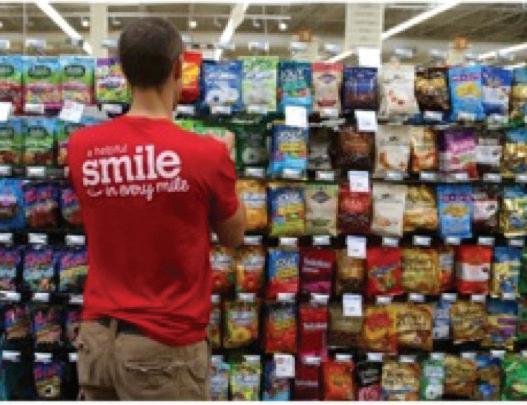
When we look at retailers’ checkout today, Catalina reports that 38% of all checkout lanes in the U.S. are automated (self), and the number of self-checkout lanes has increased by 10% in the last 5 years. There are three different automated ways to checkout today (scan & go, self-checkout and cashierless), and combined with AI (to reduce theft and check scanning accuracy), all can impact labor costs.

Cashierless has been experimented with and implemented by retailers like Amazon, Aldi and 7–11, and it relies heavily on facial recognition and motion sensors, to which some shoppers don’t think about and others perceive to be “invasive”.
We as consumers are getting used to seeing replenishment robots in-aisle. Stores are rife with in-store kiosks for the deli, wine selection, key-copying, DMV registration renewal, barista-made coffee and many other applications.
How much is too much is still an evaluation-in-progress, but consumers are increasingly embracing this automation. Though, the consumer is not shy when something doesn’t feel quite right.
These digital and interactive screens (like those in Walgreens) have been met with a lot of disdain.
Invisible automation (back-end and not seen by the consumer) is also implemented widely throughout the supply chain, and as said before, will continue. Retailers see this back-end automation as crucial for future efficiency and cost-savings.
Automation across retail will be tested, experimented with and implemented even more in the future, and the retail CEO knows that this type of investment (similar to AI in Retailer CEO Issue #5) will be a crucial lever for competitive advantage.
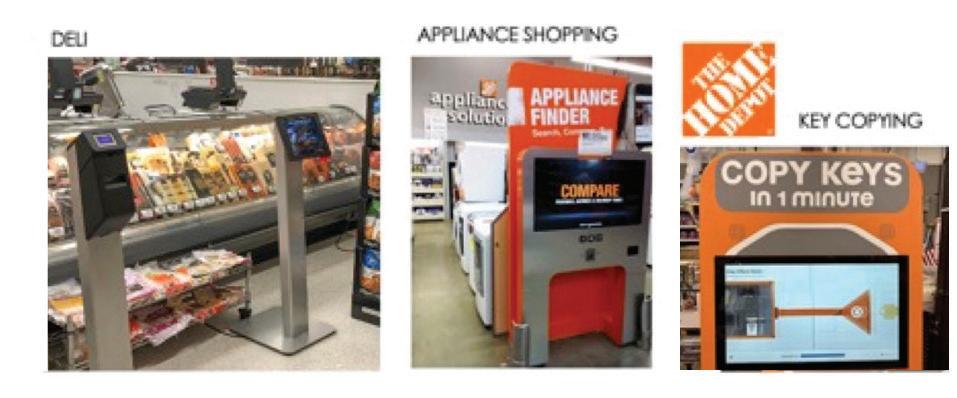

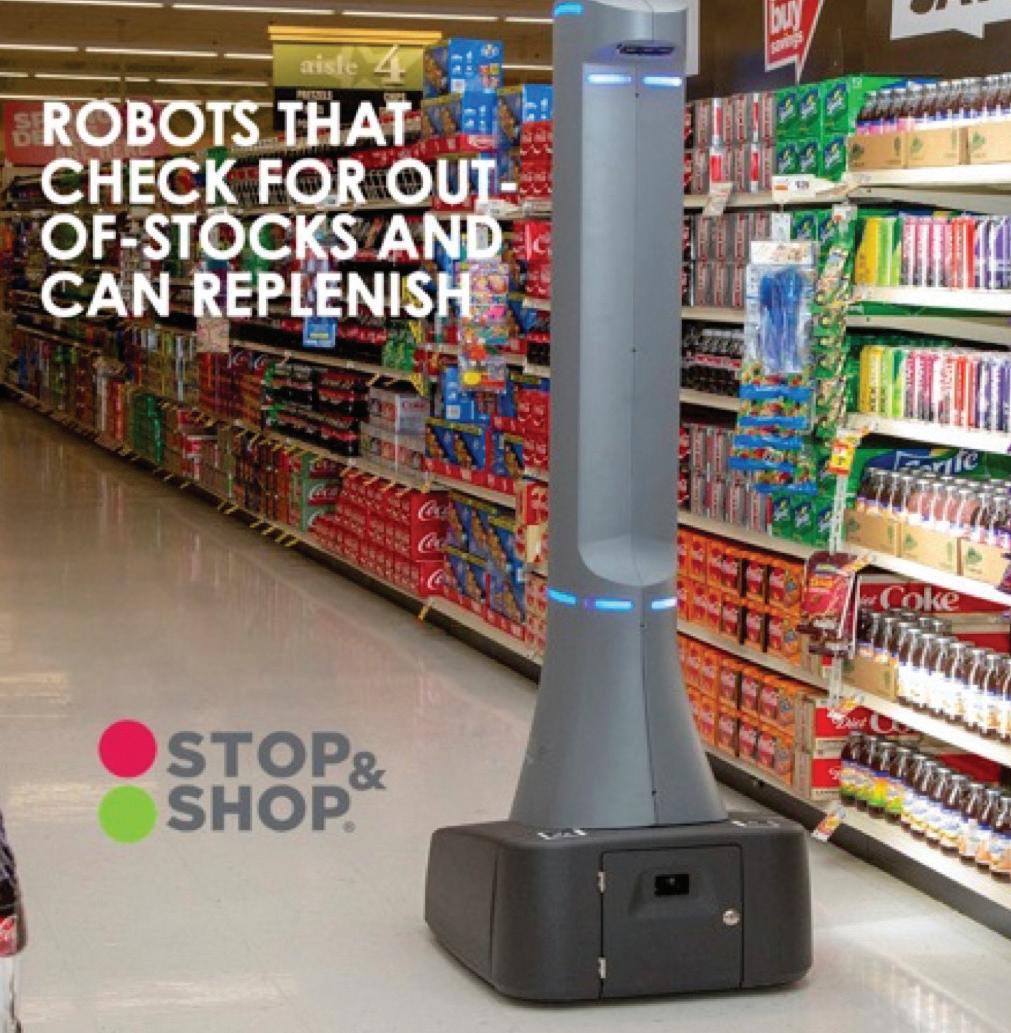
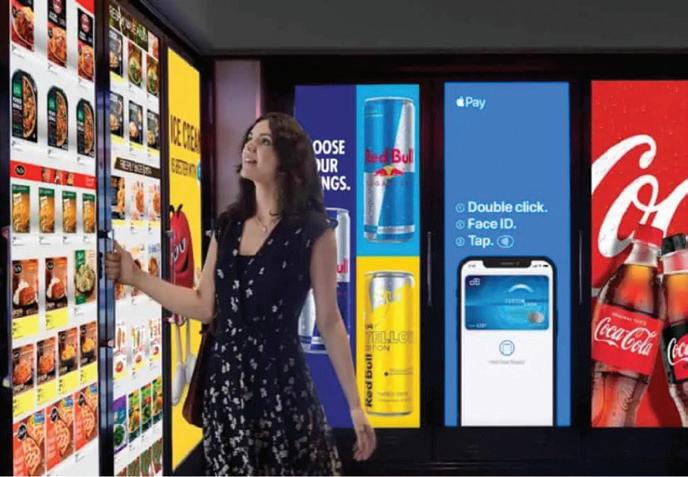
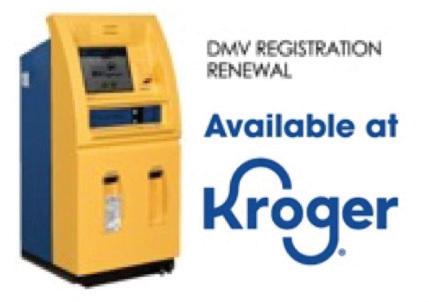
Well, in a magazine that focuses globally on own brands, you might think it would be tough to exclude them from a “Retail CEO Top Ten Issues” list, and you would be right. But, own brands are here in the top ten on their own merit. CEO’s see them as a controllable, unique and differentiating asset in the retail warfare for the future.
The FMI reports often that “93% of retailers say private brands are very or extremely important to their business”, and almost all of them are boosting their investments. Yes, indeed, the retail CEO has own brands as part of their regular strategic thinking and part of their plan.
While I write about own brands often, there are three things today that stand out in looking at them, trends that a retailer CEO can take to heart.

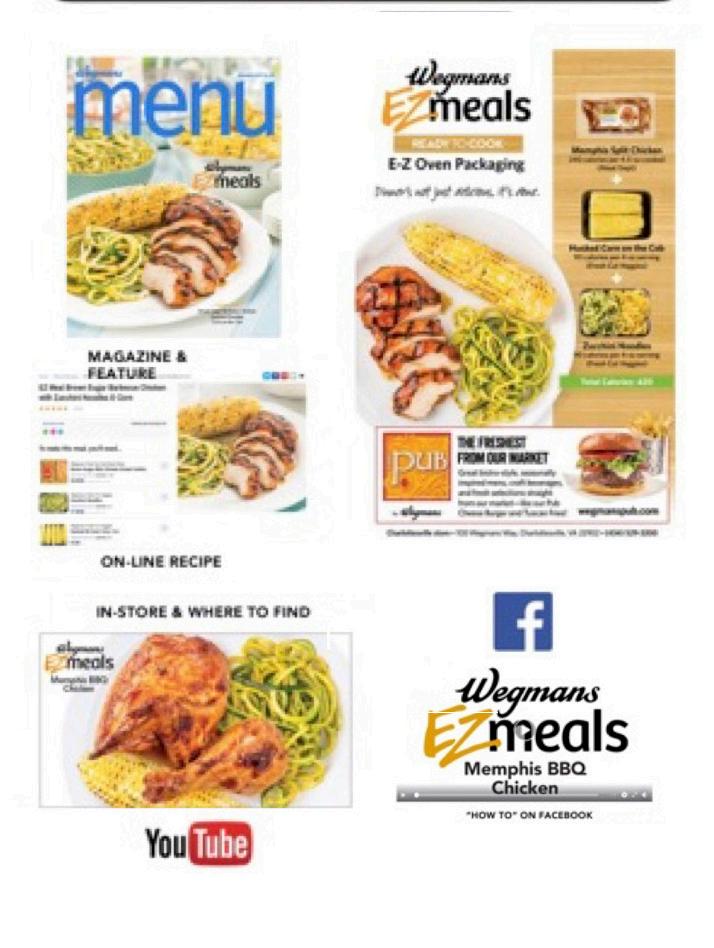
1.
Being first matters when it comes to a unique product, and how you extend that differentiated attribute is important.
Costco was one of the first to bring unsulfured organic mangoes to market, a top-selling item. Other retailers saw this success, but only Kroger took the trend to other categories. The lesson here is try to be first, try to be different, and try to amplify the trend if you can.
Mango trend amplified to other categories
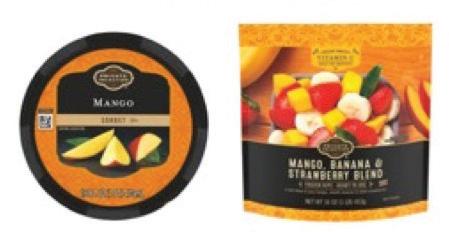
2.
Dedicated, preemptive merchandising and marketing matter.
Sounds simple, but many retailers still skimp on space dedication for own brands. Look at how the clubs, in this case BJ’s, allocates space to own brands and allocates it towards their intended share objectives in a destination category.
When Wegmans gets behind a product/marketing idea, it is bolstered cohesively through every form of in-store and out-of-store media.


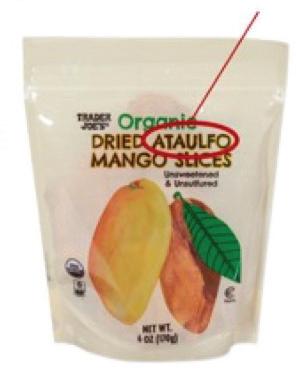
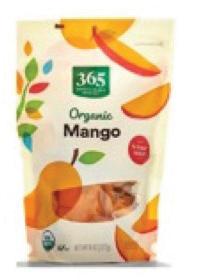
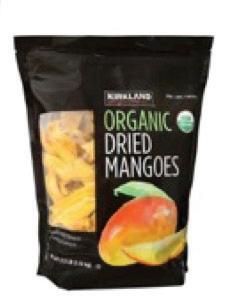

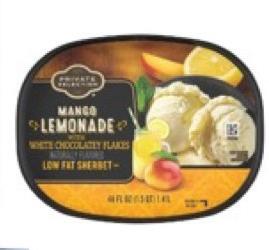

3.
The rage for organic, natural and clean is real, and continued investment is essential.
Retailers and their CEOs see organic, natural and free-from as an important trend that will grow, and this is why you see them investing in product development.
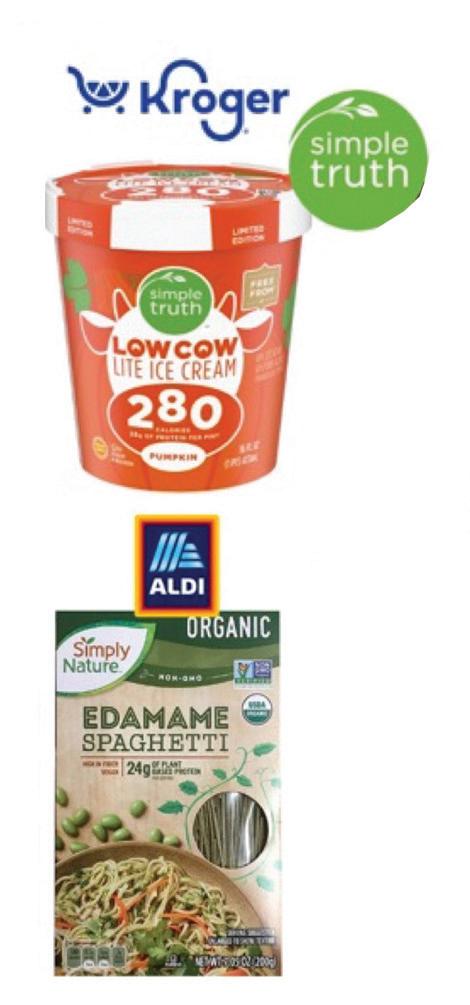

While this issue has quieted in the media, and to some degree, has actually quieted because of increased criminal prosecutions and many cities stepping up, this is still a major topic for retailers and their CEOs. Theft is real, it is a key determinant in shrink, and retailers are smartly (but sadly) actually building it into their planning.
The summer of ’23 was remembered as the height of criminal and organized flash mobs, and fashion retailers like Nordstrom’s were at the center of it all. This has the effect of actually frightening their core shoppers.

Nordstom CEO slams ‘disturbing’ mob that swiped $100K in merchandise



Stores lost $122 Billion in 2023 and many experts estimate that shoplifting could cost retailers $150+ Billion by 2026.
Ulta, the beauty care retailer, has responded to all of this by “increasing staffing, hiring, more security and using in-store fixtures to prevent theft. Fragrances, a frequent target of thieves, are locked in cabinets at 70% of Ulta’s stores nationwide,” says COO Kecia Steelman.
Walgreens still has beauty care and body care behind locked glass stores in many locations.

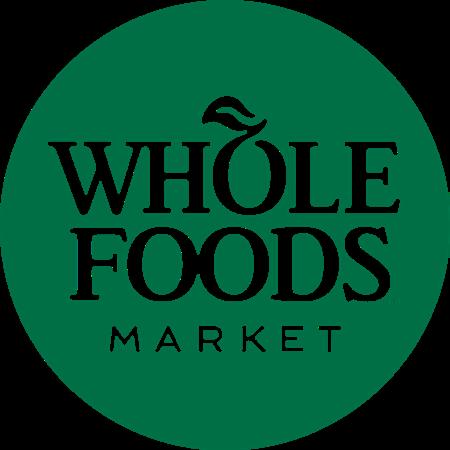
Whole Foods has notably been more cautious and pulled out of some key iconic locations, notably pulling back on San Francisco.
This issue has softened in the press, but it has not softened as retailers think about store and format planning, and the added investments in controlling theft/shrink within the boardroom.

There have been some big mergers that have blown up as of late, and if you are a retailer CEO, you are thinking about what might be appropriate for your organization. Aldi and Southeastern Grocers has been largely dismantled after some Aldi store absorption, and the $25 Billion mega-merger between Albertsons and Kroger, which collectively cover 17% of all grocery has also been unwound.
This merger would have touched over 85 Million households in the U.S. Bain & Company has reported on this dip in mergers and said “we will see more retailers buying to diversify into higher-growth revenue streams – in some cases leveraging an existing asset that they’ve been sitting on (e.g., their data). They think that retailers could see as much as 40% of their revenue in “beyond trading” revenue and more than half of the industry’s profits by 2030.
If you are a retailer CEO and thinking about the prospect of mergers and acquisitions, what this means is that they will be more strategic potentially, and quieter from a customer facing point-of-view.
Kroger and Albertsons together reach over 85 milliom U.S. households
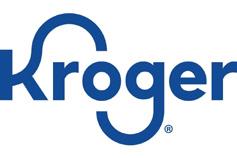

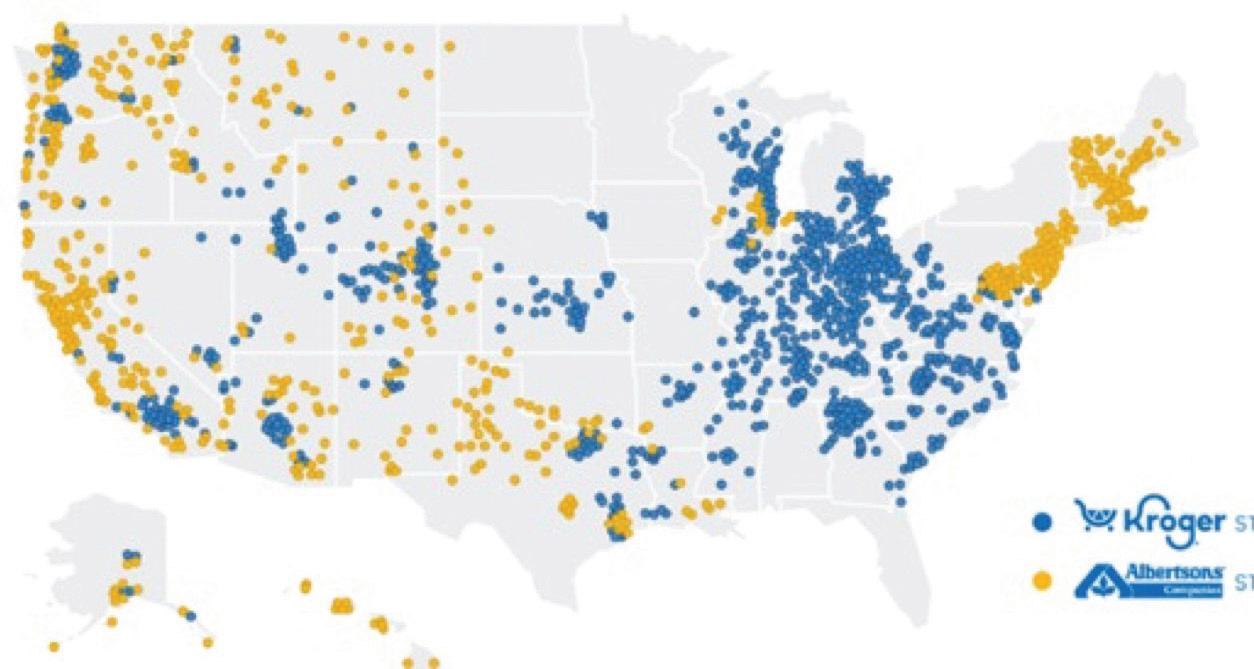
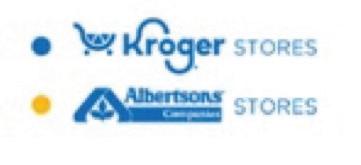
If you are a retailer CEO, you have a lot on your mind. A lot of priorities, and your people and investments need to be allocated judiciously. Even if you are not a retailer (and CEO) and are a manufacturer or service provider in the industry, it is often important to think like a CEO, knowing what is on your retail customer’s mind at the highest levels. Wishing you the best as you think about your individual initiatives and how to drive them in context of this overall bigger picture.

BY PERRY SEELERT
A retail branding and marketing expert, with a passion for challenging conventional strategy and truths. Perry is the Strategic Partner and Co-founder of Emerge, a strategic marketing consultancy dedicated to helping Retailers, Manufacturers and Services grow exponentially and differentiate with purpose.
The history of private label products dates back to the mid-19th century in Europe when retailers began selling products under their own brand names, marking a departure from the dominance of branded manufacturers. Before this shift, competition revolved around branded products, with manufacturers controlling much of the retail landscape, setting prices, and driving consumer demand through marketing. Retailers had limited insight into manufacturing costs and relied heavily on suppliers for information.
By the early 1900s, some retailers, like the French retailer Casino (1901) and Albert Heijn in the Netherlands (1914), began producing their own goods, such as biscuits and sweets, to reduce dependence on manufacturers. In 1924, Tesco in the UK introduced its own-brand tea, and Belgian retailer Delhaize followed suit with the Derby private label in 1930. This marked the beginning of private labels gaining traction in the market.
The 1960s and 1970s saw a surge in the popularity of private label products as retailers realized they could offer quality goods at lower prices under their own brands. Branded manufacturers, using vertical price fixing, set retail prices that limited the competitive advantage for retailers. As supermarkets grew, retailers gained a stronger position and began pushing for more competitive pricing.

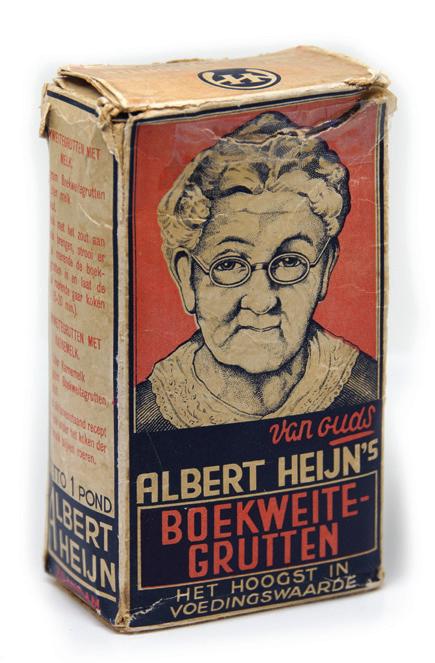
In Germany, Edeka pioneered the concept of private labels in the early 20th century, creating cooperative purchasing groups to secure discounts, which allowed them to sell products below the prices set by brand manufacturers. This led to a direct confrontation with branded goods manufacturers, who responded with a boycott, but Edeka persisted and expanded its private label offerings.
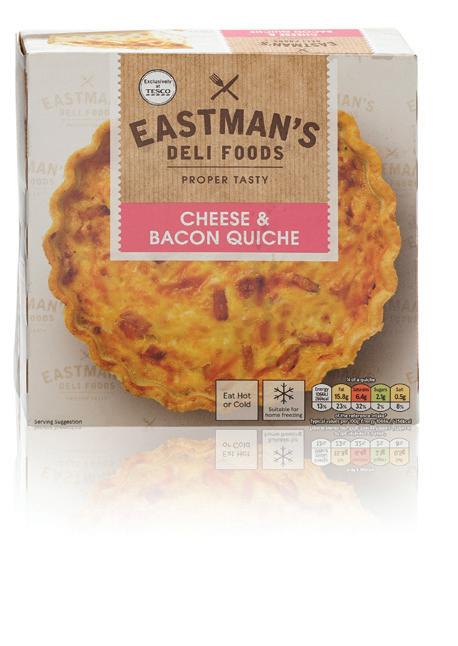

By the 1970s, private label prod ucts, often referred to as "generic brands," gained popularity in Europe, with retailers introducing no-frills packaging and simple product names to minimize costs. These generic brands offered significant savings of around 40% compared to branded products, which contributed
to their increasing appeal among consumers seeking better value for money. However, initial private label offerings were often perceived as lower quality due to the lack of experience retailers had in packaging and manufacturing.
By the 1980s, private label products gained more popularity, and competition between retailers intensified. To differentiate themselves, retailers began focusing on the quality and packaging of their private labels, improving their appeal. Consumers gradually began to view private label products as comparable to national brands, leading retailers to develop unique identities to foster customer loyalty.

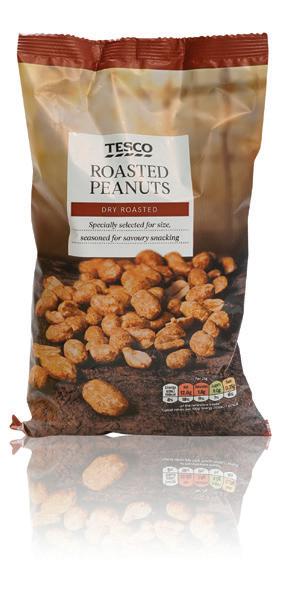
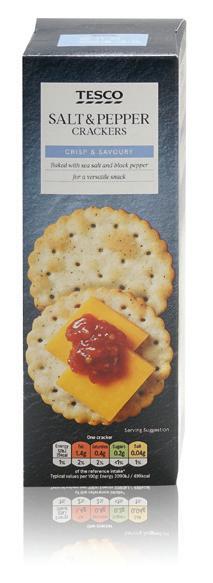

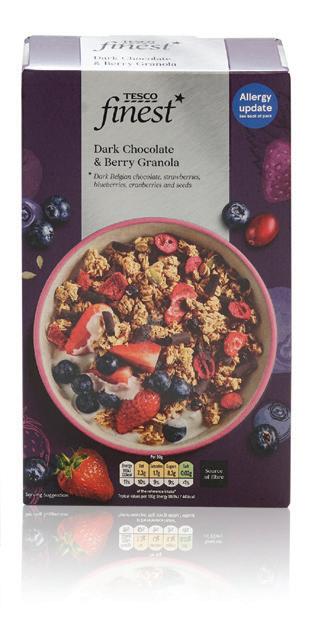
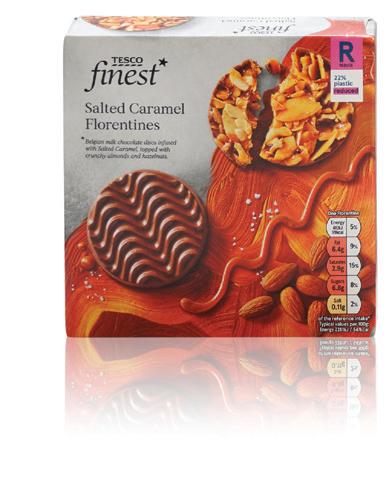

In the 1990s, nearly all European supermarkets began developing their own private labels to distinguish themselves from competitors. Retailers introduced private label products in categories where branded options were weak or lacked innovation. The strategy evolved to offer private label ranges that mimicked established brands, providing a variety of options to consumers. This led to the introduction of a threetiered approach to private labels, with value, standard, and premium options catering to different market segments.
In the 2000s, private labels further differentiated themselves by targeting specific consumer interests, such as organic, fair trade, and eco-friendly products. Retailers began to invest in creating unique private label products with distinct characteristics, leading to greater consumer trust in their quality. These products were designed to stand apart from national brands, with distinct packaging and marketing, reducing the need for direct comparisons between the two.
The 2008 global financial crisis provided a significant boost to private label products, as consumers turned to more affordable alternatives during tough economic times. Private label products continued to gain market share, offering a cost-effective option without compromising on quality. Research indicated that consumers were more likely to switch to private labels during economic downturns, and some continued purchasing them even once the economy recovered, leaving lasting effects on the performance of national brands.
During the COVID-19 pandemic, private labels once again gained popularity. Panic buying and stock shortages of branded products led many shoppers to try private label alternatives, and some continued purchasing them even after the crisis. This shift in consumer behavior highlighted the growing acceptance of private label products, with nearly 40% of consumers trying new products or brands due to availability issues.
Today, private label products have become a significant part of the retail market, with many retailers focusing on category management to offer diverse choices and create distinction. Private labels are no longer seen as mere budget alternatives; they are strategically developed to cater to specific consumer preferences, such as eco-friendly or health-conscious options. Retailers now offer private label equivalents of national brands, but with distinct packaging and characteristics, making them stand out in a crowded marketplace.
Private label market share has grown substantially, particularly in Europe, where many countries now boast private label shares of 30% or more, with some exceeding 50%. This growth has been fueled by collaborations between retailers and private label suppliers, who work together to develop sophisticated product portfolios targeting various consumer segments. These private labels have evolved into multi-brand portfolios that cater to a range of consumer interests, including organic, fair trade, and eco-friendly products, while also responding to growing demand for products that align with social and environmental values.
The evolution of private labels reflects a shift from reliance on branded manufacturers to a more consumer-focused approach, with retailers offering unique, high-quality alternatives at competitive prices. Over time, private label products have gained consumer trust and market share, and they continue to play a central role in shaping retail strategies in the modern marketplace.
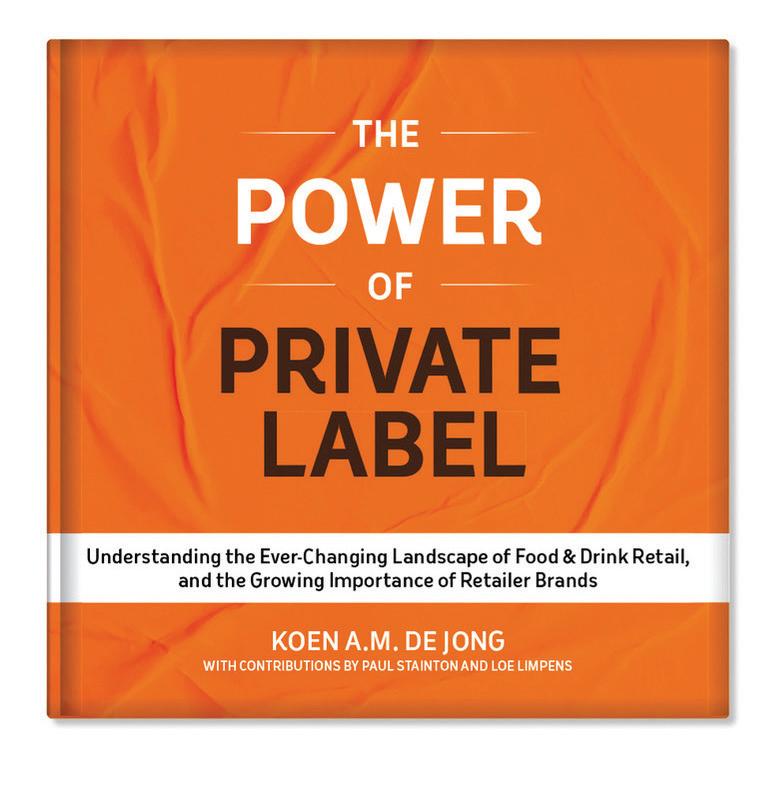
First of a series taken from the book, The Power of Private Label
In a bold move to refresh its identity and strengthen its presence on shelves, 7-Eleven has partnered with Marketing By Design (MBD) to roll out a cohesive 7-Select brand strategy that spans multiple categories. The results are already being met with enthusiasm from both franchisees and customers, signaling a successful transition into a new era of retail design for 7-Eleven. With bold visuals and a unified look designed by Equator, 7-Eleven has set a new standard for eye-catching brand innovation.
Seasonal, limited time offerings are an essential part of the retail calendar for 7-Select. MBD’s task was to create themed designs that speak to the moment. The result? Packaging that leans into each season with playful artwork and on-trend aesthetics. This fresh approach not only delights customers but keeps the shelves dynamic and engaging all year round. From summer’s bright, sun-kissed colors to the cozy, warm hues of fall, 7-Select’s seasonal packaging promises to captivate with every shift in the seasons.
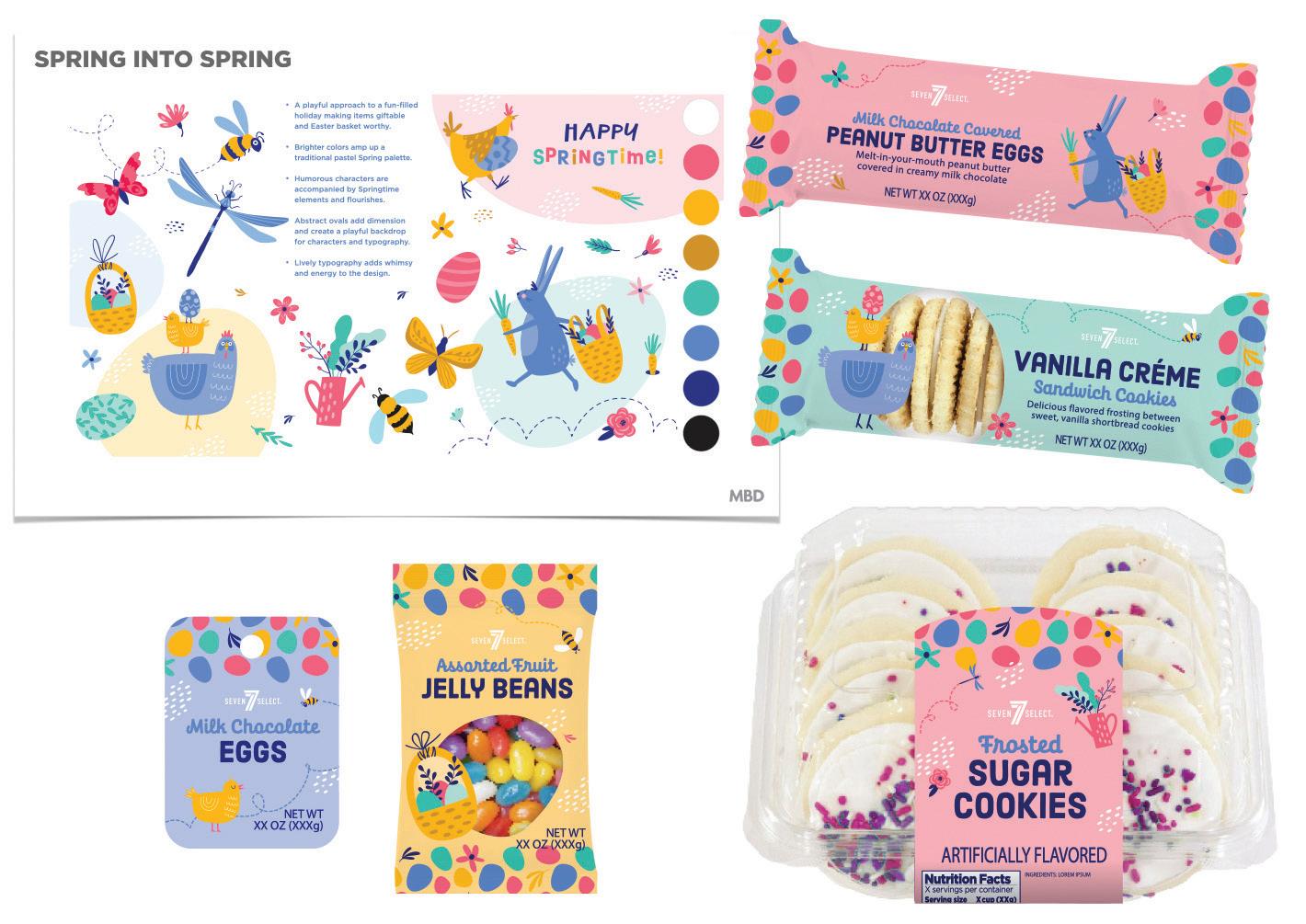
MBD’s playful design makes these items Easter basket-worthy and giftable. Brighter colors elevate the traditional pastel palette, while humorous characters and springtime flourishes add charm.

Warm up your taste buds and your table with 7-Select’s fall chips and nuts, where seasonal colors and flavors all come together.
The cozy charm of sweater weather comes alive with MBD’s adorable woodland friends, warm fall hues, and delightful foliage details.
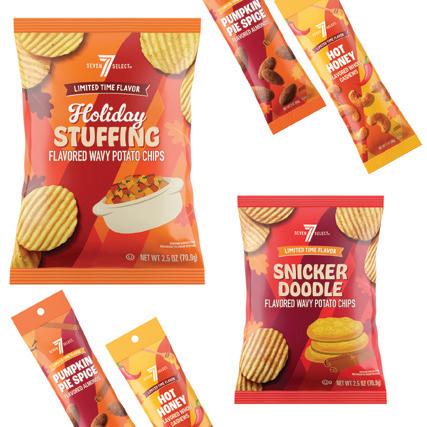
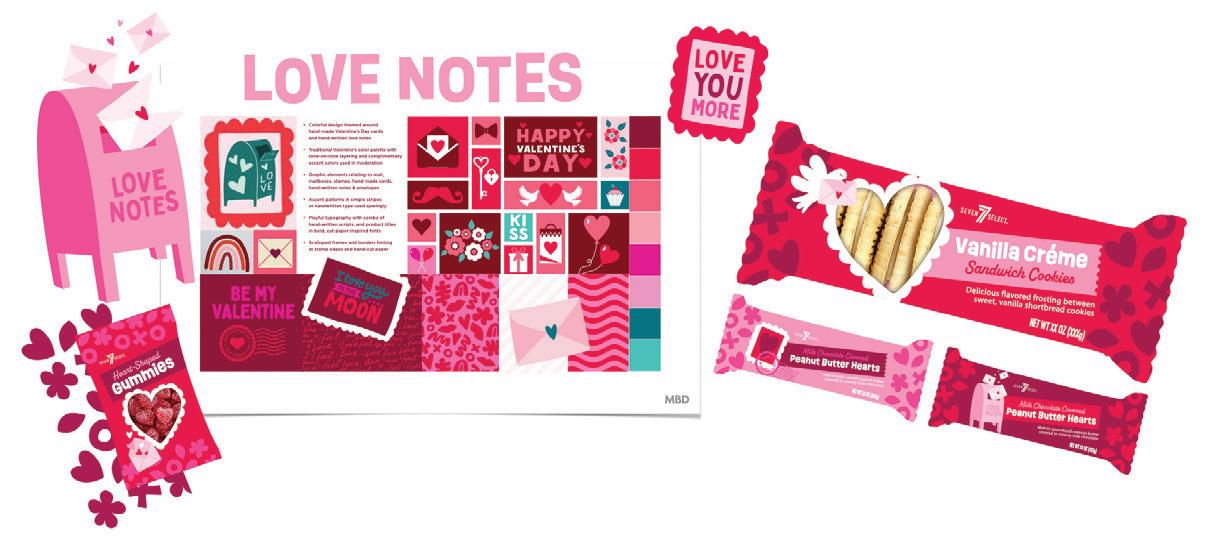
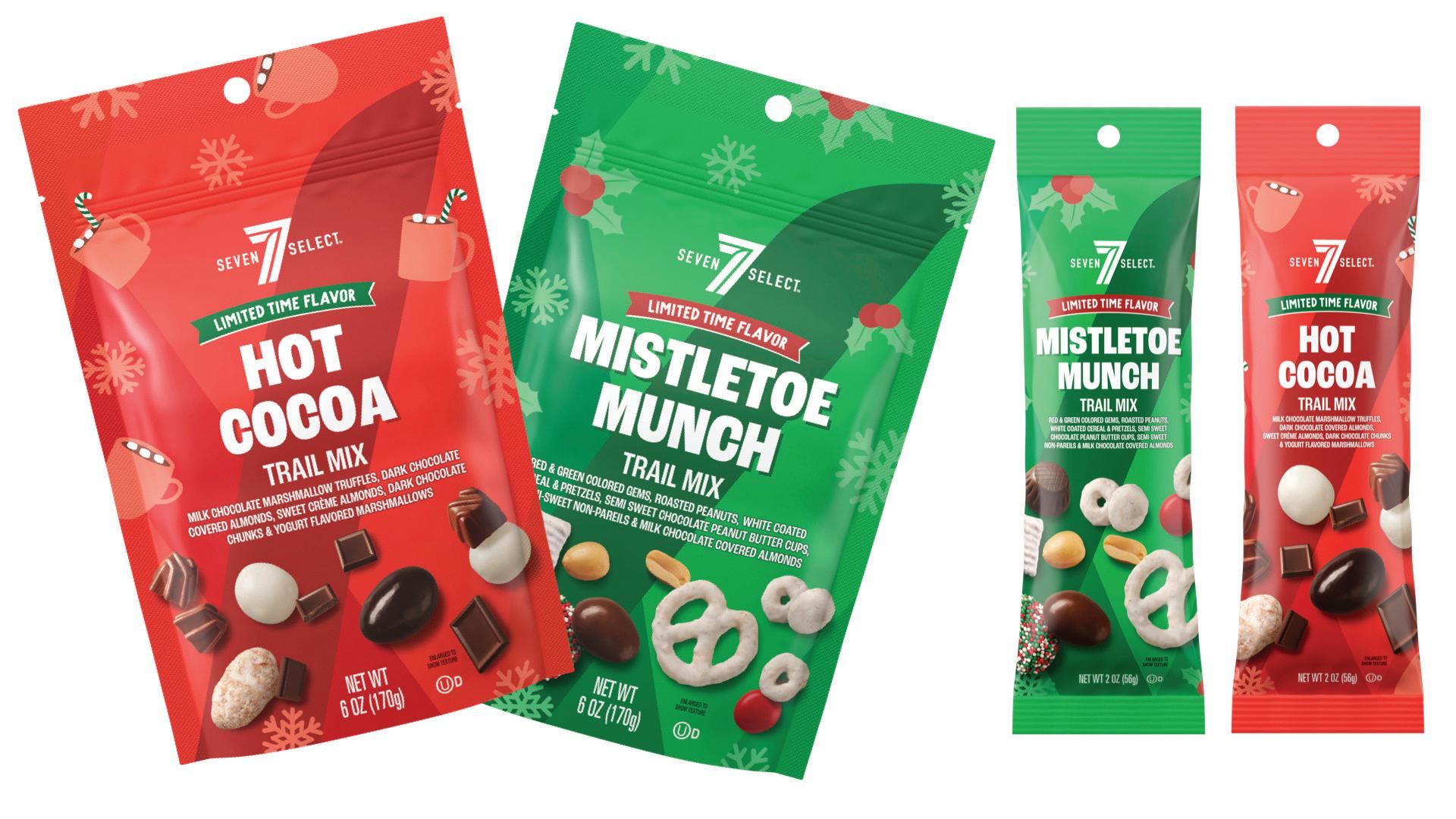
Send a little love this season with MBD’s postal-themed artwork— perfectly paired with heartshaped windows showcasing sweet treats for you or your Valentine.
MBD brought holiday cheer to every bite with red and green backgrounds, holly leaves, and snowflakes that capture the spirit of the holiday season.
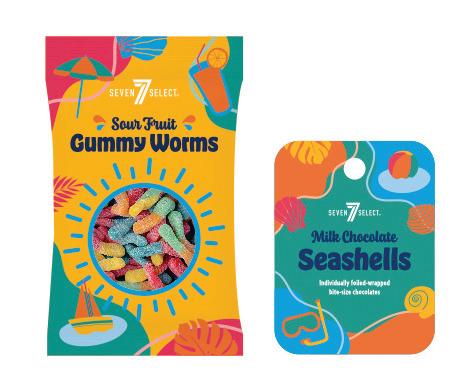
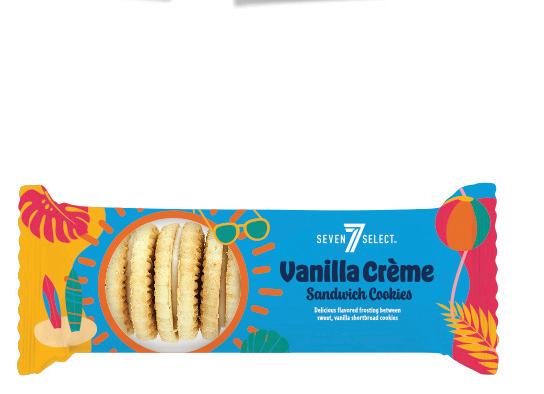
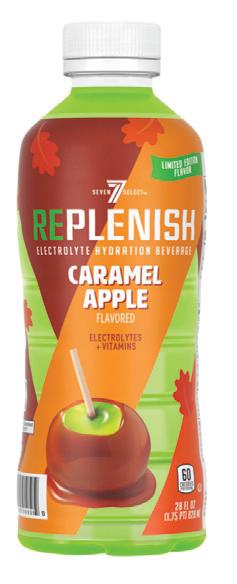
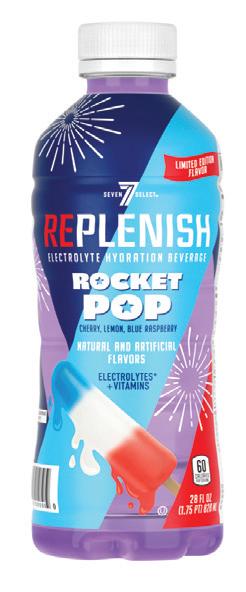
MBD captured the essence of fall indulgence with vibrant, seasonal artwork for 7-Select’s Replenish Caramel Apple. A crisp, juicy caramel apple becomes even more irresistible with complementary playful details and warm autumn hues.
MBD brought the 4th of July to life with a mouth-watering, melting Rocket Pop and firework line art, capturing the explosive flavors and festive spirit of summer in every sip.

MBD’s not-so-spooky illustrations, playful fonts, and unique window shapes showcase the perfect Halloween treat.
KATE NICHTER ACCOUNT MANAGER MBD
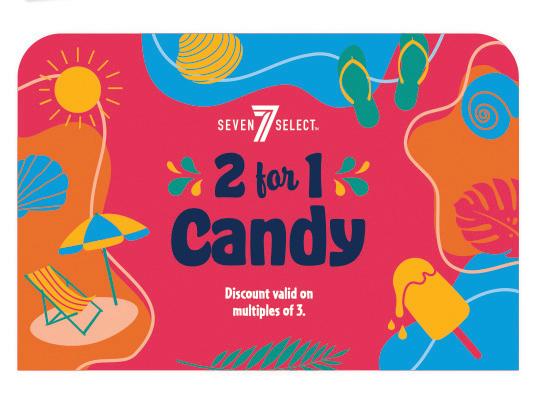
Transport yourself to the beach with MBD’s vibrant summer hues, coastal imagery, and sun-shaped windows.
In the ever-competitive world of retail, brands are constantly seeking innovative ways to stand out. 7-Eleven has found a successful formula by leveraging its private label brands, most notably the 7-Select Replenish Sports Drink line, 7-Select Gummies and 7-Select Juices that not only captures consumer attention but also push the boundaries of what's possible in private label.
The collaboration between 7-Select’s Replenish Sports drink and a football wide receiver exemplifies how partnerships can elevate a brand’s visibility and connect with a wider audience. MBD’s ability to roll out eyecatching, timely designs ensured the campaign remained relevant and connected to the viral moment surrounding the football star.
MBD created bold, high-energy packaging for 7-Eleven’s Where Car? gummy and juice line, designed to spark social media buzz among car, music, and skateboarding enthusiasts (18–34). Dynamic car illustrations and vibrant splash elements fuse automotive culture with flavor cues, delivering a visually striking design that grabs attention.

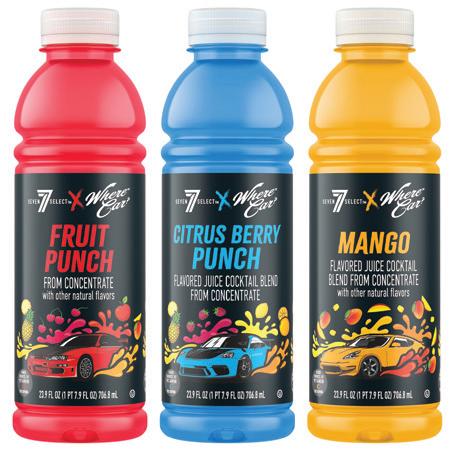
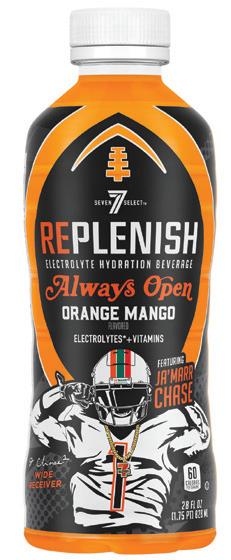
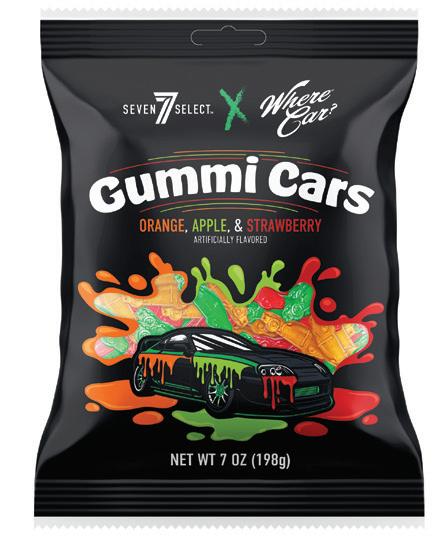
The partnership between 7-Eleven’s private label team and MBD has already proven successful, with franchisees and customers alike praising the new branding for its boldness and relevance. With the 7-Select slash becoming a recognizable marker of quality, and seasonal designs bringing joy and excitement to the shelves, 7-Eleven’s private label team is clearly committed to pushing the envelope in how it connects with its customers.
Kate Nichter
Kate has over 10 years of experience in the design industry, with the last 6 years focused on the CPG space as an Account Manager at MBD. Her expertise lies in fostering strong relationships with clients and retailers, ensuring their goals are not only met but exceeded. Passionate about design and product innovation, Kate is dedicated to delivering impactful packaging solutions that drive success and stand out in the marketplace.
In today’s competitive retail landscape, standing out is not just an advantage—it’s a necessity. One of the most effective strategies for retail marketing executives, particularly those leading private brands, is to focus on creating category disruptors. These innovative products break the norm, offering consumers something exciting and new they can’t find anywhere else.
Private brands have evolved dramatically over the years. They are no longer seen as mere budget alternatives to national brands. Instead, forward-thinking retailers use their private labels to introduce unique products that resonate with customers personally, fostering brand loyalty and enhancing store preference.
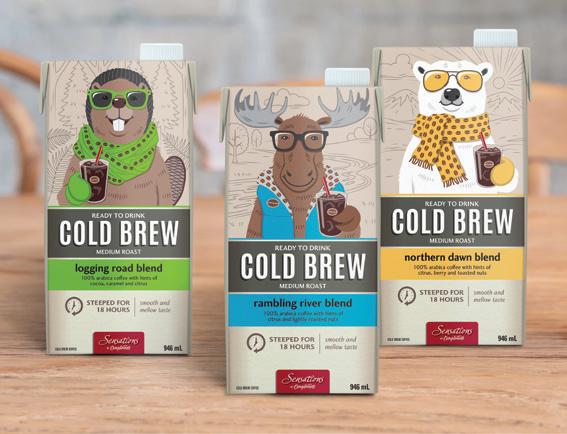
Category disruptors challenge the status quo by offering distinct features, designs, or benefits that set them apart from traditional offerings. These products don’t follow the existing category conventions; they redefine them. A perfect example of this is Cluck Wing Sauce.


Cluck Wing Sauce is a standout in the condiment category. It grabbed consumer attention with its bold packaging and innovative take on a classic favorite. By adding unexpected flavors and a visually striking design, Cluck Wing Sauce didn’t just sit on the shelf—it stood out. This approach increased sales and a cult-like following among customers, making shoppers eager for something different and memorable.
Building Brand Loyalty Introducing category disruptors allows your private brand to build a loyal customer base. When consumers find something unique and enjoyable they can’t get elsewhere, they are more likely to return to your store for repeat purchases.

Category disruptors give consumers a compelling reason to choose your store over others. By offering distinctive products, your brand becomes associated with innovation and quality, drawing customers who are looking for the latest and greatest.
The retail market is fiercely competitive. By consistently innovating with category disruptors, your brand can stay ahead of the curve and maintain a competitive edge. This constant evolution keeps your brand relevant and exciting, ensuring long-term success.
In categories where national brands dominate, design becomes a crucial tool in the arsenal of category disruptors. When consumers are faced with rows of familiar, established brands, the design of a private label product can be the deciding factor that sparks curiosity and drives trial.

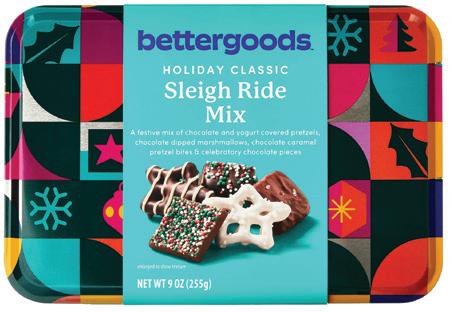
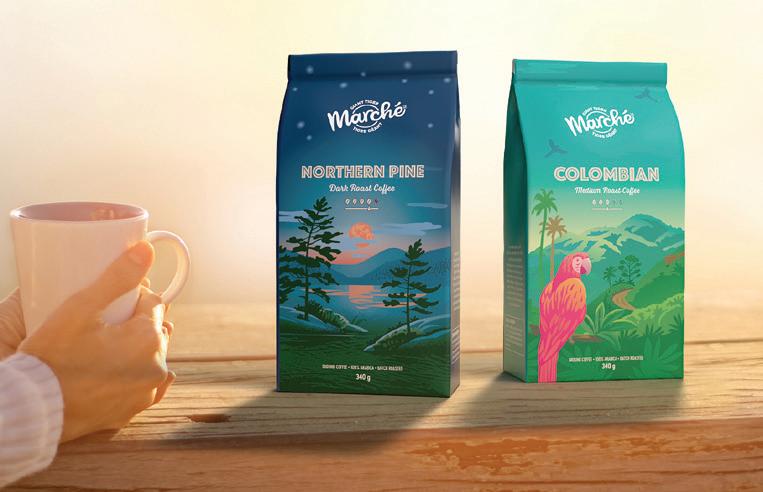
For private brands aiming to disrupt a category already filled with well-known national players, standing out requires a blend of bold design, strategic brand positioning, and a clear value proposition. Packaging design, in particular, plays a pivotal role. National brands often have the luxury of being instantly recognizable, but private brands can compete by leveraging design to communicate innovation, quality, and uniqueness.
Here’s how design can help private brands flex and disrupt on shelf:
By developing a distinctive design system that feels fresh yet aligned with the values of the brand, retailers can ensure their products stand out without copying national brands. Think about creating a signature look—one that’s modern, memorable, and attentiongrabbing, even from a distance.

Design is not just about aesthetics; it’s about telling a story. Products that disrupt categories don’t just look different—they feel different. Creative design can encapsulate the essence of a product’s unique qualities (whether it’s flavor, origin, or purpose) in a way that resonates emotionally with consumers.
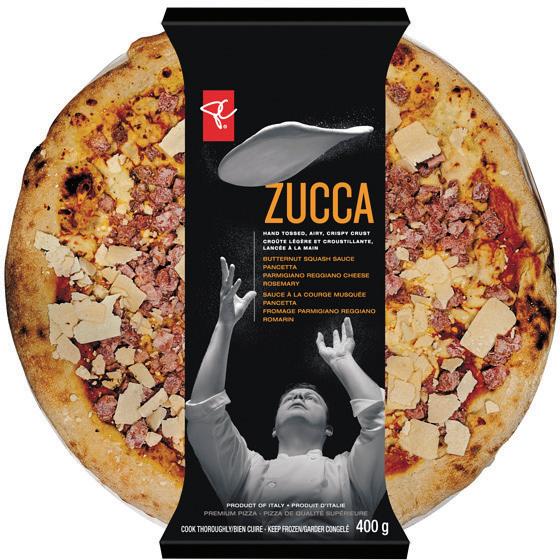

National brands often build loyalty through long-standing recognition and trust. But for category disruptors, design can bridge that gap by connecting with consumers on a deeper, more personal level. Whether through playful packaging, premium materials, or local storytelling, design can foster an emotional bond that national brands can’t replicate.
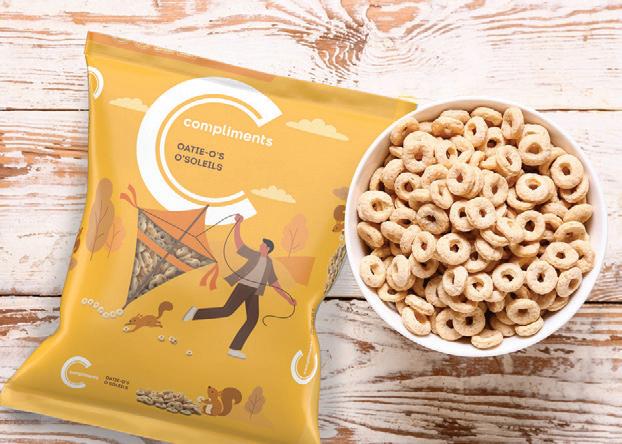
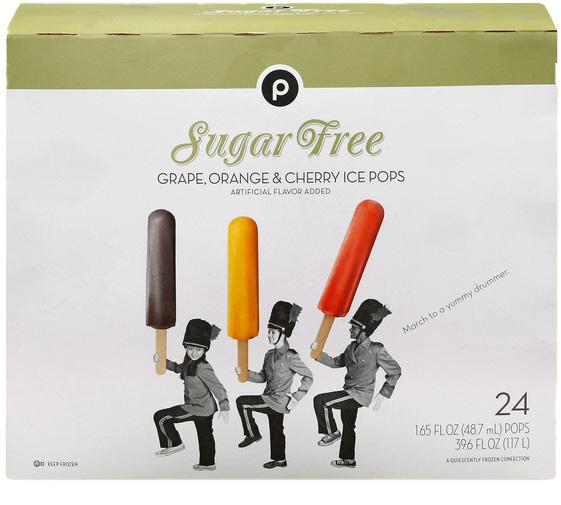

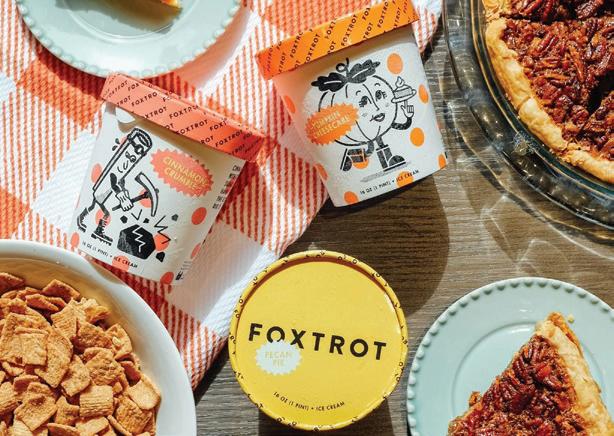
For private brands to compete headto-head with national brands, they sometimes need to flex their design systems. This might mean creating packaging that feels premium yet accessible, or a visual identity that speaks to both innovation and quality. In cases where a more traditional design language is expected, it’s important for private brands to balance creativity with familiarity, ensuring that their products are both aspirational and approachable.
Conclusion: The Power of Design in Disruption In a market flooded with well-established national brands, private brands have a unique opportunity to disrupt the category through strategic design. When leveraged correctly, design can do more than just differentiate—it can transform a product into a cultural moment. By using design to tell a compelling story, connect with consumers emotionally, and create a product experience that feels fresh and exciting, retailers can turn their private brands into true category disruptors, carving out a space where national brands are no longer the only option.
Rebecca Hamilton
Rebecca Hamilton is the CEO of Fish Tank Holdings Inc., including the Fish Agency and sister agency Whitespace Brands. With over 30 years of experience, Rebecca has established herself as one of North America’s leaders in the fields of strategic branding, design and communications for Clients in the retail sector.
The German private label sector is optimistic about the future, as the current stagnation of the German economy is driving growth in the sales of private labels in the local market.
Since the beginning of 2022, the German economy – the largest economy in Europe – has been experiencing serious pressure due to the consequences of the Russian-Ukrainian war and the nearly complete termination of Russian gas supplies, which historically represented the largest share of the German energy structure. This situation led to a significant crisis in Germany during the period of 2022-2023 and a sharp rise in prices for most consumer goods available in the local market. This has contributed to a sharp growth in demand for private labels, thanks primarily to the ability
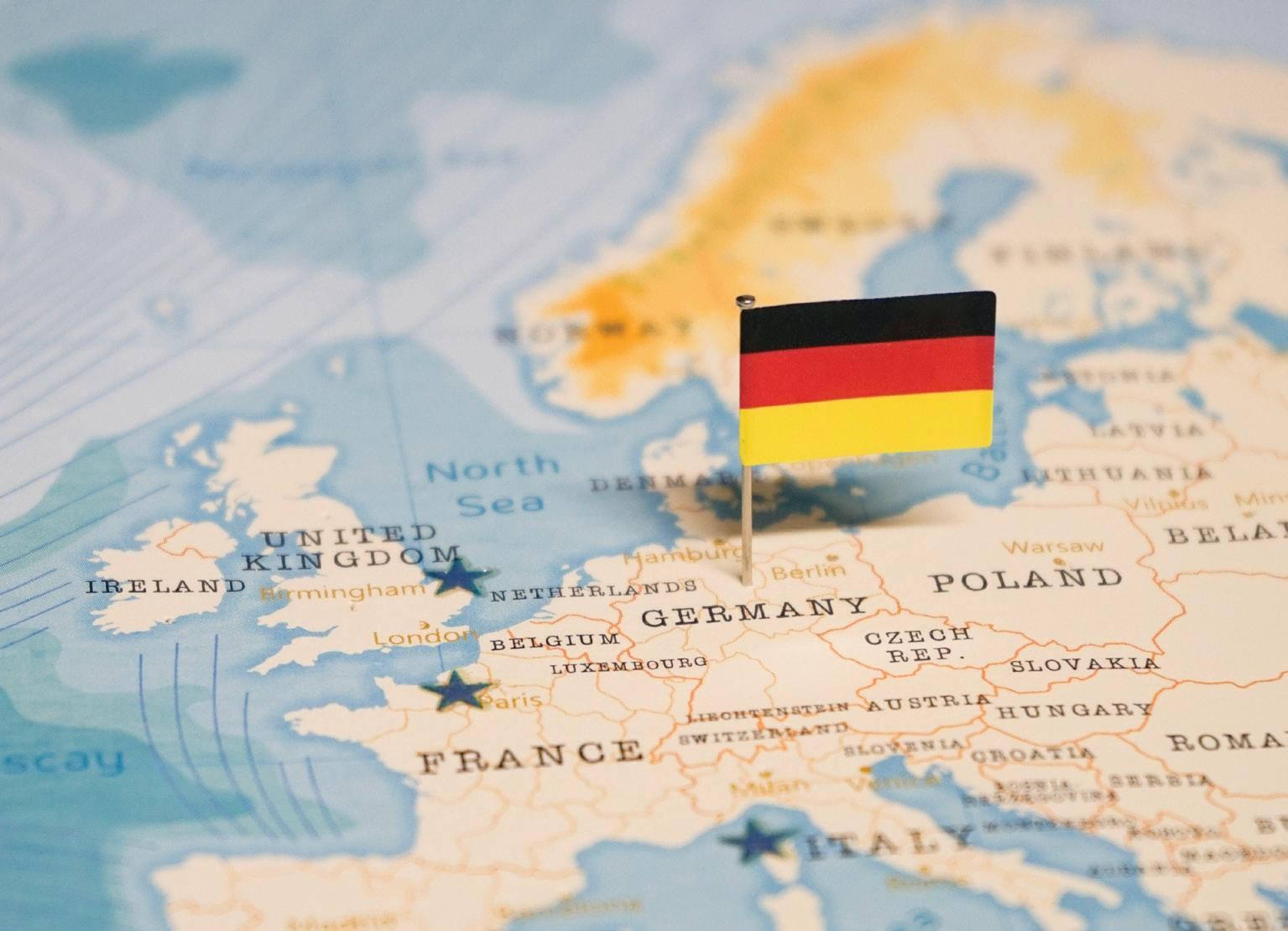
of major German retail chains and discounters to offer competitive prices for their own products and improve their image among local customers.
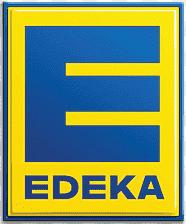
The German private label sector began developing in the early 1930s when Edeka, the largest and one of the oldest supermarket corporations in Germany, launched the first private label brands. However, this growth was interrupted by the Second World War. Market recovery started between 1947 and 1948 when REWE, another leading German retailer, introduced its first own brands. A significant boom in the sector occurred during the 1970s, as hundreds of German retailers expanded their portfolios with their own products.
In terms of market players, discounters such as Lidl and Aldi, a leading local supermarket chain Rewe, and some major German drugstores generate the largest share of their sales with private labels, making them the largest players in this market.
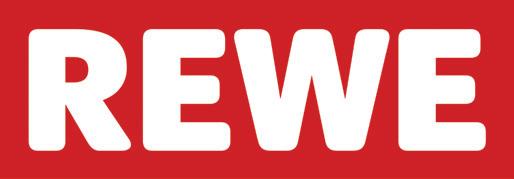
In general, private label brands are very popular in Germany today, largely because German consumers highly value value for money. Furthermore, discount retailers have historically played a crucial role in the German food retail sector, which boosts the acceptance of private brands and the loyalty of German customers towards them. Simultaneously, the appeal of private labels arises not only from competitive pricing but also from the high quality of their offerings.



According to latest data of Statista research agency, the share of private labels in food market of Germany in 2024 exceeded 46%, while the growth is currently ongoing.
In the meantime, according to local analysts, the growth of the share of private labels in Germany became also due to the expansion of their range both by value-added and entry-level products. That led to growth of the overall market share of private labels in the German market by about 6% during the period of 2022-2024, which became significantly higher than the average growth rates of traditional German retail for the same period.
The increased recognition of private labels in Germany leads to higher expectations from local customers, who expect private label products of higher quality. This also creates conditions for the growth of the premium private label segment. One such example is the German organic sector, which is experiencing a boom this year and where the share of private labels has reached almost record highs.
According to a recent white paper titled " Organic - Private Label or Brand? “ prepared by Stephan Rüschen, a well-known German expert in the field of organic products and retail, the demand for organic food and products in Germany is steadily growing. As a result, private labels are increasingly dominating the organic sector, replacing classic organic brands and providing serious competition. Currently, the share of private label brands in the overall organic market in Germany, which is valued at approximately EUR 18 billion, is estimated to be a record 67%.

The same trends are currently observed in other segments of the German food market. For example, according to the earlier data of German think tank Good Food Institute Europe (GFI) (with data from the market researcher Circana), sales of veggie meat and plant-based milk (which are among the best-selling products in their category in Germany these days) rose by about 25% during the period of 2023-2024 compared to 2022, company to only 5% of branded products in the same category. These figures are important given that Germany is by far the largest market for plant-based substitute products in Europe with the overall value of the market of about EUR 2,5 billion.
Most analysts predict bright prospects for the German private label sector this year, despite the tough economic conditions in Germany currently. This will be mainly due to the ever-growing activities of major local retail chains in this market segment, which are entering into collaborations with start-ups and can thus raise the profile of their own products through self-promotion.
Eugene Gerden is a freelance writer who writes on a wide range of international topics, from commerce to chemistry and from wine to aviation. He has contributed to many publications, including Decanter, International Aviation News, Chemistry World and The Journal of Commerce. For Decanter, he has covered several stories on wine markets and production in Russia, Georgia and Bulgaria. gerden.eug@gmail.com
Ukraine’s organic sector continues to demonstrate resilience, and commitment to sustainability, even in the face of ongoing challenges caused by the war. At BIOFACH 2025, the world’s leading organic trade fair, 24 Ukrainian exporters presented their certified organic products to the international market within the National Pavilion of Ukraine. It has once again highlighted the country’s strong position as a key organic supplier to the EU and beyond.
Below, you will find the key highlights from Ukraine’s participation at BIOFACH 2025, including insights from leading experts, and the latest research on the country’s organic exports.
“Ukraine’s participation in international trade fairs like BIOFACH is a crucial tool for expanding the reach of Ukrainian organic exports. Fostering collaboration and strengthening partnerships with the EU countries like Germany, the Czech Republic, Poland, and Switzerland boosts the integration of our organic sector into the European market and ensures the sustainable development of the industry, even under the difficult conditions of fullscale war,” Taras Vysotskyi, First Deputy Minister of Agrarian Policy and Food of Ukraine, emphasised during his welcome speech at the conference “Ukraine’s Organic Sector in the EU Integration Process – Challenges, Opportunities, and Post-War Resilience.”
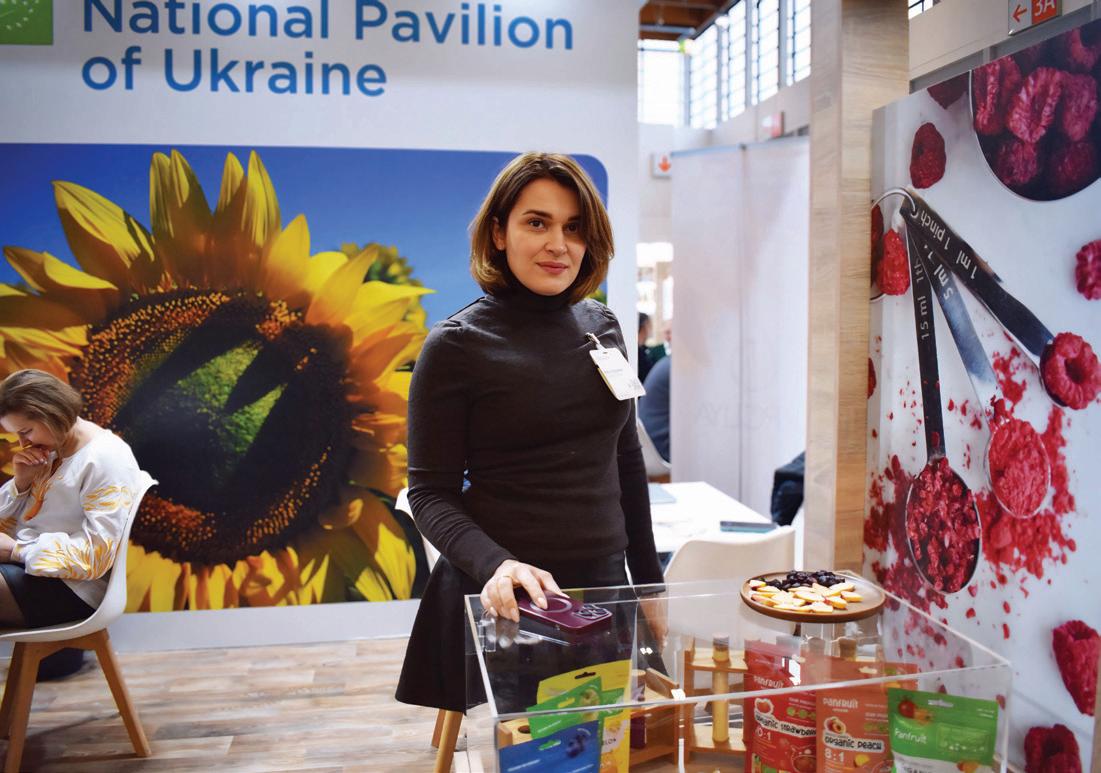
The 12th National Pavilion of Ukraine was also attended by Marco Kräuchi, Program Manager, Swiss State Secretariat for Economic Affairs (SECO), where he noted, that “The presence of Ukraine at this leading organic trade fair is a powerful message to the world that, even under critical conditions, the organic business is able to find new ways for growth, reflecting this year’s fair’s moto “Yes, we do!”.”
The organic sector of Ukraine was featured at the BIOFACH 2025 Congress by the conference “Ukraine’s Organic Sector in the EU Integration Process – Challenges, Opportunities, and Post-War Resilience”. During the event the study on the current state, plans, and needs of Ukrainian organic exporters was presented. The study showed that the market is growing, and 54% of Ukrainian organic exporters plan to enter new markets. According to the study the Top 10 target markets for 2025 are France, the USA, Switzerland, Canada, the United Kingdom, the Netherlands, Germany, Italy, Austria, and Israel. The findings of this study were presented at the BIOFACH 2025 Congress on February 12 in Nuremberg, Germany.
The study was conducted during December 2024 – January 2025. 91 exporters (out of approximately 150 organic exporters in Ukraine) were surveyed online and via telephone.
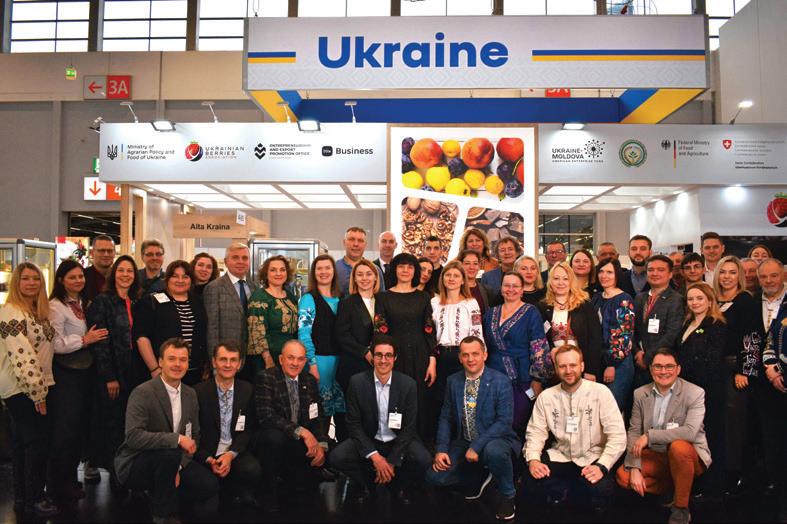
The Research Institute of Organic Agriculture (FiBL) in their media release about Ukraine’s participation at BIOFACH 2025 emphasised, that despite the war, Ukraine holds strong as a Top 5 organic exporter to the EU. Ukraine's participation in BIOFACH 2025 highlights country's determination and commitment to organic export, even in tough times. Despite the ongoing challenges, Ukraine’s organic sector is thriving and eager to connect with international markets. With ambitious plans for growth and a strong foundation in organic agriculture, Ukraine is ready to make its mark on the global stage.
www.organicinfo.ua

Photos: National Pavilion of Ukraine at BIOFACH 2025. Source: state institution “Entrepreneurship and Export Promotion Office” (EEPO, Ukraine)




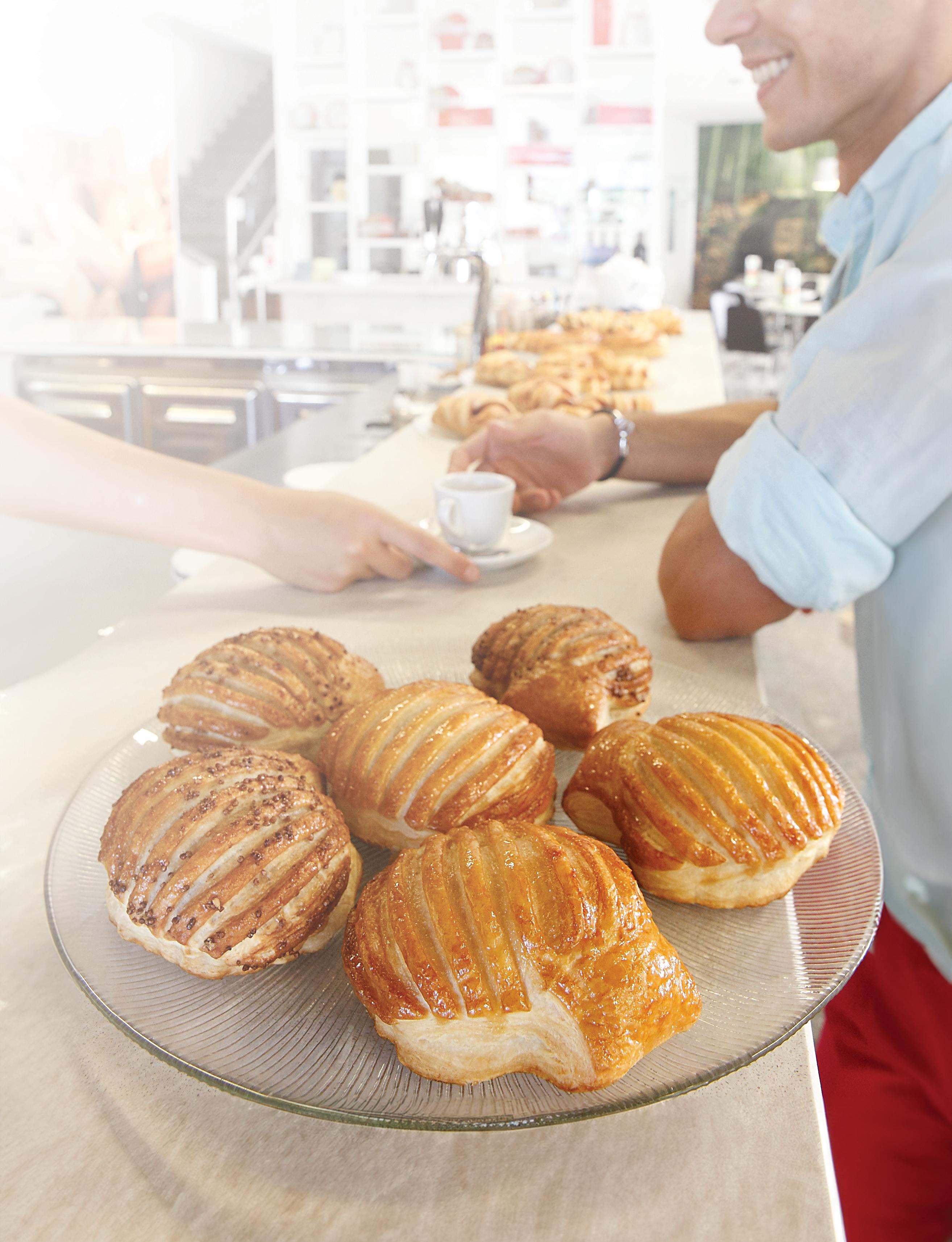

20-23 MARCH 2025
The 56th edition of Cosmoprof Worldwide Bologna will welcome over 250,000 professionals and more than 3,000 companies from 65 countries representing over 10,000 brands.
“The event is the key reference for the entire cosmetic industry, recognized worldwide as a highly effective meeting point to facilitate networking and connect demand with supply,” emphasizes Gianpiero Calzolari, President of BolognaFiere. “It is a crown jewel of our country, recognized as a business partner and a promoter of international business by the Italian Ministry of Foreign Affairs and International Cooperation, ITA - Italian Trade Agency, Cosmetica Italia, the Italian association of cosmetic companies, and the major public and private associations from leading markets.”
Just weeks before the opening, the exhibition space is already sold out, with a growth of 5.8% compared to the previous edition. 56% of exhibitors come from Europe, and 44% from non-European countries, with Italian brands covering 22% of the total companies.
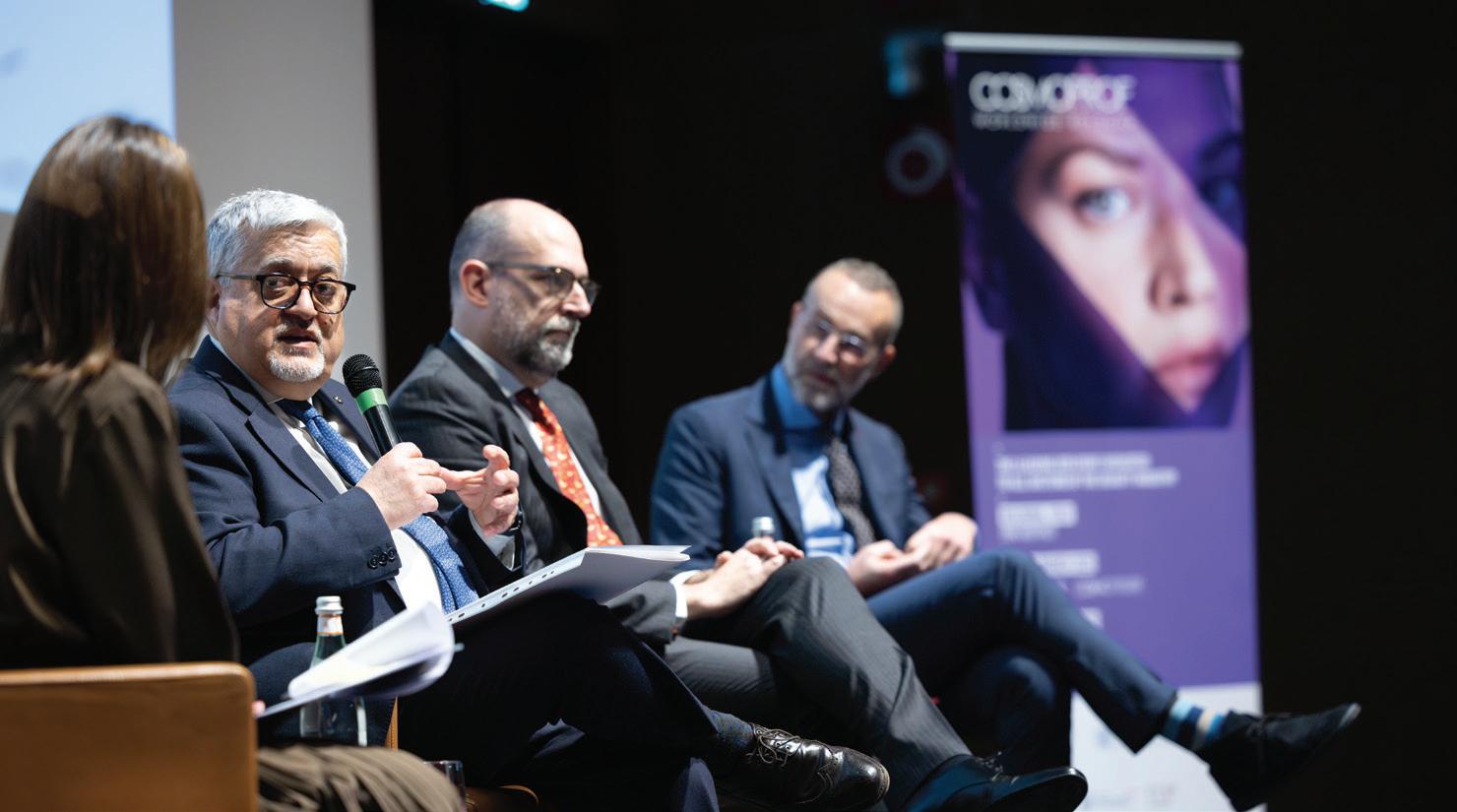
Cosmoprof Worldwide Bologna continues to be a strategic event for launching new brands and products, as demonstrated by the significant percentage of new exhibitors compared to 2024, with 35% of the total.
There will be 29 national pavilions at Bologna in March, bringing the characteristics and trends of beauty from Australia, Brazil, China, South Korea, Estonia, France, Germany, Japan, Greece, Czech Republic, India, Indonesia, Ireland, Latvia, Norway, Pacific Islands, Poland, Romania, Spain, Sweden, Ukraine, UK, Taiwan Region, Turkey, USA. New to the 2024 edition is the presence of California and Tunisia.
The collaboration with the Italian Ministry of Foreign Affairs and International Cooperation and with ITA - Italian Trade Agency will facilitate the participation of over 80 delegations, including the most important importers, distributors,

and retailers from around the world. The incoming activities and promotion by ICE Agency’s offices worldwide will primarily focus on the United States, Africa, and the Gulf and Middle East region.
"Cosmetics Confirmed as a Pillar of Made in Italy Excellence, Driving Innovation and Global Market Growth," declares Matteo Zoppas, President of ITA Agency. "Cosmetics continues to be a hallmark of Made in Italy, demonstrating dynamism, innovation, and an extraordinary ability to adapt to global market shifts," says Matteo Zoppas, President of ICE Agency.

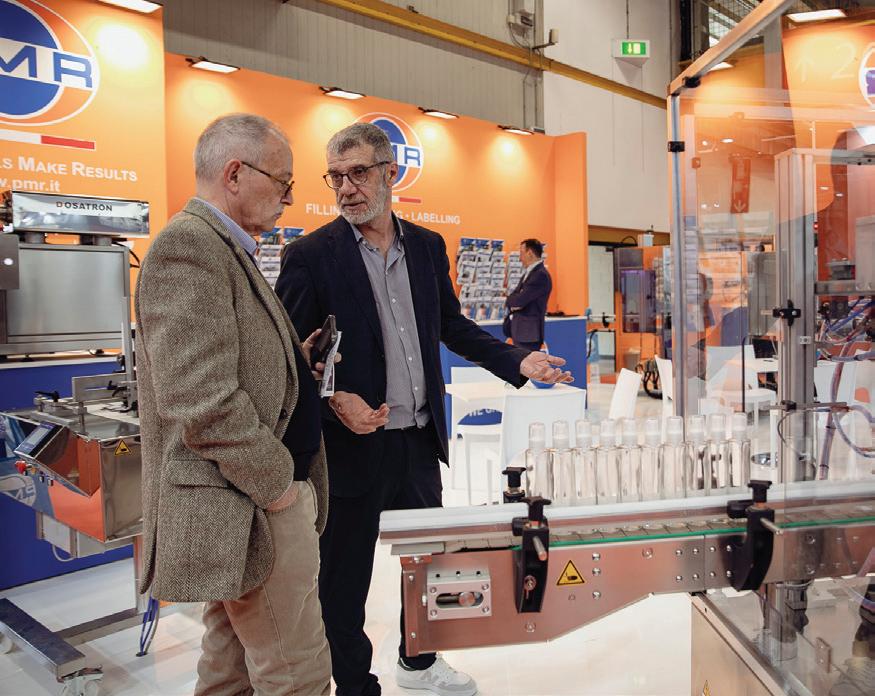
“From January to October 2024, Italian exports in the sector reached nearly 7 billion euros, marking a growth of over 10% compared to the same period in 2023, a year that had already seen an impressive 20.3% increase over 2022. These results confirm the leadership of our companies, which are at the forefront of research and innovation, anticipating the demands of international markets.
Today, exports represent over 40% of the sector’s revenue, with Italy solidifying its leadership in makeup production: 67% of products used in Europe and 55% of those worldwide are made in our country. ITA continues to support the sector’s internationalization by collaborating with BolognaFiere to expand the Cosmoprof format into key foreign markets, further strengthening the role of Italian cosmetics as an ambassador of Made in Italy worldwide.
For the 2025 edition of Cosmoprof, ITA is organizing the arrival of approximately 180 foreign buyers from over 80 countries, facilitating high-level business meetings between Italian companies and leading players from both established and emerging markets. Among the regions with the highest potential for short- and mediumterm growth are Southeast Asia and

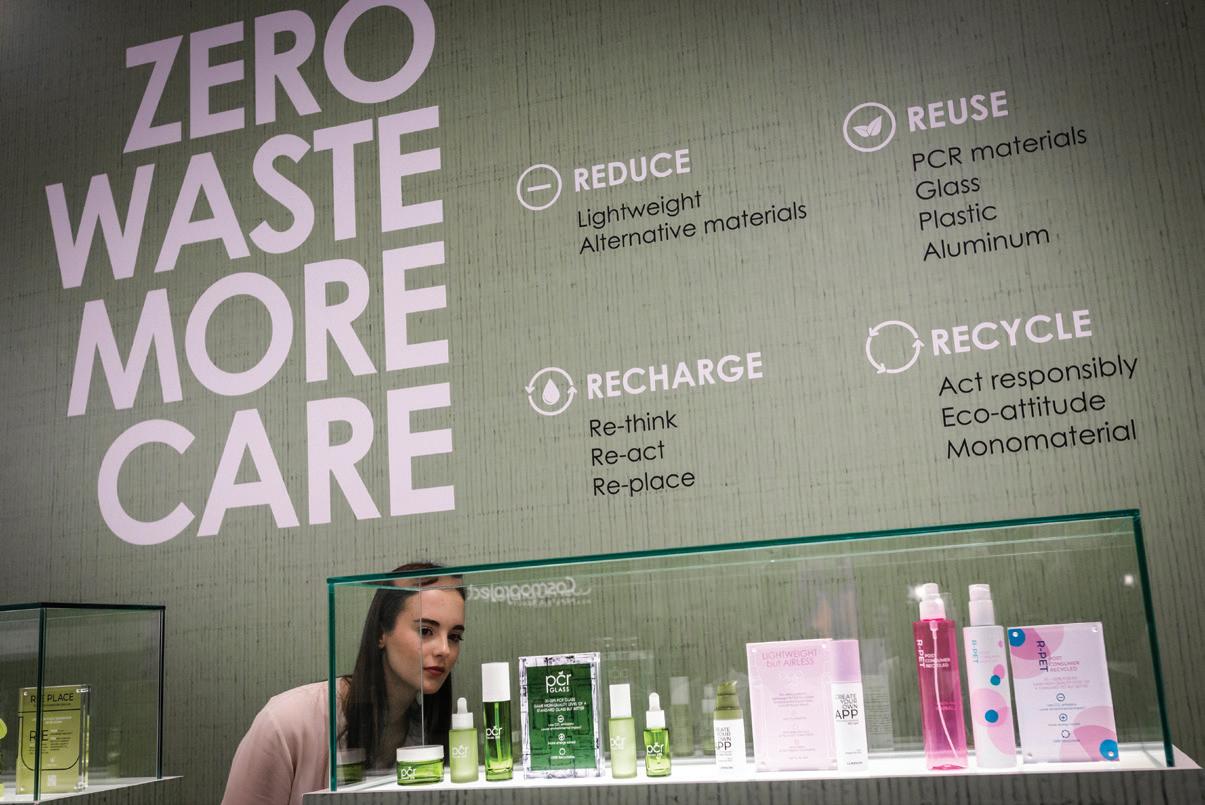
Sub-Saharan Africa, where ICE has expanded its presence in alignment with the Mattei Plan promoted by the Meloni Government, opening new offices in Kenya, Nigeria, and Senegal, bringing the total to 12 direct offices, complemented by 8 economic observatories.”
As the 56th edition approaches, the event continues to be the only international gathering offering a comprehensive view of the latest trends in the beauty world, thanks to the presence of all industry sectors, from the supply chain to finished products, under one roof. The coordinated opening of all the pavilions on the same day, Thursday, March 20th, a formula that proved successful last year, will increase interaction between different channels and sectors. To meet the needs of both operators and exhibitors seeking more dynamic and immediate tools to navigate the market, Cosmoprof Worldwide Bologna 2025 will also feature a new exhibition layout. “This strategic choice will optimize operators’ presence at the event and allow for the expansion of the exhibition
offering to include new product categories, which are particularly influential in the market, thus adapting to the needs of our community,” highlights Enrico Zannini, General Manager of BolognaFiere Cosmoprof.
Cosmopack, the exhibition showcasing the excellence of the global supply chain, will welcome 596 companies from 34 countries. For the next edition, Cosmopack will occupy the entire Pavilion 19, with a significant expansion of the machinery sector – over 90 companies present – as well as the inclusion of new players in robotics, digital services, and logistics solutions. In Pavilion 20, the area dedicated to ingredients will expand to include fragrance houses and creators of fragrances and scents for home, facilitating a more direct exchange with contract manufacturers to enhance the connection between supply and demand.
2-3 APRIL 2025
The 21st edition of Marca by BolognaFiere concluded with remarkable results: 1,300 leading companies, 24 retailers with their own booths, 9 halls, and 35,000 square meters of exhibition space. The number, diversity, and authority of visiting operators –over 23,000, including numerous international buyers – confirmed the strong interest in an event that continues to establish itself as a key reference point for the private label industry.
Over 300 international buyers (twice as many as last year) contributed to a total of 60 countries being represented, including the United States, China, Brazil, Canada, Japan, Australia, France, Germany, South Africa, and India. This helped to enhance the global dimension of the event. More than 9,000 B2B meetings occurred between private label companies and international retail buyers, many of which took place during the highly acclaimed International Buyers Preview on January 14, a new initiative organized on the eve of the official opening of the trade show.
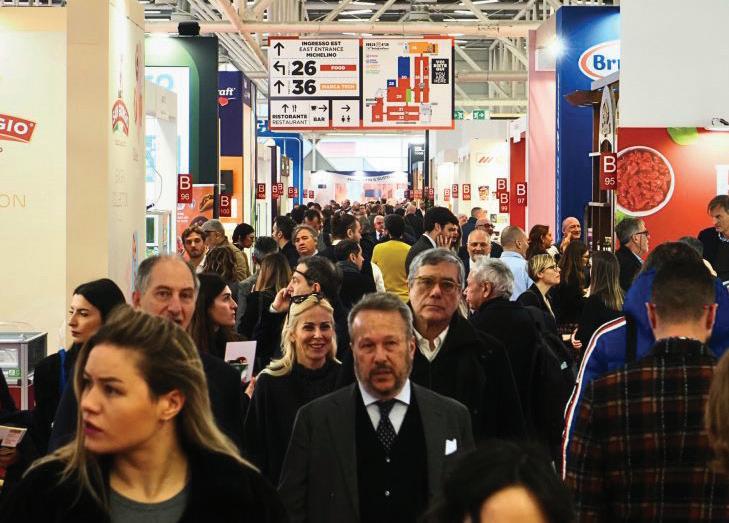

BolognaFiere's twenty years of expertise in the private label sector are now driving the development of new international trade show projects. The Marca format is being geo-cloned and introduced into high-potential markets, beginning with Poland.
Marca Poland will debut on April 2-3, 2025, in Poznań. Co-organized with MTP Grupa, the event aims to revolutionize the private label market in Poland and Eastern Europe, uniting over 200 exhibitors from various countries, including Italy, and 250 retail buyers from across Europe, with a strong emphasis on Eastern markets.
Marca Poland aims to establish a direct connection between manufacturers – both food and non-food – and leading European retailers, addressing a clear market demand. In Poland, private label products now account for 27% of the retail sector, with further growth expected in the coming years (source: Nielsen IQ). For Italian companies, Marca Poland represents a strategic opportunity

to access the Polish market and neighboring countries, providing a powerful networking platform that facilitates entry into new commercial areas. This project will enable participating businesses to expand their reach into growing markets where demand for high-quality products is significant rise.
Marca Poland will also showcase the winning products of the International Private Label Selection (IPLS), another rapidly growing initiative. Promoted by Marca by BolognaFiere in collaboration with Expertise On Field – IPLC, the IPLS 2025 area displayed over 450 innovative products presented by 180 exhibitors. Many of the selected products will continue their journey in Poland and on other international platforms organized by Marca by BolognaFiere, further enhancing their global reach.
marca.bolognafiere.it


















Understanding the Ever-Changing Landscape of Food & Drink Retail, and the Growing Importance of Retailer Brands
WITH CONTRIBUTIONS BY PAUL STAINTON AND LOE LIMPENS



Private label is an increasingly important part of a retailer’s ‘jigsaw’. It is key to offering a compelling and profitable range of goods to their customers.
THE POWER OF PRIVATE LABEL delves into every element of the subject, from conception through to delivery – no stone is left unturned in helping the reader fully understand the growing complexities of the private label industry.
Yet this book covers much more than just private label – we explore how supermarkets and discounters operate their businesses, the role that brands play alongside private label, and the key levers used by all retailers to build customer loyalty, the key to running a sustainable and profitable business.
Two chapters are dedicated to discount retailing, providing deep insight into the strategies deployed by the main operators and those used by the supermarkets to fight back against discounter growth.
The buyer-supplier relationship is explored in detail, with the ever-changing pressures on both parties leading to changed dynamics in the ‘balance of power’.
Along with a full review of how the manufacturing landscape is shaping up, and extensive insight into how a private label manufacturer can stand out from the crowd, THE POWER OF PRIVATE LABEL is an invaluable tool for all players in the fastmoving consumer goods industry.
Full color, hard cover, 280 pages, more than 200 photos and charts.
Price €125 excluding handling and shipping costs.

This book is only available via the Internet: www.iplc-europe.com
New product launches, ESG initiatives, cutting-edge packaging, and a special focus on Foodservice: TUTTOFOOD becomes the hub for best practices in the global food & beverage industry.
The highly anticipated TUTTOFOOD Milano 2025 is set to take place from May 5–8 at Fiera Milano in Rho, marking the first edition fully organized by Fiere di Parma (Cibus). This edition is expected to welcome over 90,000 industry professionals, including 3,000+ top international buyers through a large-scale incoming program developed in collaboration with ITA – Italian Trade Agency.
Featuring over 3,000 exhibitors across 10 halls, TUTTOFOOD 2025 will significantly expand its international spirit. Companies from 50+ countries will be present, thanks to the strengthened partnership between Fiere di Parma and Koelnmesse Italia, already well-established through other food tech exhibitions. The ultimate goal? To reposition TUTTOFOOD Milano as one of Europe’s leading B2B food industry events within the next three editions.

“Better Future Awards” Returns, with New Categories
While internationalization is a key growth driver, sustainable innovation is the heart of TUTTOFOOD’s mission. The search for responsible food models is reflected in the Better Future Award 2025, the biennial prize traditionally organized at the show. The award will feature four key categories:
• Product Innovation
Highlighting groundbreaking food & beverage launches;
• Ethics and Social Responsibility
Recognizing companies excelling in sustainable production, environmental initiatives, social responsibility, training, inclusivity, and charitable projects for developing countries or areas;
• Packaging Innovations
Rewarding solutions that prioritize transparency and environmental responsibility.
• Foodservice Solutions
A dedicated section for innovations in out-of-home consumption, acknowledging the sector’s dual challenge: embracing cutting-edge trends while maintaining premium quality for at-home dining.
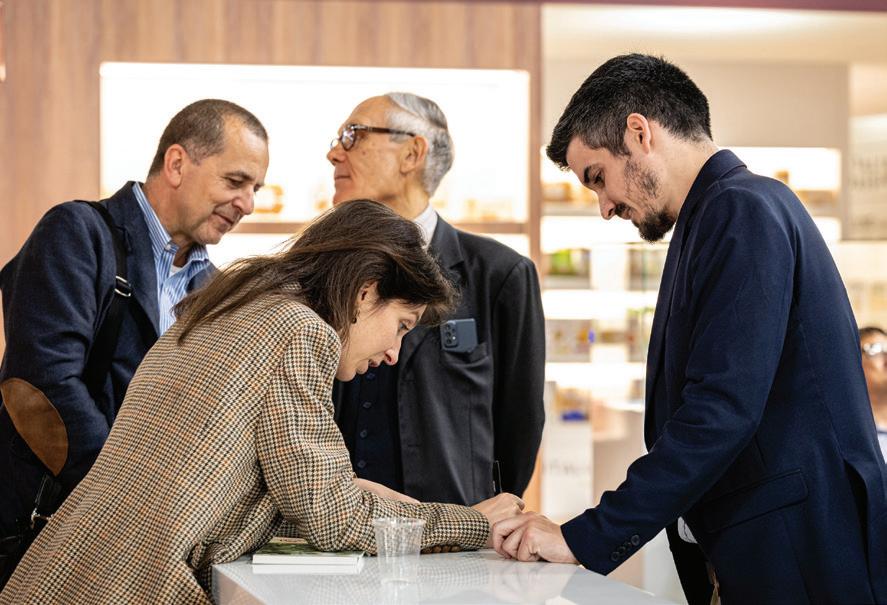
One of the biggest additions for 2025 is TUTTOFOOD Week, a citywide event taking place in Milan from May 3–8 (starting the Saturday before the tradeshow). Conferences, tastings, cooking shows, exhibitions, and cultural events under the theme “Feed the Future” will bring back the vibrant atmosphere of Expo Milano 2015, turning the city into an international hub for food trends and innovation. This initiative is made possible through a strategic partnership with Mondadori Group’s Interni magazine.
www.tuttofood.it/en

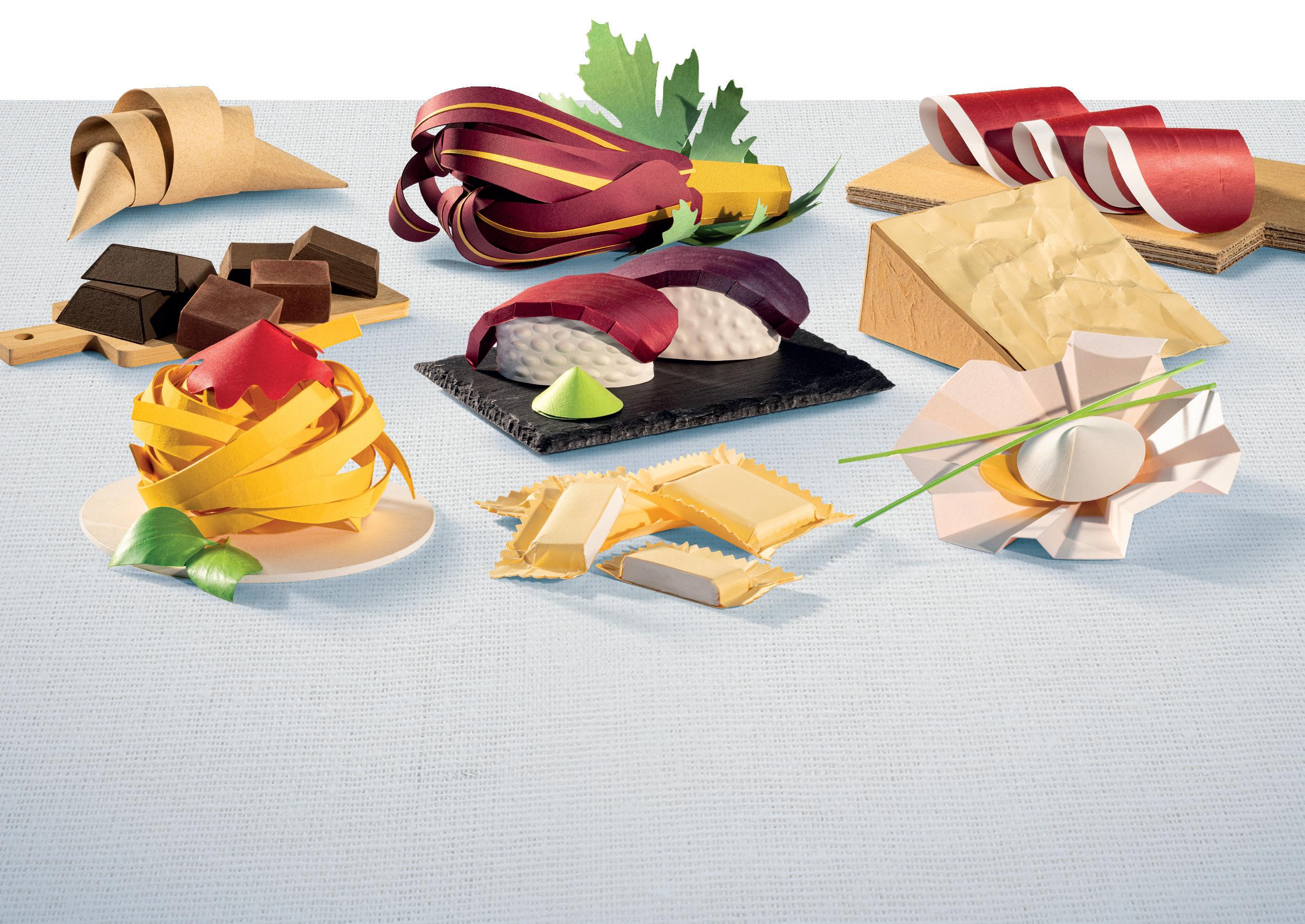



4 - 8 OCTOBER 2025
The leading global trade fair, Anuga, the No. 1 for Food & Beverage Business, is presenting itself in Cologne from 4 - 8 October 2025 with a newly designed hall structure. Thanks to targeted strategic adjustments, the individual trade shows are more clearly segmented and offer an improved orientation across the product sections. Thematically-related topics – such as Anuga Alternatives and Anuga Organic for example - are moving closer together on the fair grounds, which will create synergies. Dealers benefit from shorter routes.
The introduction of the trade show Anuga Alternatives is one reason for the new design of the hall. This innovation constitutes a strategic further development of Anuga and thematically bundles protein alternatives gained from insects, plants, fungi, algae and cellcultivated meat in one trade show. With this move, Anuga is reacting to the consumers’ and trade’s worldwide growing demand for alternative protein sources.
According to Anuga’s knowledge partner, Innova Market Insights, F&B products containing insect-based proteins have recorded an annual


growth rate of +114% over the past five years. Sports nutrition and cereal products made from alternative protein sources are showing a growth rate of +11% and 32% respectively. Here, insect-based protein is mainly used for sports powders, sports bars as well as for cereal and energy bars.
Cultivated and microbial-based proteins including mycoprotein and non-animal-based whey protein are recording a CAGR of +10%. Algae-based products are growing at a CAGR rate of +17%, whereby kelp, red algae and kelp extract are showing the strongest growth. The new protein sources not only offer ecological advantages, they also open up economic opportunities for the trade and industry.
“The new trade show and the redesigned hall structure reflects Anuga’s claim, as a pioneer of the global food industry, that it adapts in line with the industry’s changing

needs. In this way, we are creating more efficient processes, grouping segments together thematically, bundling the meat halls in the North and the Fine Food halls in the South to ensure an optimised trade fair visit. The new hall concept also offers better networking and encourages business transactions,” stated Jan Philipp Hartmann, Director of Anuga.
With its ten trade shows, the largest international trade fair for the global food industry provides a complete market overview of the offer of food and beverages available worldwide. The individual trade shows offer products and services in the segments protein alternatives, bread and bakery products, frozen and convenience foods, dairy products, delicatessen and gourmet items, meat and organic products as well as hot and cold beverages.
www.anuga.com
PLMA has announced “Store Brands Marketplace” as the 2025 theme for its Annual Private Label Trade Show, Nov. 16-18 at Donald E. Stephens Convention Center in Chicago. The announcement comes at a time of record-setting sales results for the store brands industry. In 2024, store brand sales reached $271 billion, an increase of $9 billion from 2023, setting new records in both units and dollars, according to PLMA’s 2025 Private Label Report.

The exhibit floor will be filled with thousands of the latest products, including food, beverages, wine and spirits, ingredients, authentic international foods and nonfoods, refrigerated and frozen foods, foodservice items, sustainable packaging, snack foods, beauty and cosmetic products, pet products, self-care, baby care, health and wellness, household goods, kitchenware, general merchandise, convenience foods and grab-andgo items and much more.
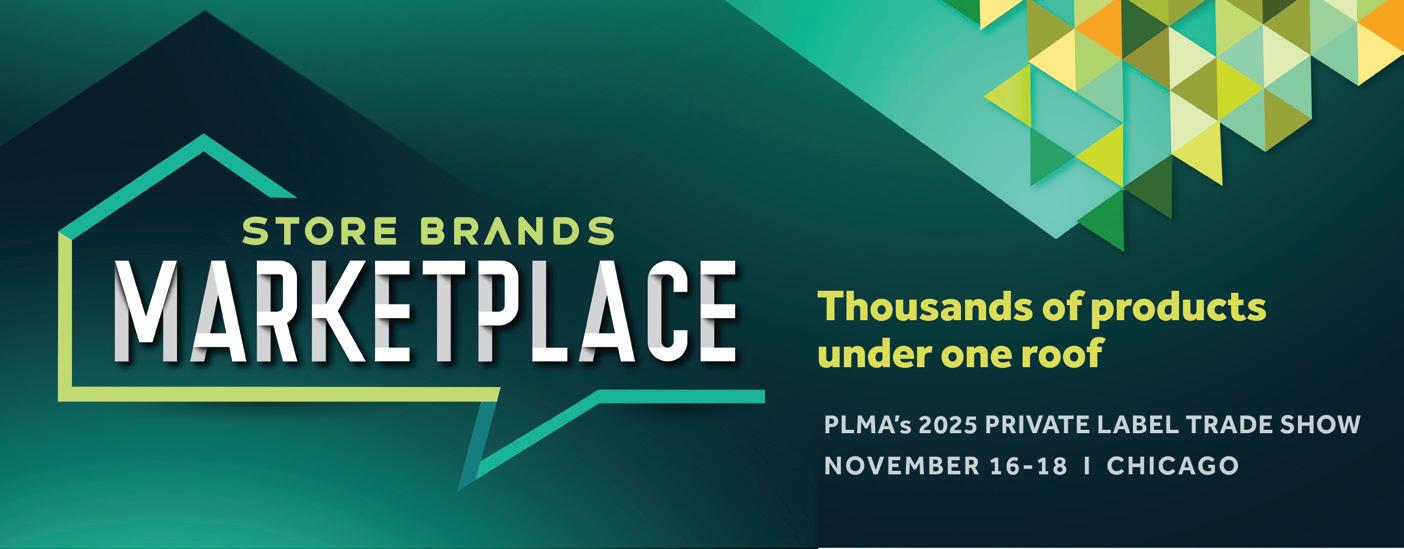
“Whether attendees are looking for private label food, beverages or nonfoods, the Annual Private label Trade Show is the place to see the newest products and latest trends,” said PLMA President Peggy Davies. “It’s the ultimate ‘Store Brands Marketplace.’”
Every year, the Show brings together industry professionals representing all store formats, including major supermarkets, supercenters, drug chains, wholesale clubs, dollar stores, specialty stores, mass merchandisers, importers and exporters, e-commerce retailers, and convenience stores/travel stops.
Last year, the sold-out Show floor was filled with 1,821 exhibitors from 60 countries, including 700 firsttime exhibitors. In all, some 14,000 retailers, visitors, exhibitors, and others from the store brand and retail industries attended the event.
Top-tier manufacturers showcase products with multi-generational appeal, such as sustainable packaging for Gen Z, functional beverages for Baby Boomers, ethnic-inspired offerings, as well as vegan, organic, and specialty products.

In addition to the well-organized exhibit hall, attendees will have access to valuable insights through opening seminars, a keynote breakfast on both show days, networking events, and informational on-site displays, including:
• PLMA’s Idea Supermarket®, featuring the latest product and packaging trends from around the globe.
• New Product Expo, a showcase of select product and packaging innovations from companies exhibiting at the show.
• PLMA 2025 Salute to Excellence Awards®, a display of retailer food and non-food product innovations chosen best private label product in their categories by industry and consumer judges.
Certified Origins / 29
CHT Group / 31
Cosmoprof Worldwide Bologna / 15
Emerge / 55
Global Tissue Group / 2 & 3, Back Cover
La Doria S.p.A / 33
LeBonta srl / 6 & 7
Lucart S.p.A / 21 & 35
Marca by Bolognafiere / 16 & 17
MBD (Marketing by Design) / 13
Oropan SpA / 5
PLMA World of Private Label / 9
The Power of Private Label / 81
Seneca Foods / 11
Shanghai Hutchison Whitecat Co. Ltd / 45
Tuttofood Milano / 83
Valsa Group / 41
V Label Italia / 43
Velocity Conference / 87
Winland Foods / 47
Next Issues...
MAY 2025
PLMA AMSTERDAM
AD CLOSE: 1 April
OCTOBER 2025 ANUGA
AD CLOSE: 1 September
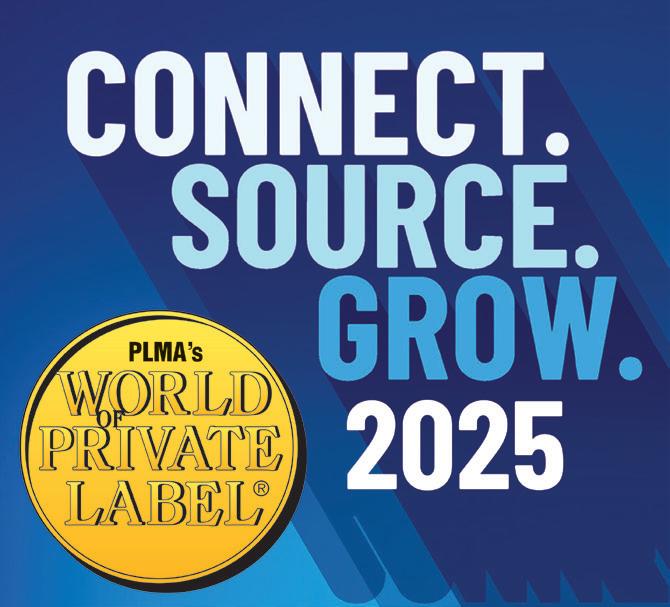
EUROPE
Ms. Luisa Colombo
Global Retail Brands
Via F.Baracca nr.4/9
40033 Casalecchio di Reno Bologna, ITALY luisa@globalretailmag.com
Ms. Ana Maria Jimenez Aguilar Business Development ana@globalretailmag.com
Ms. Sabine Geissler
Italy / Germany Greentaste.it s.geissler@greentaste.it
Mr. Jacco van Laar Brand Ambassador jacco@globalretailmag.com
AMERICAS, ASIA, AUSTRALIA, AFRICA
Mr. Phillip Russo
Global Retail Brands magazine
240 Central Park South, Suite 9G
New York, NY 10019 USA
Tel. +1 917 743 6711 phillip@globalretailmag.com
www.globalretailmag.com
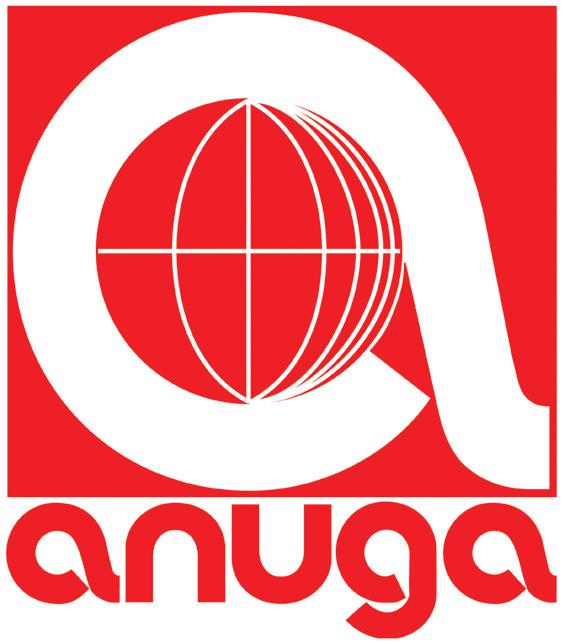

Global Tissue Group has ramped up production of our ultra premium products to meet booming demand for TAD-like household paper products.
That means no empty shelves, no scrambling for supply, and no unhappy customers—just reliable, top-quality paper products, always ready to roll.

Start solving your tissue supply chain issues today by visiting: GlobalTissueGroup.com/tissueissue

